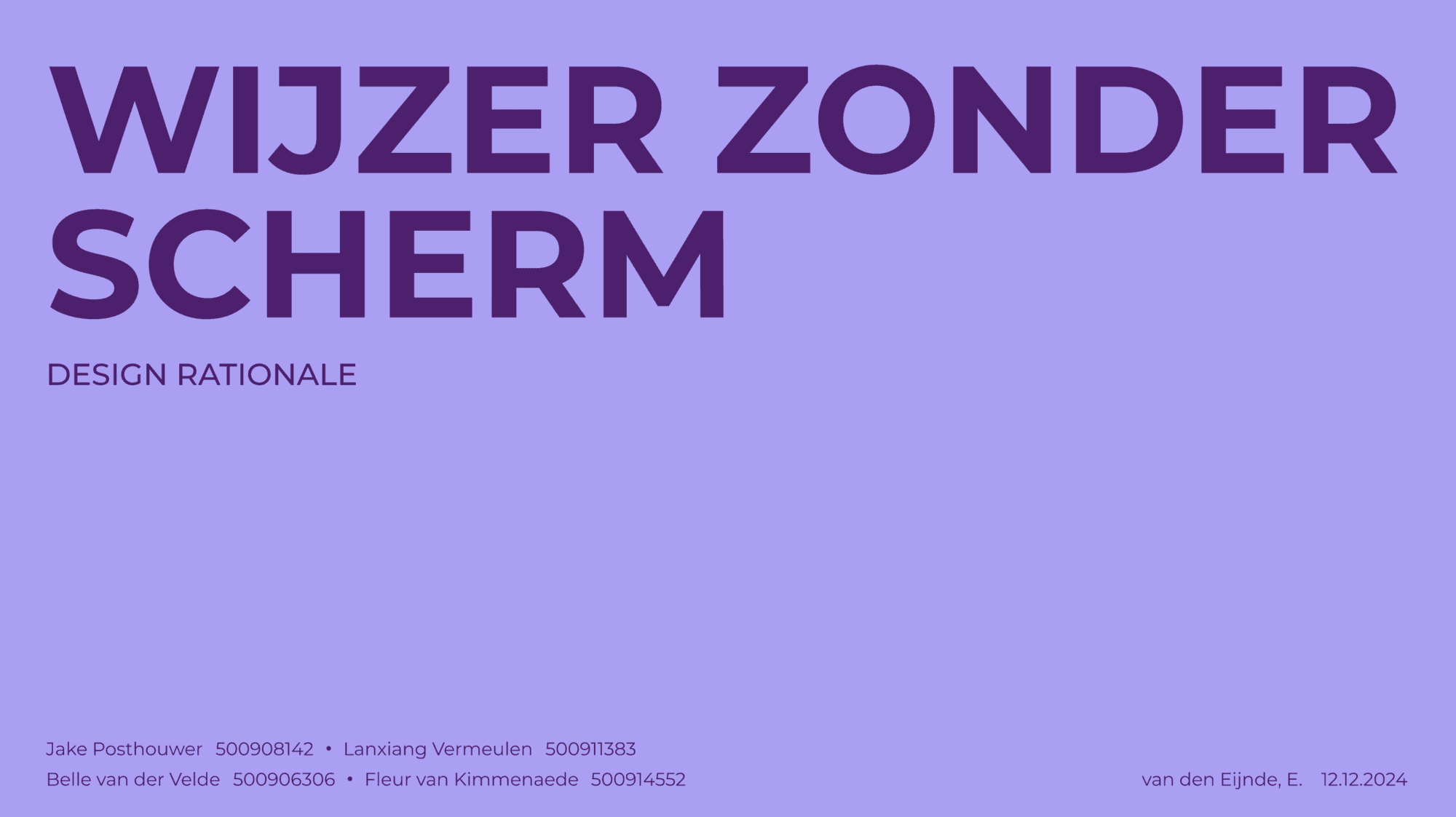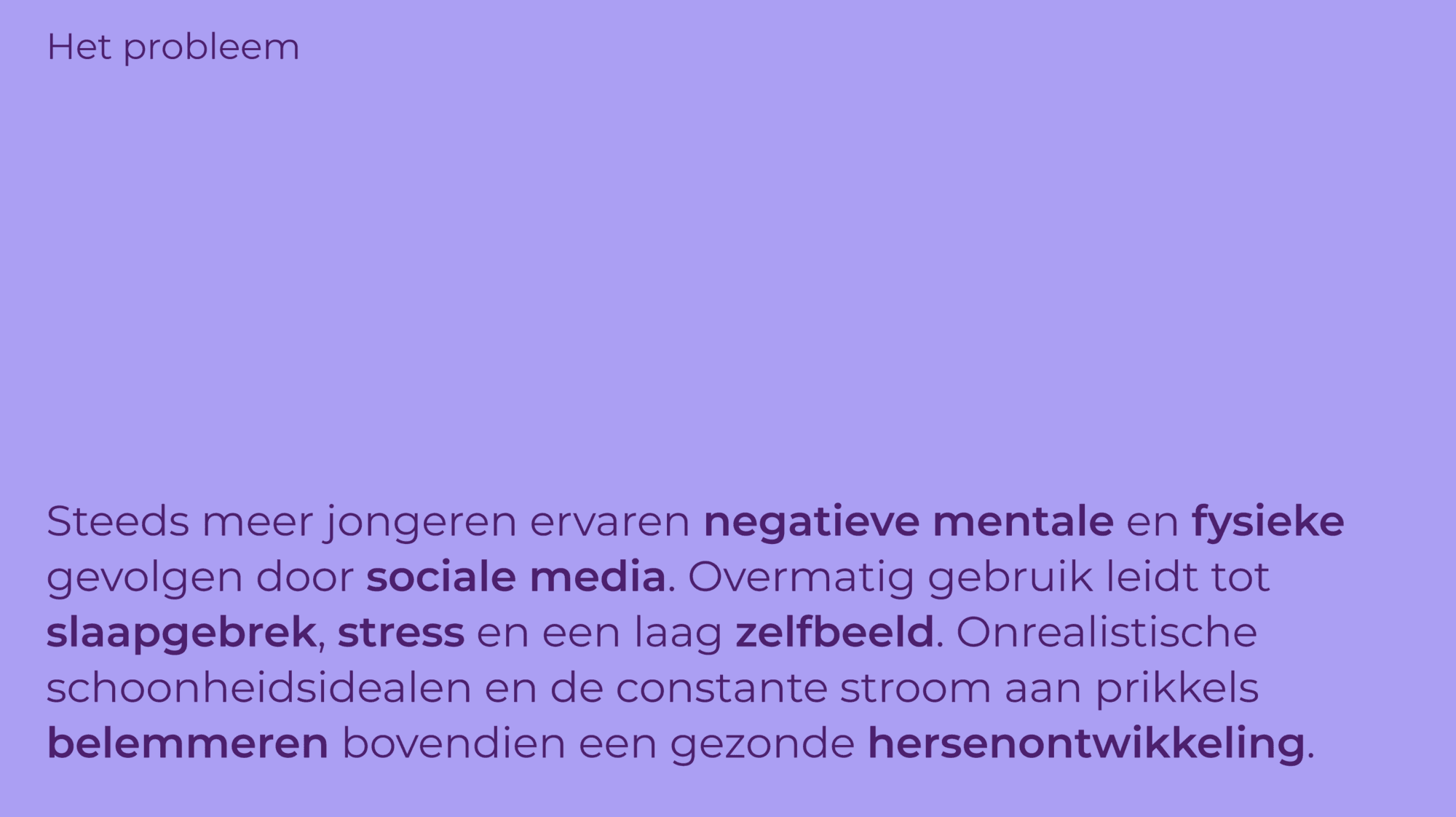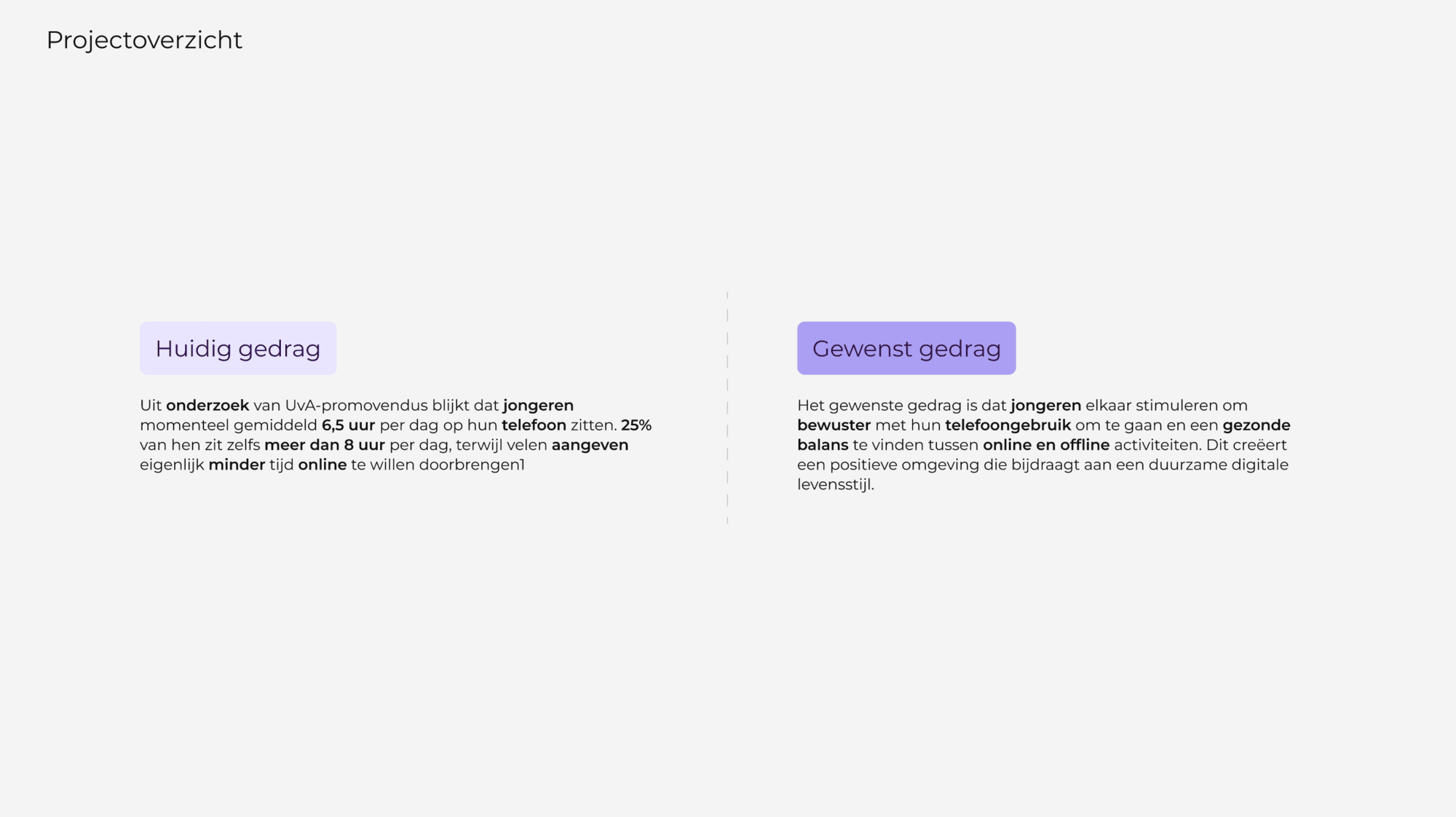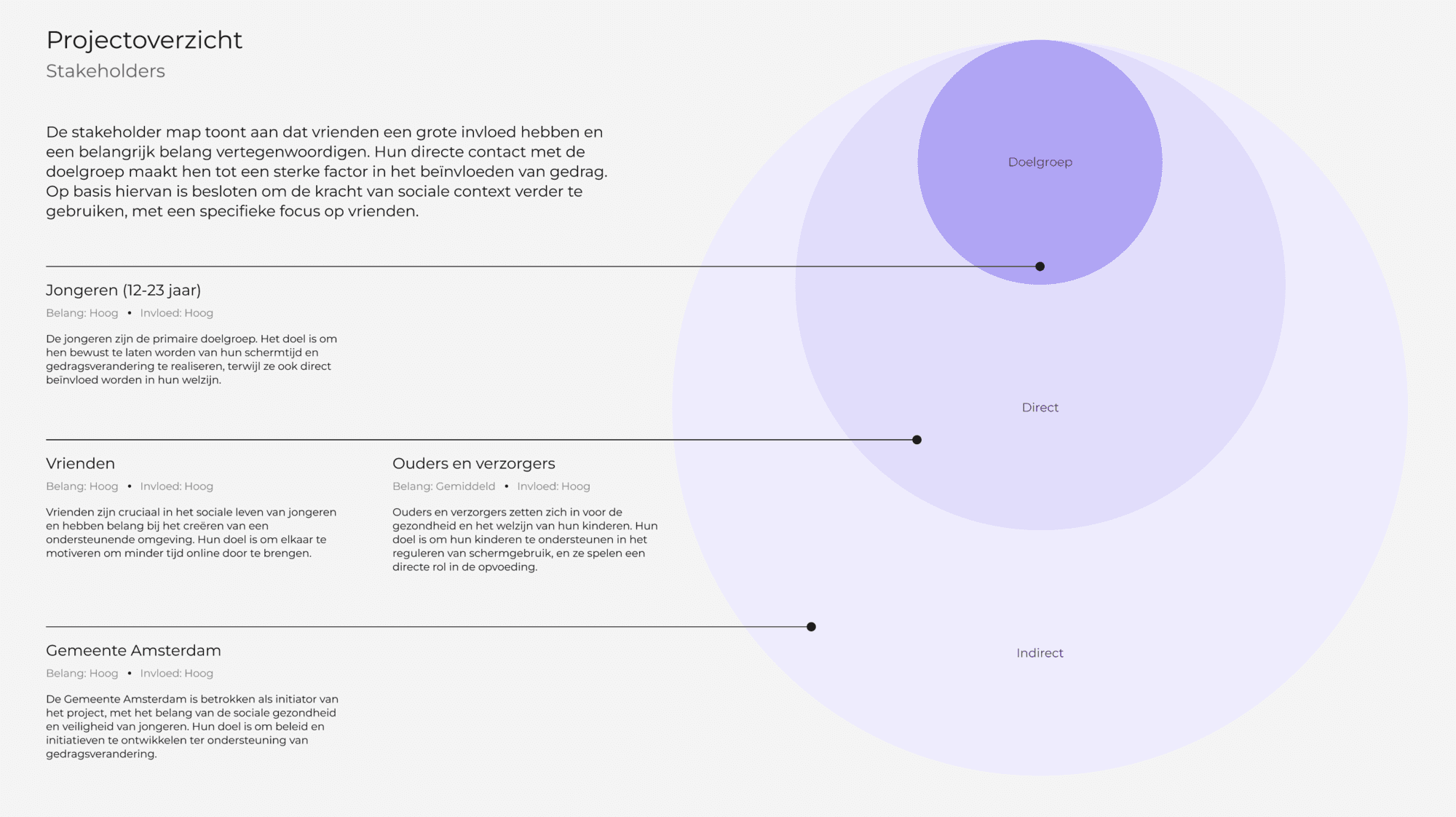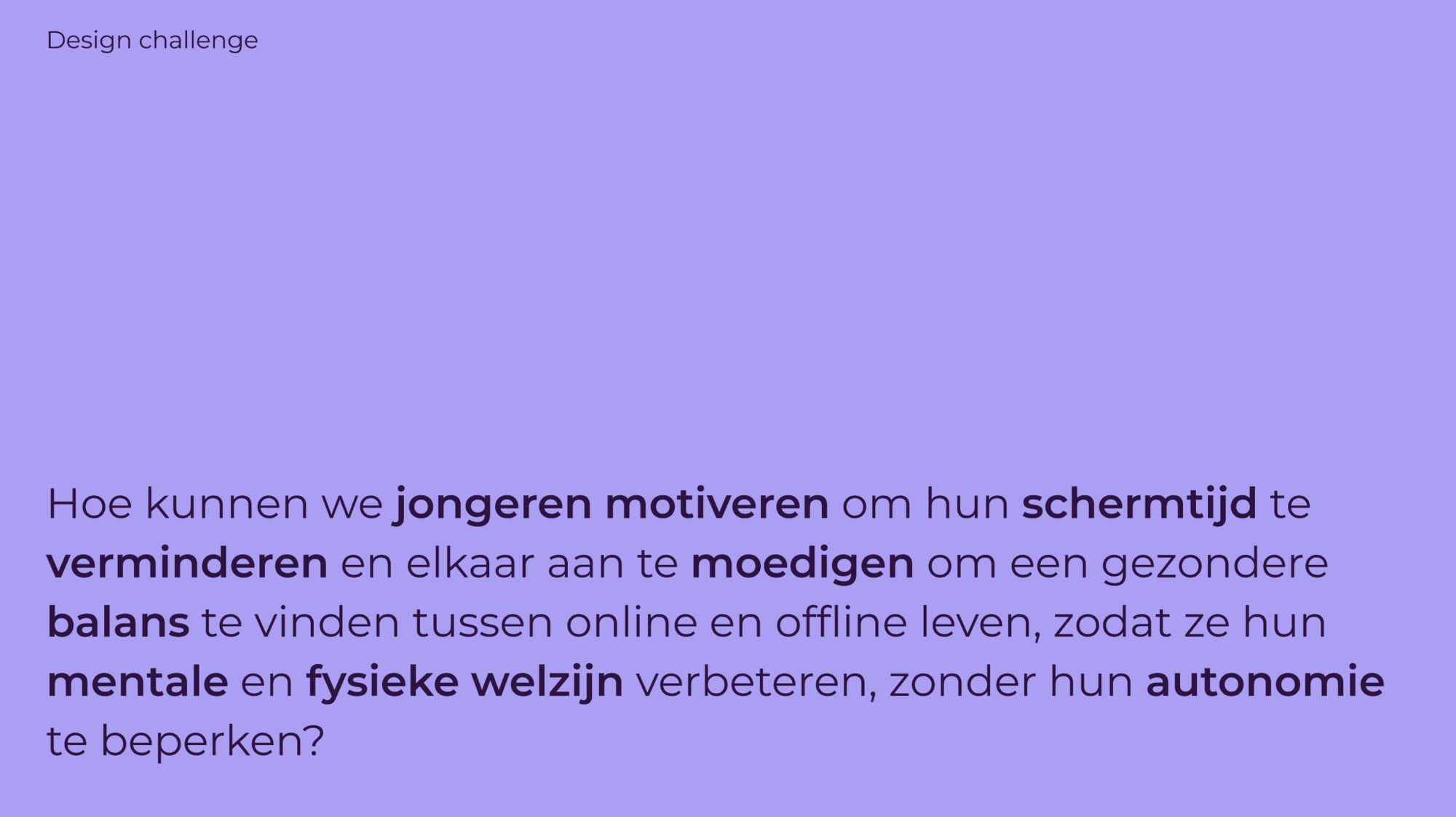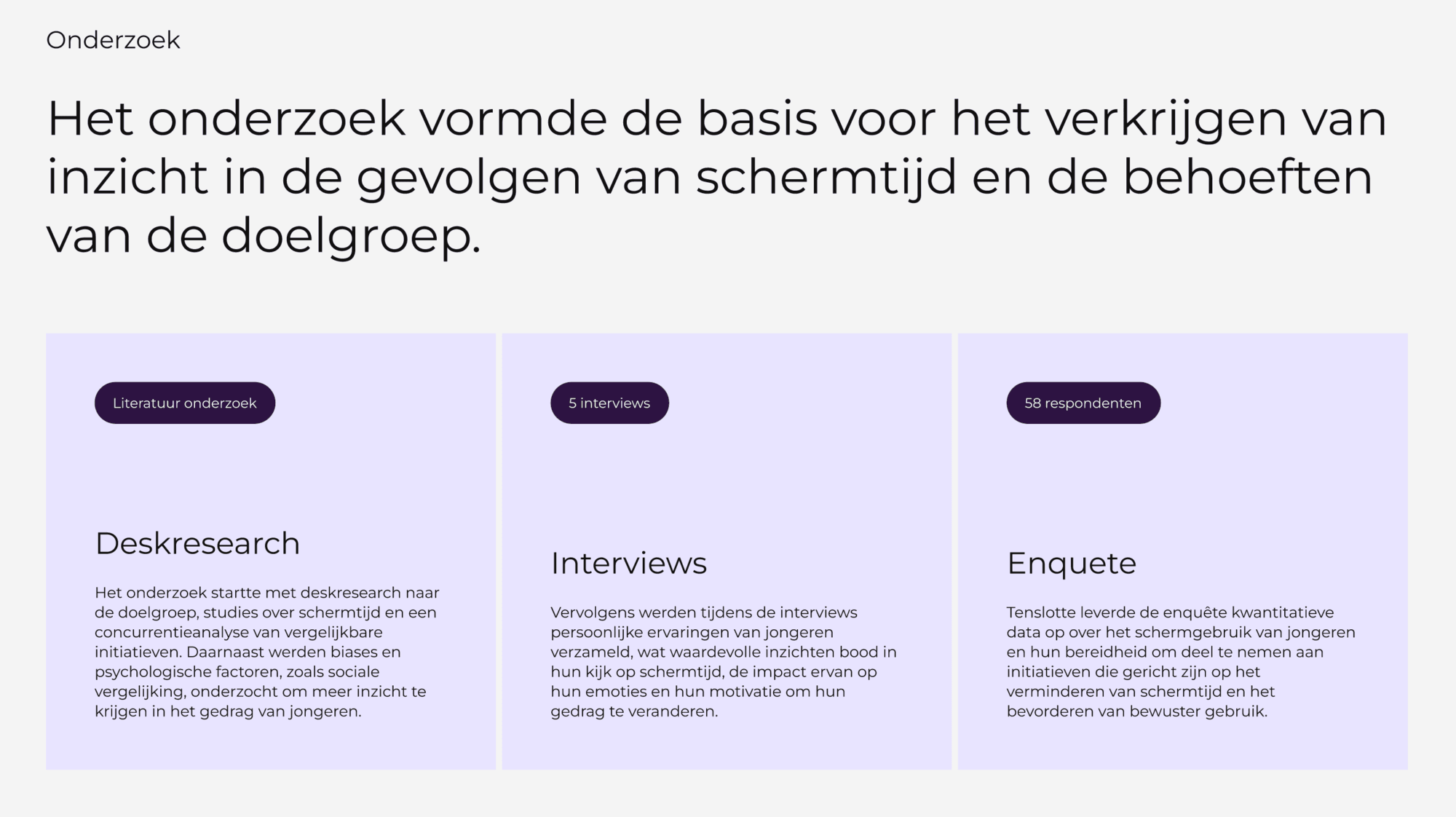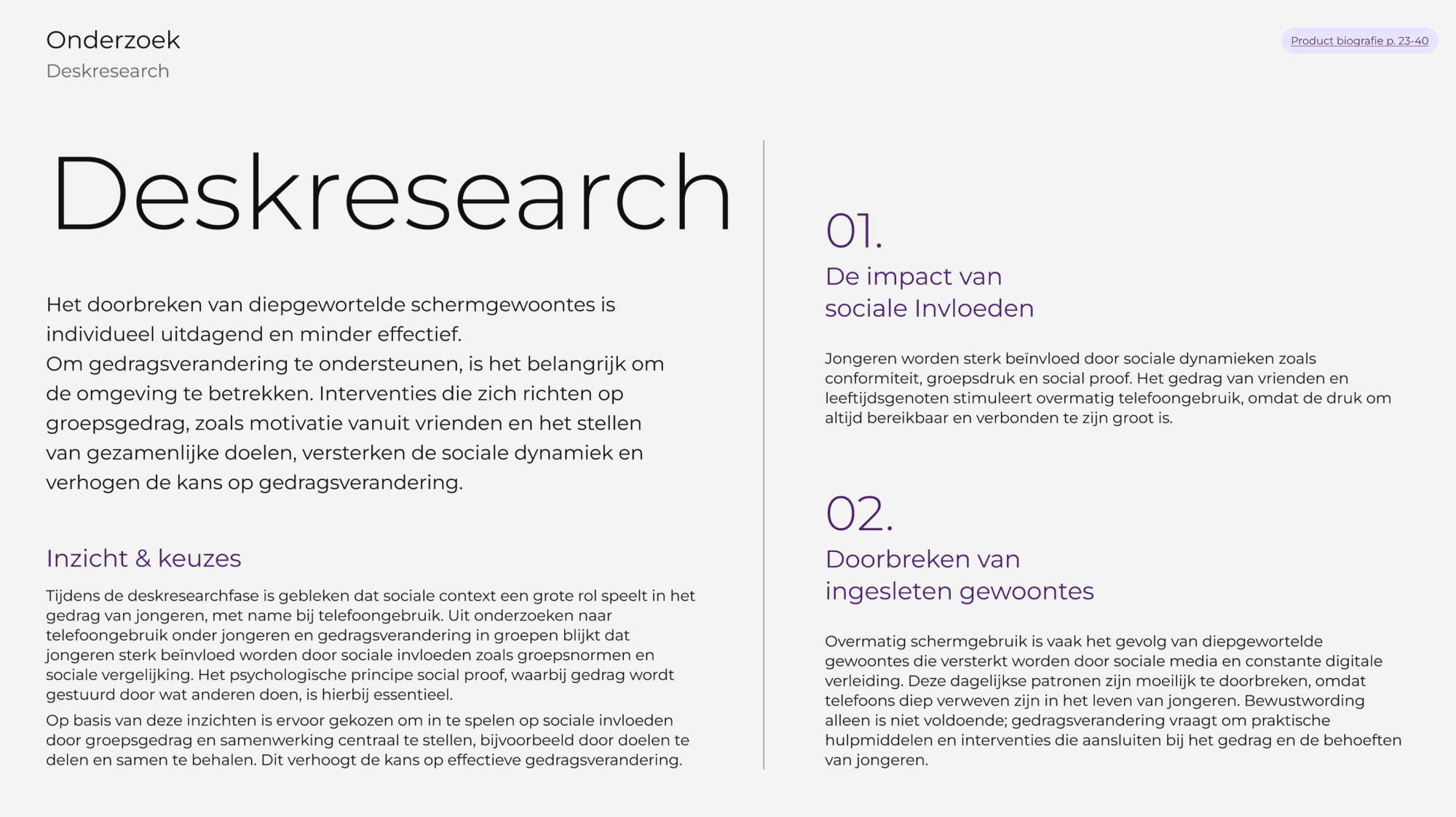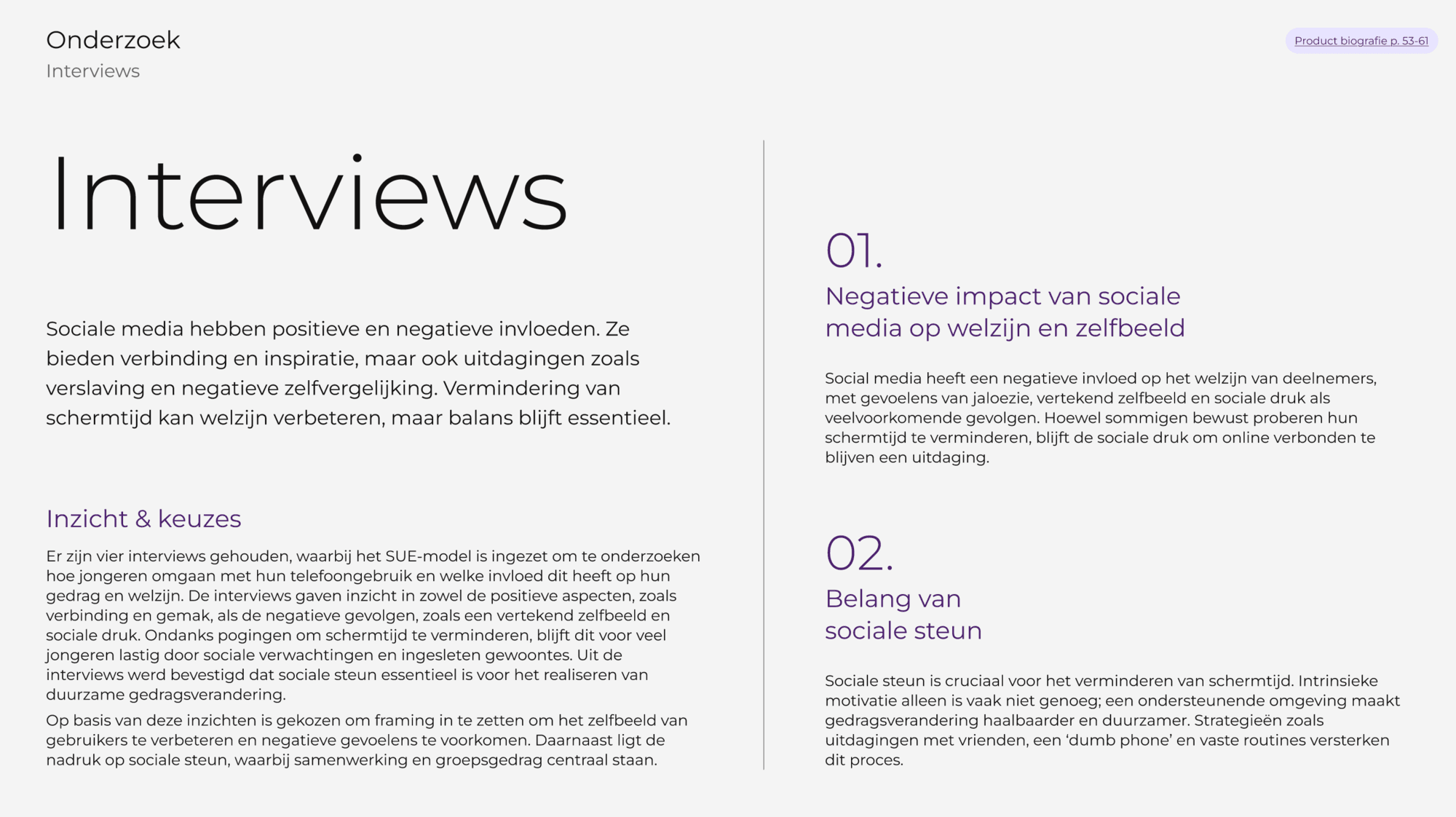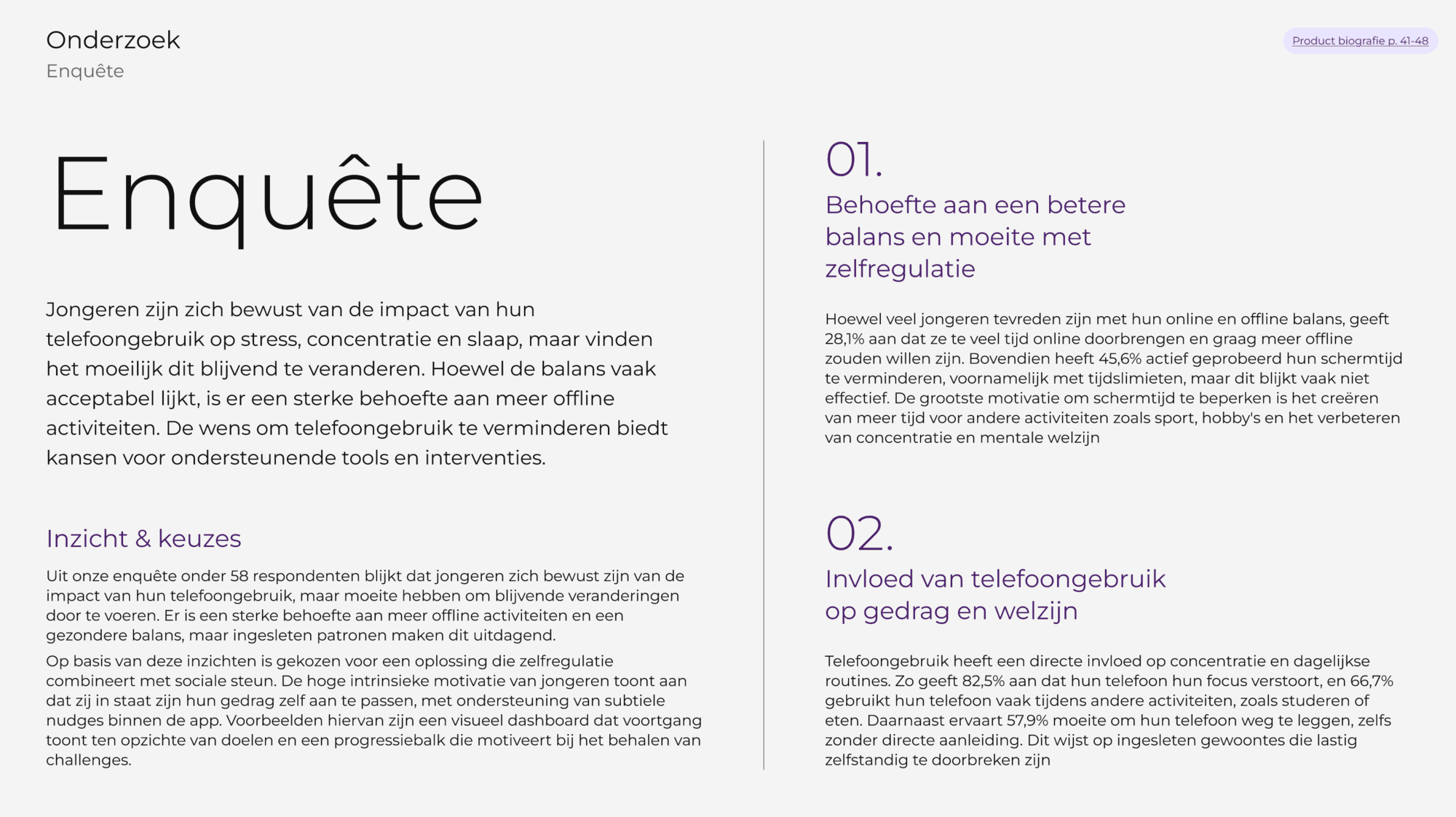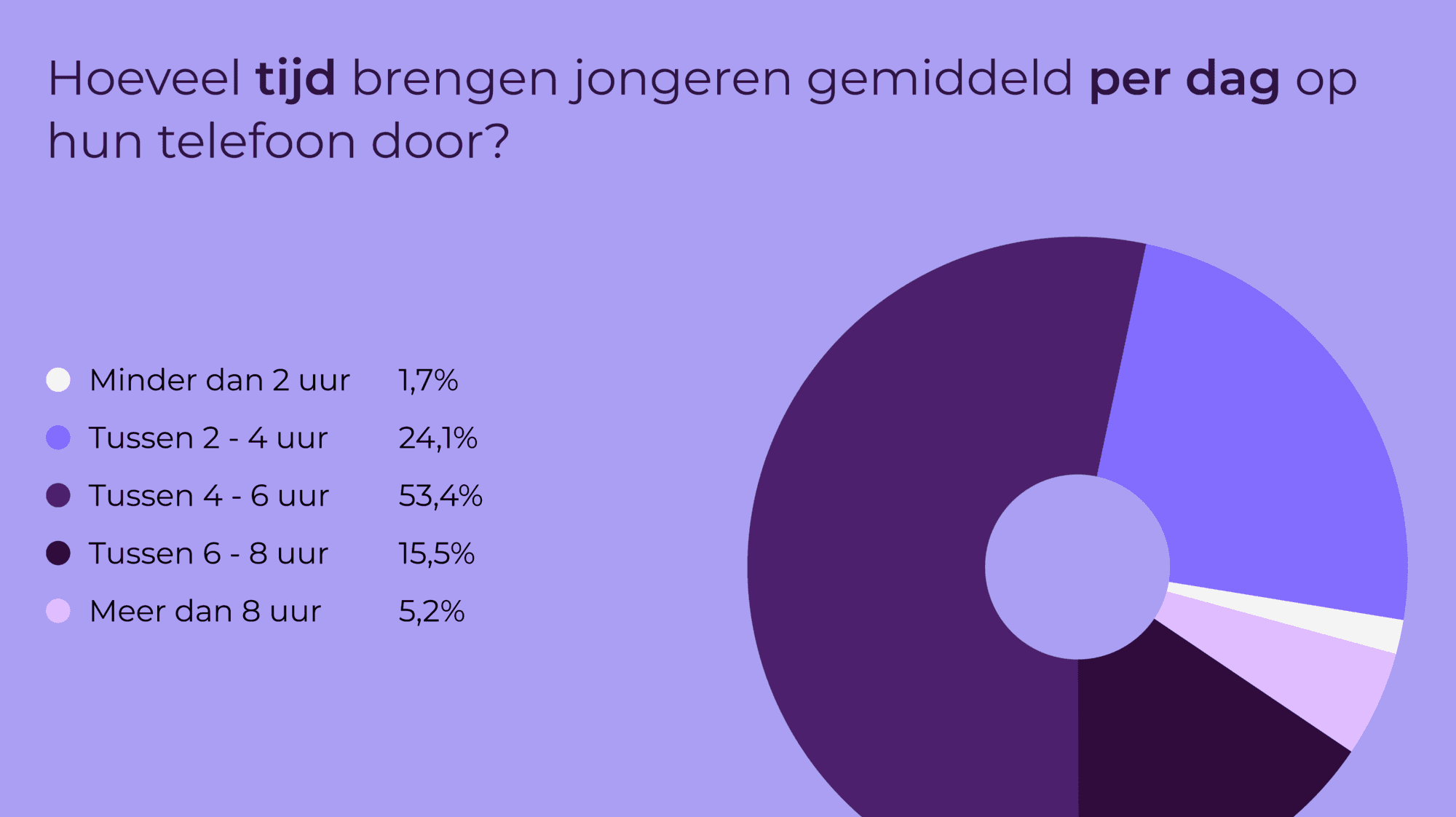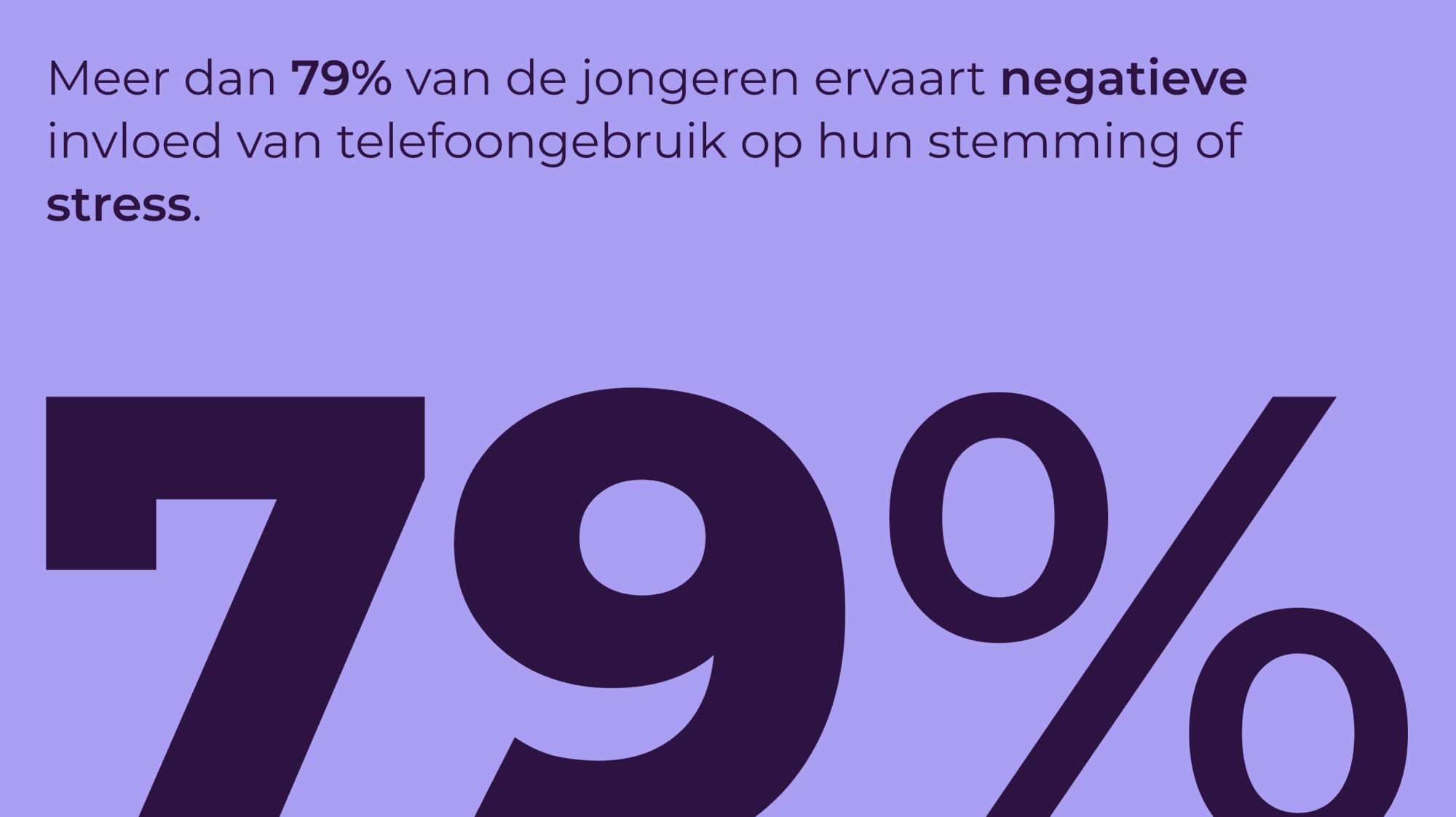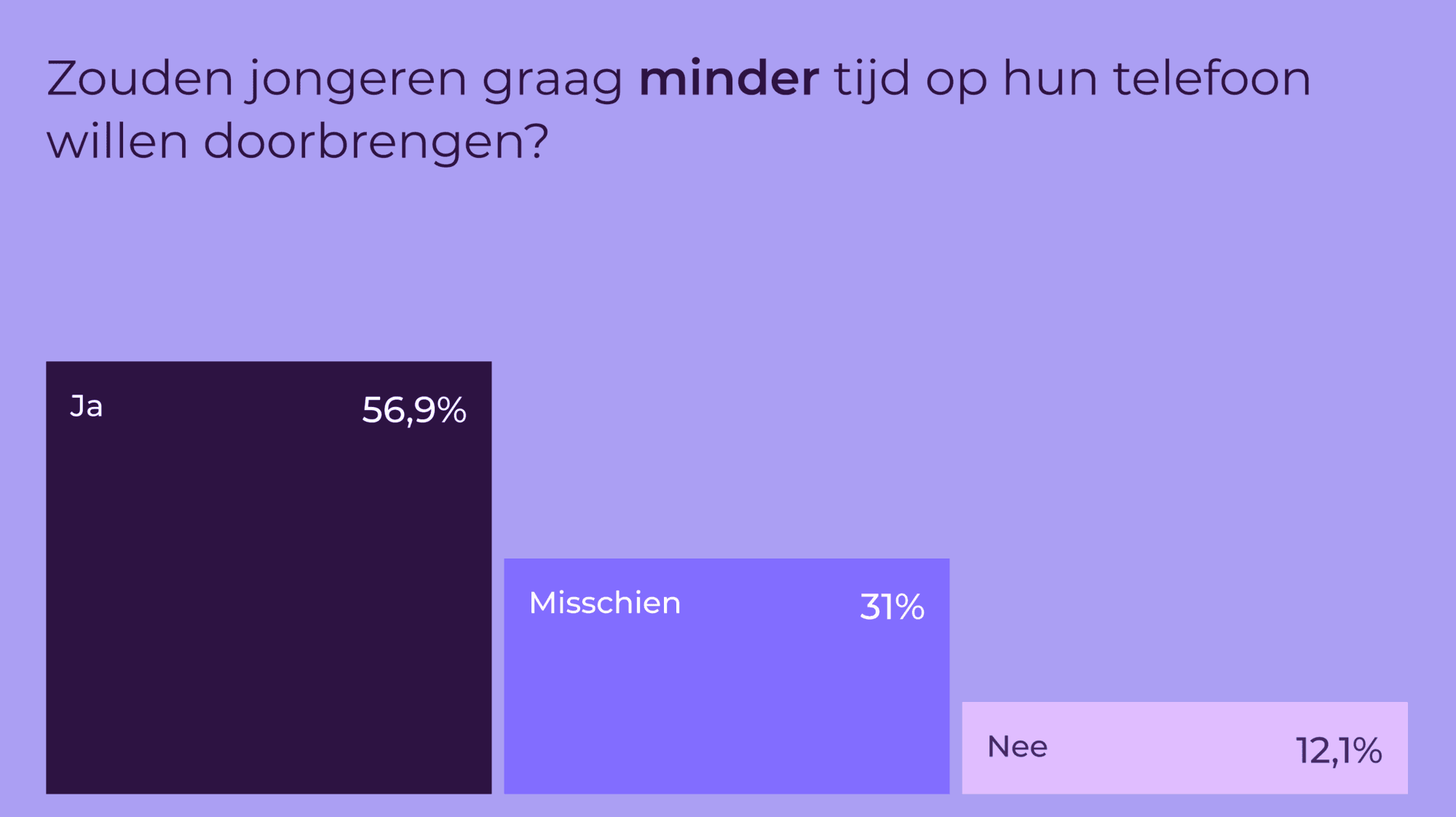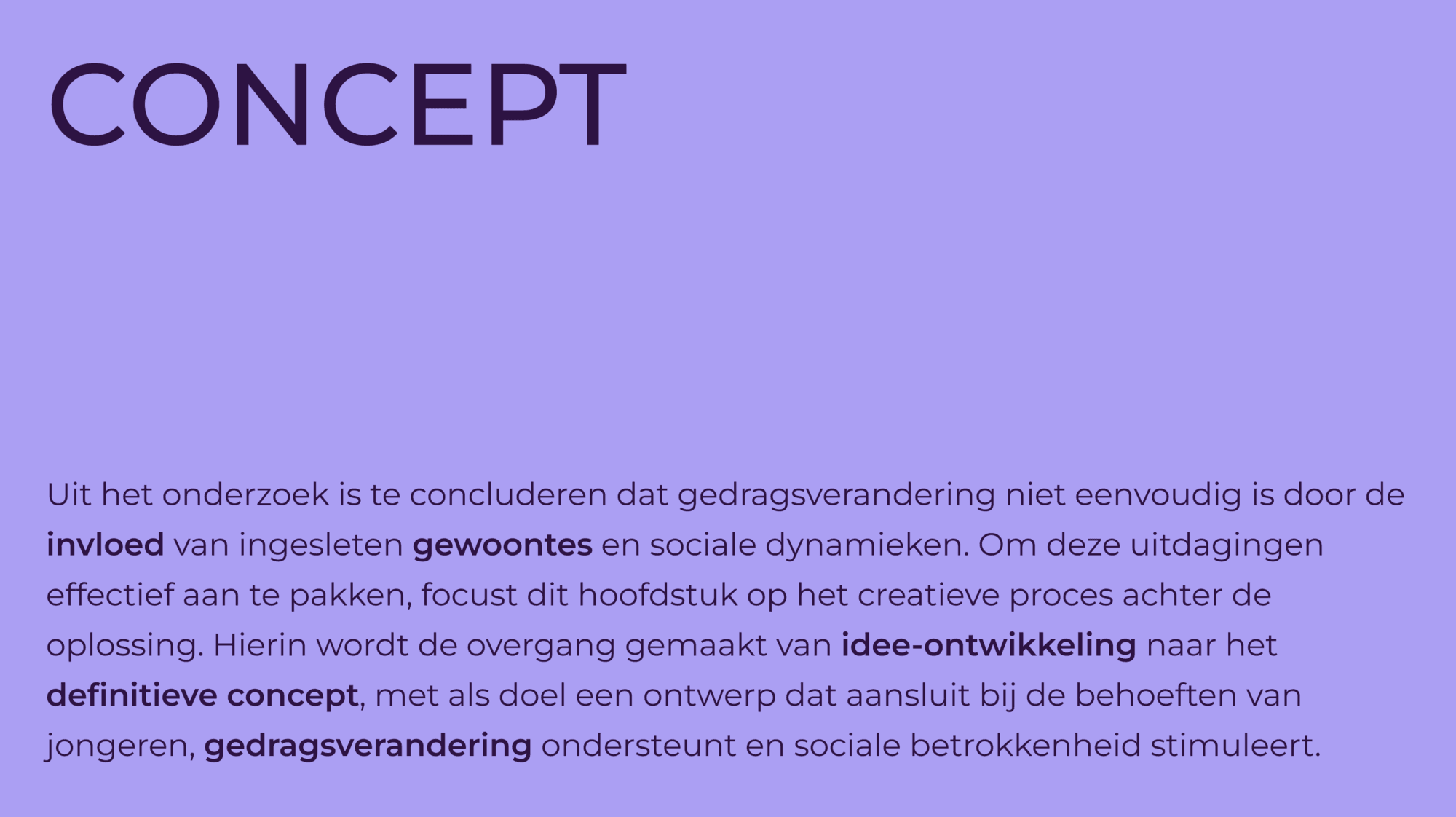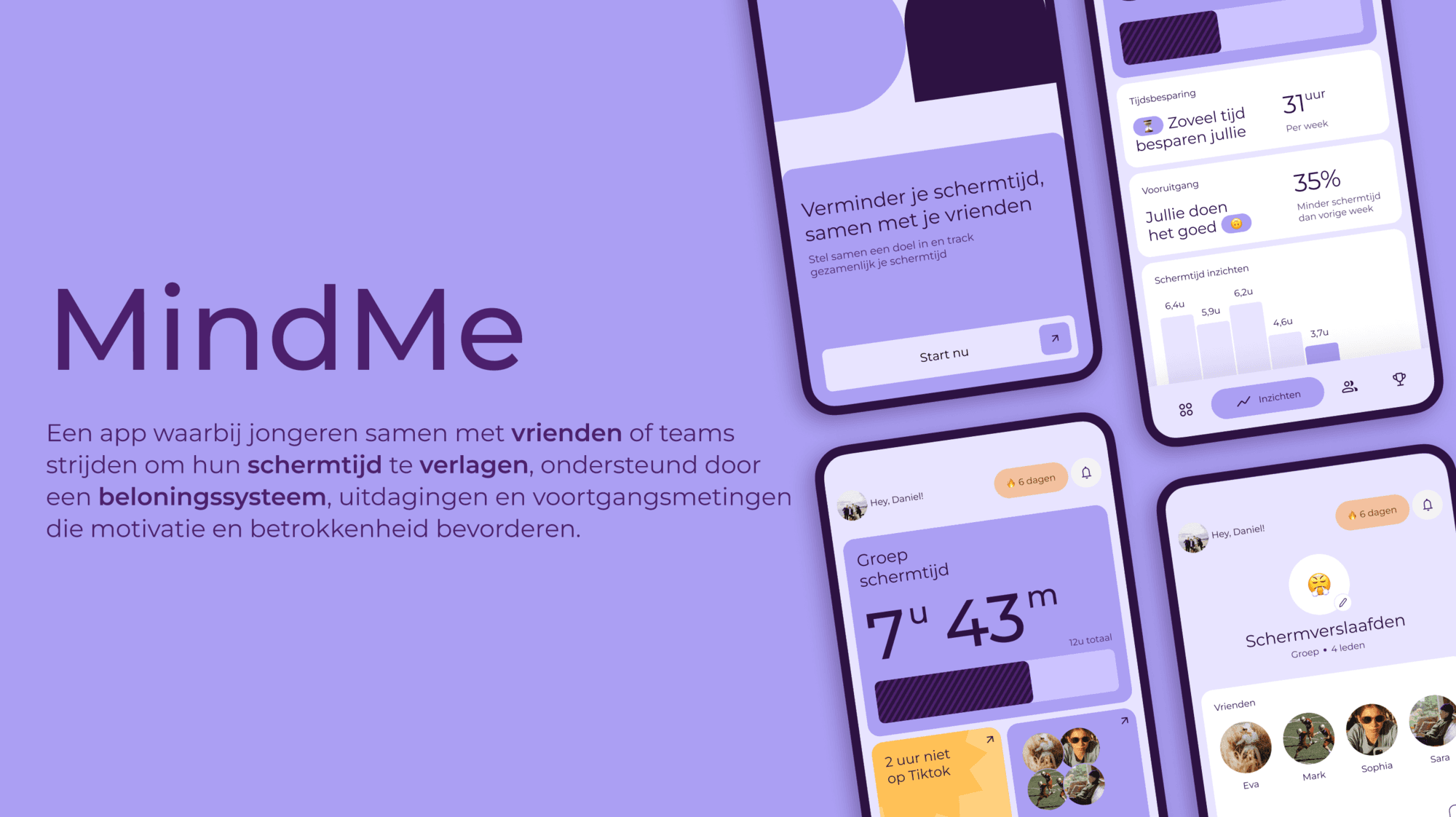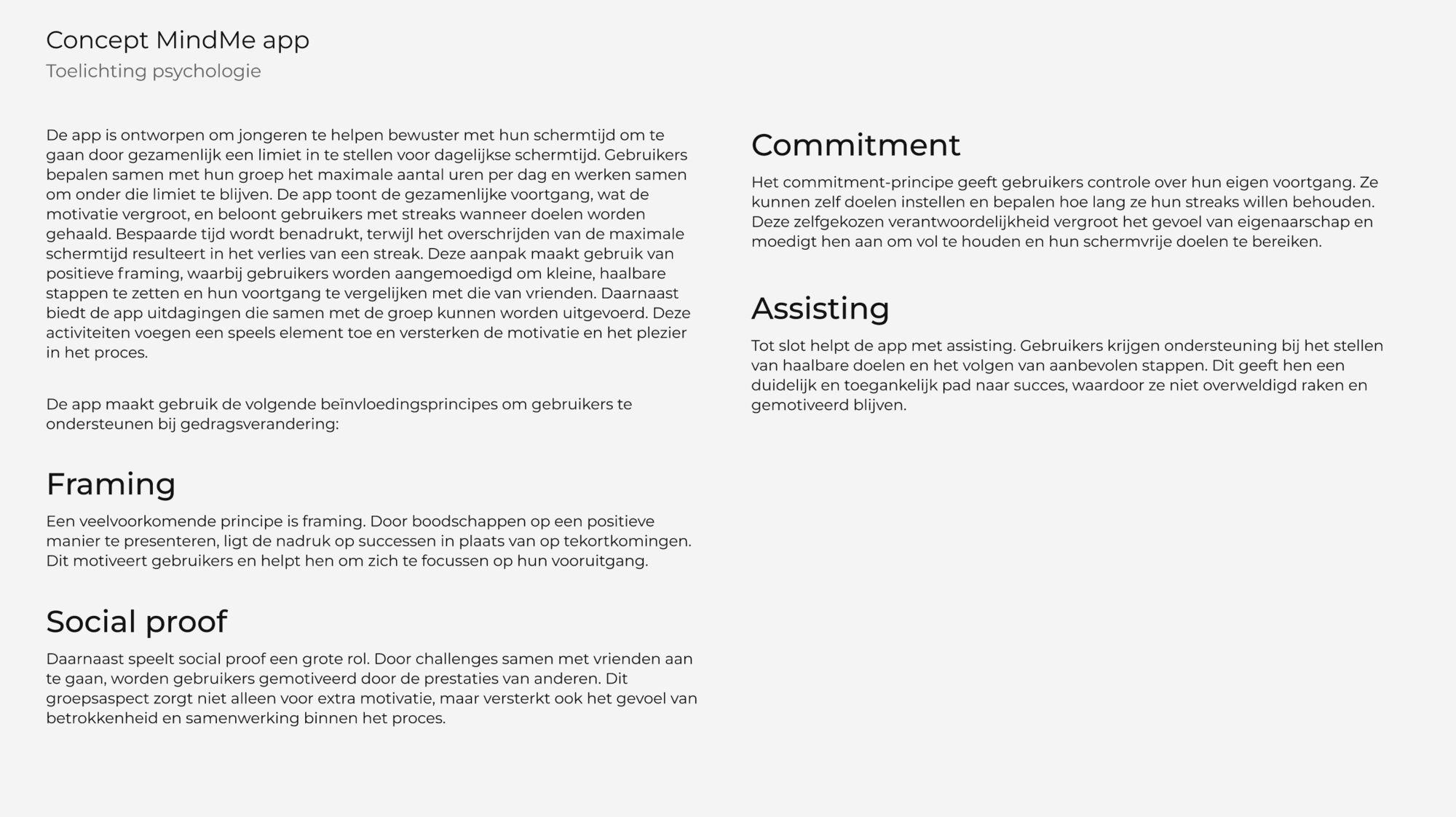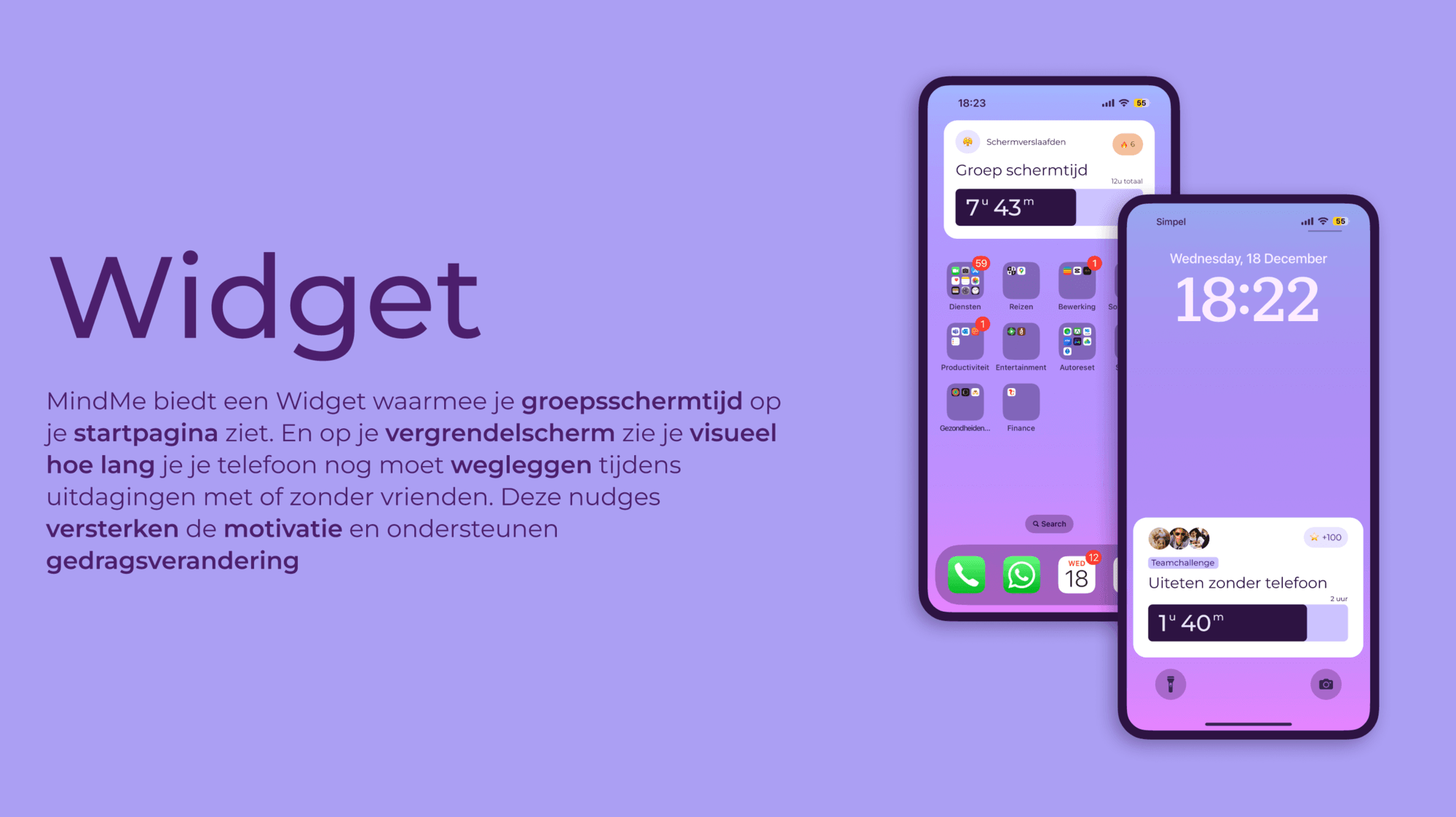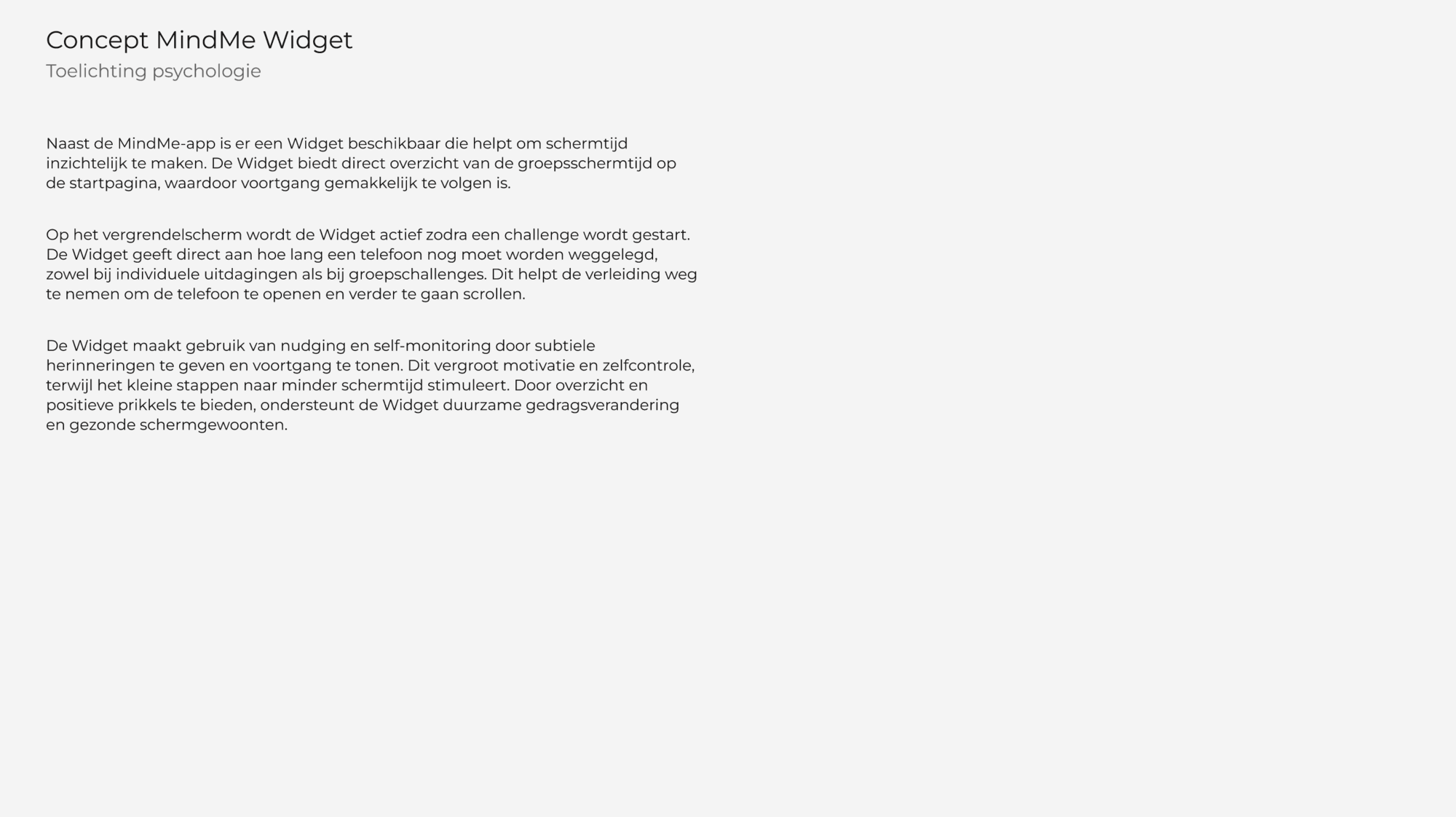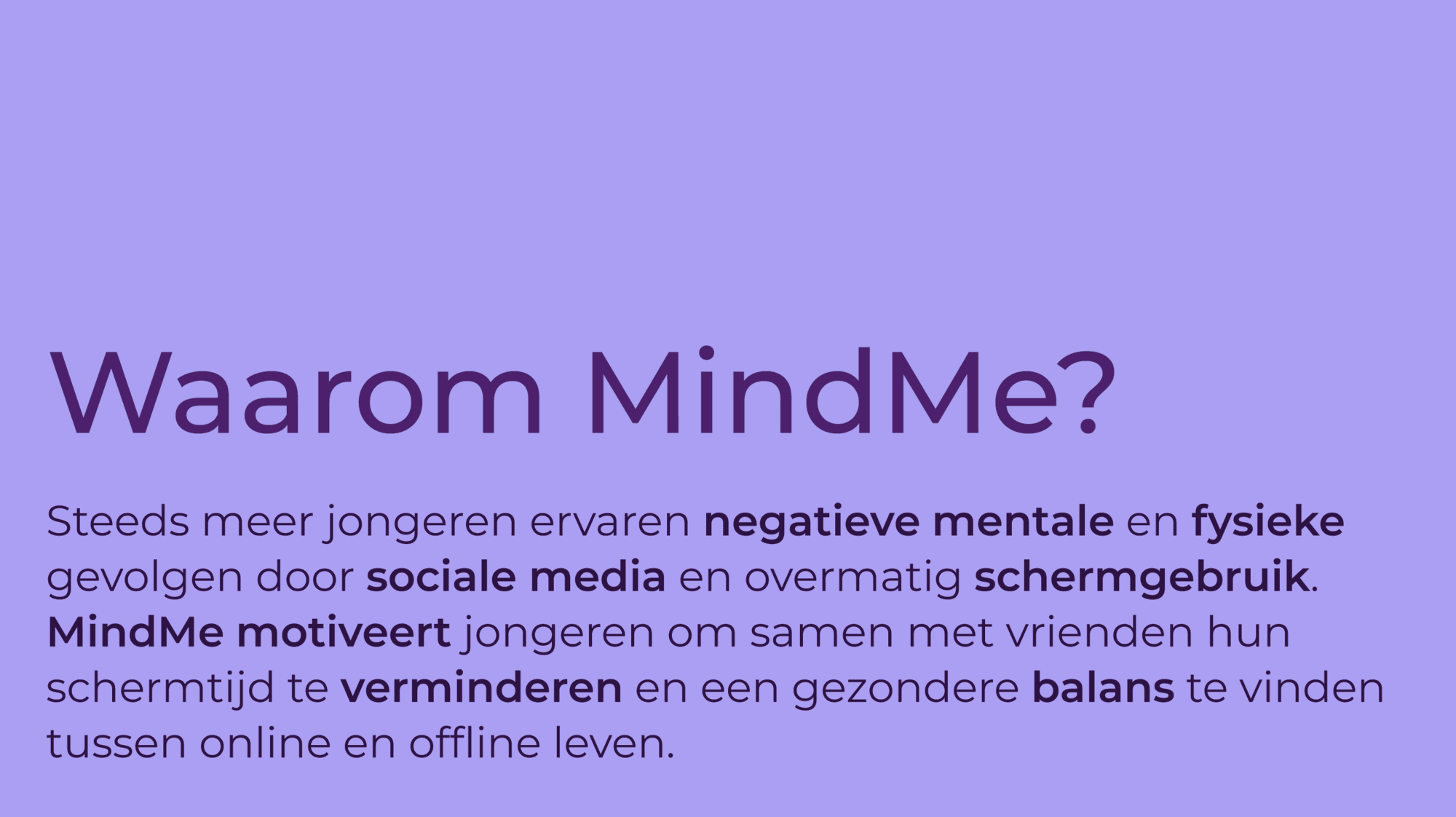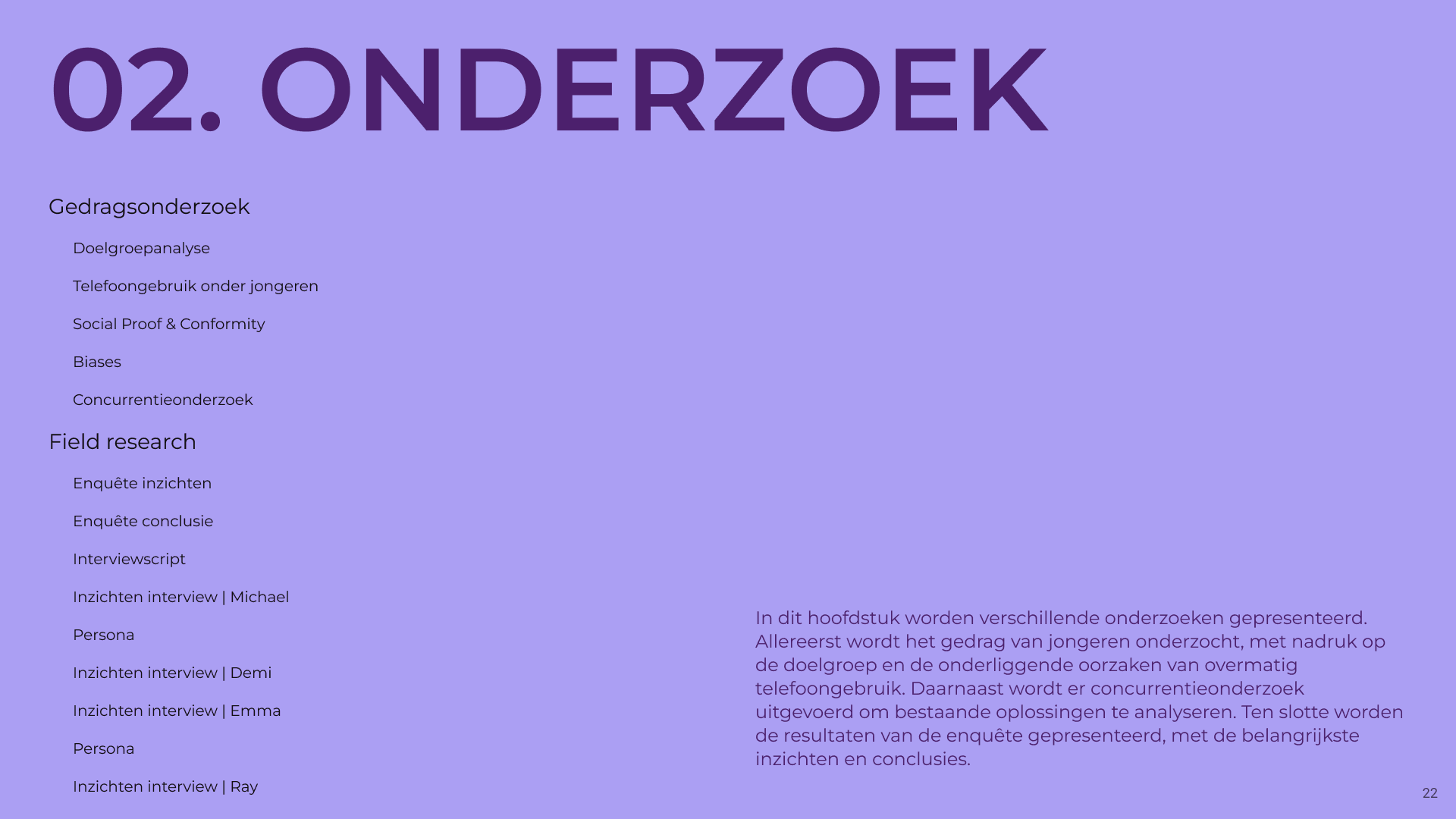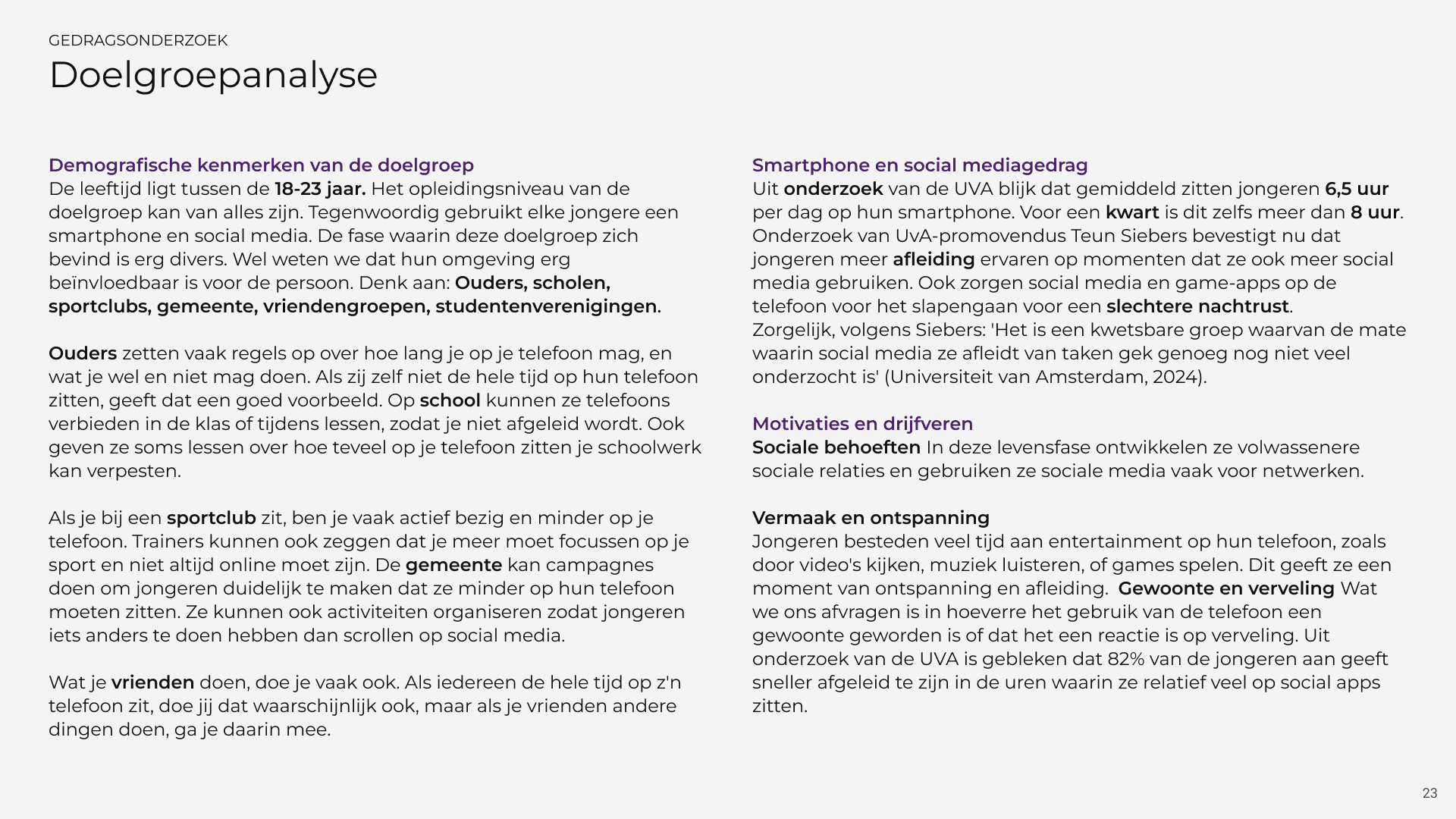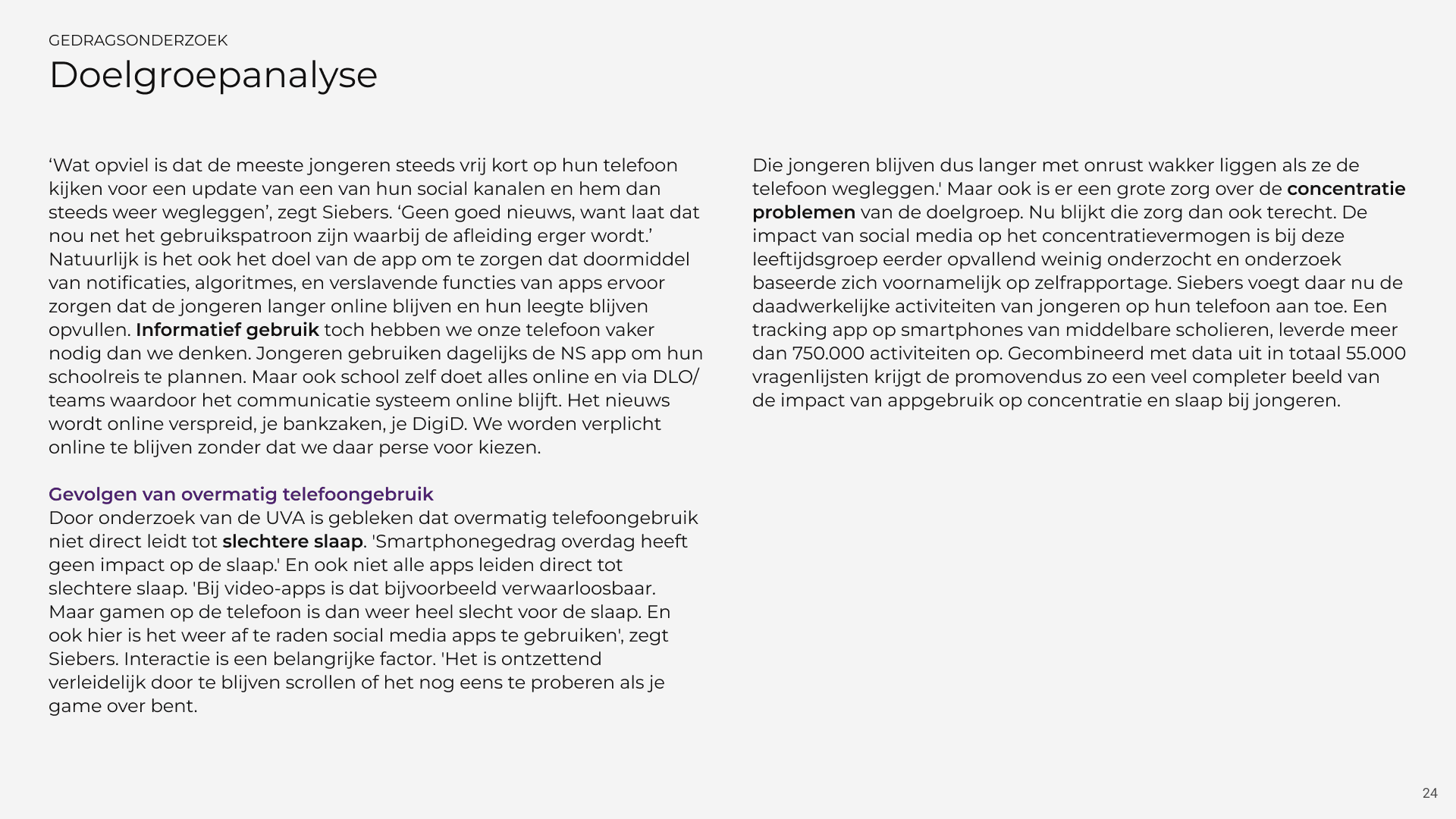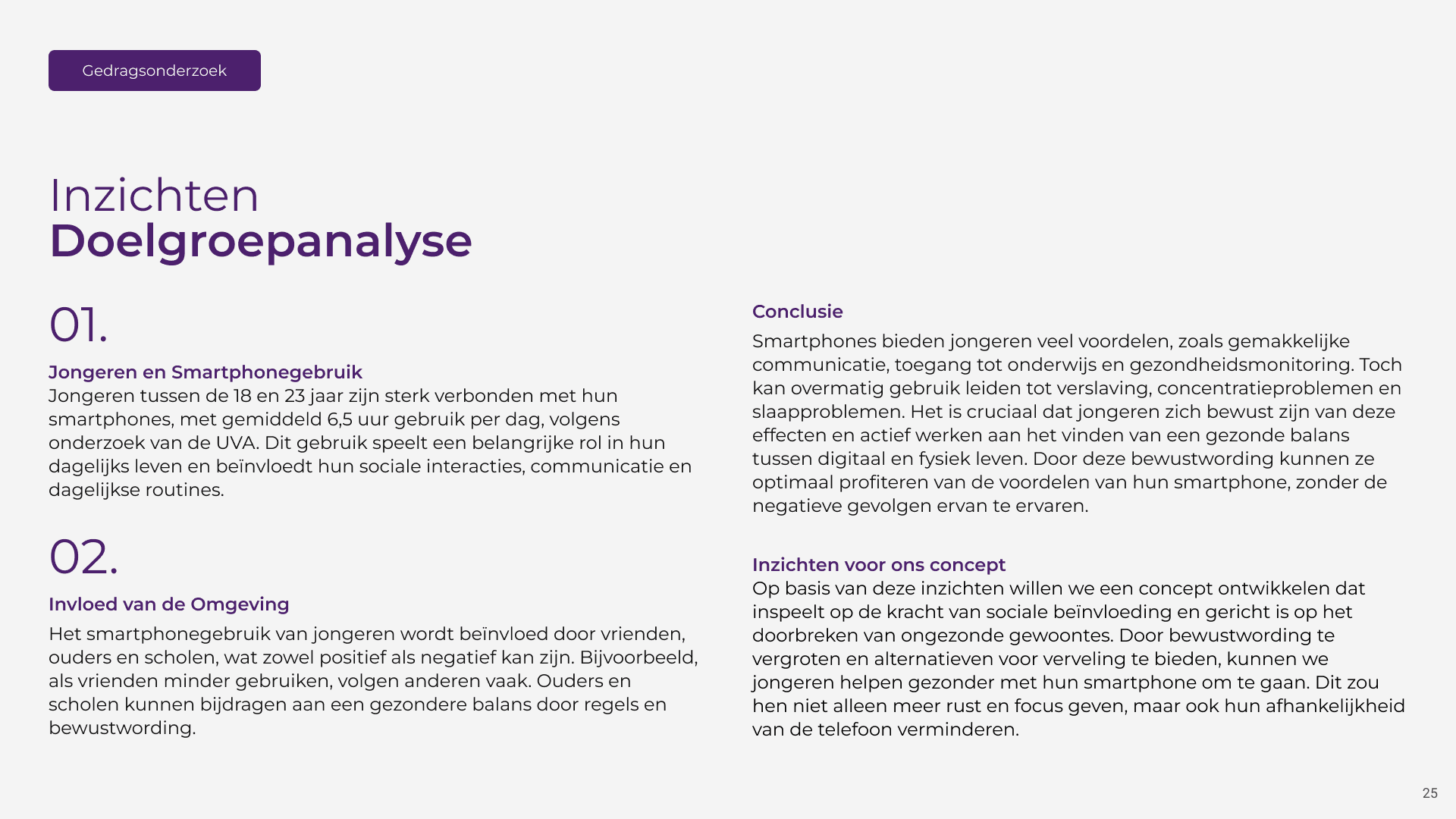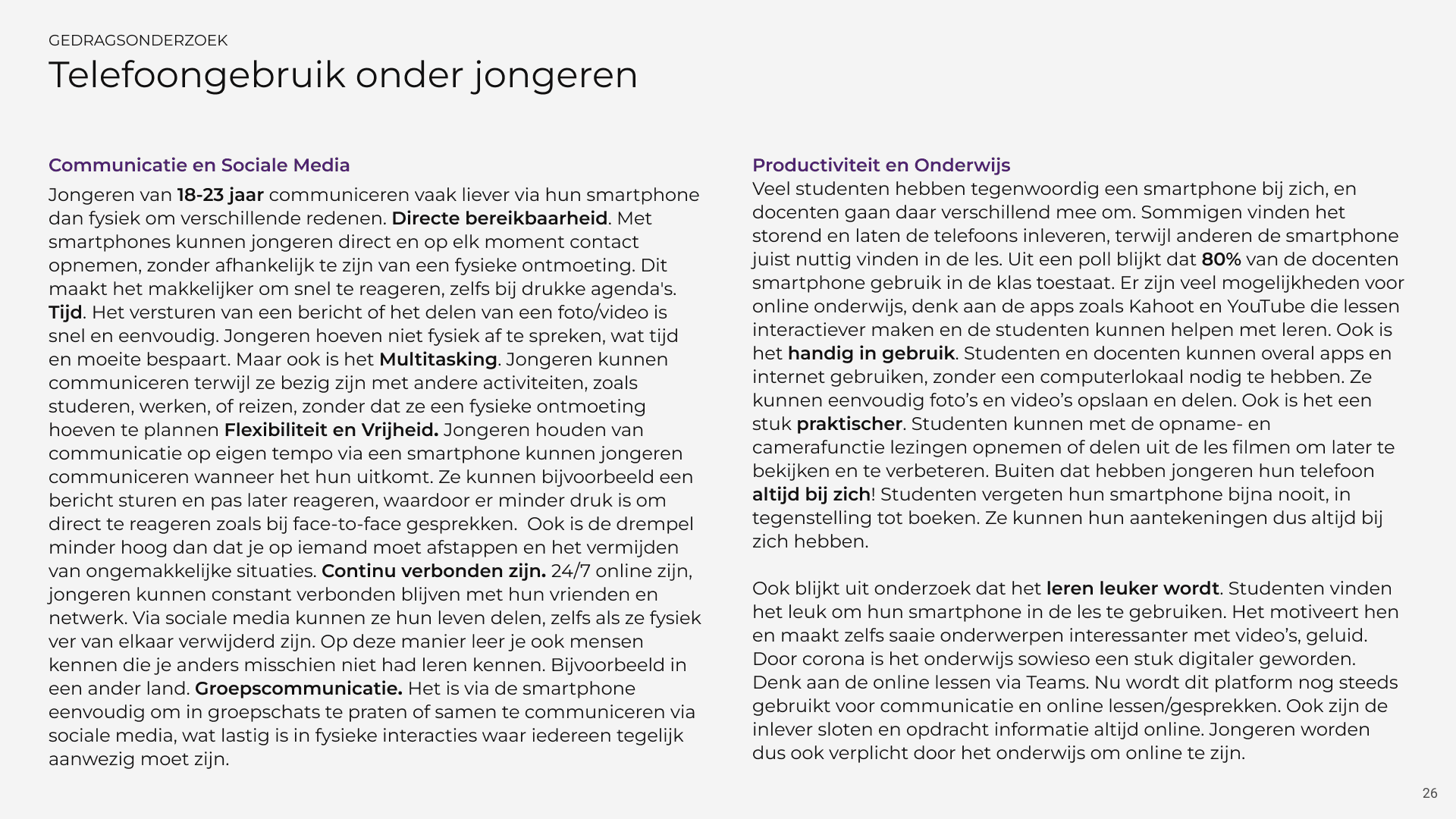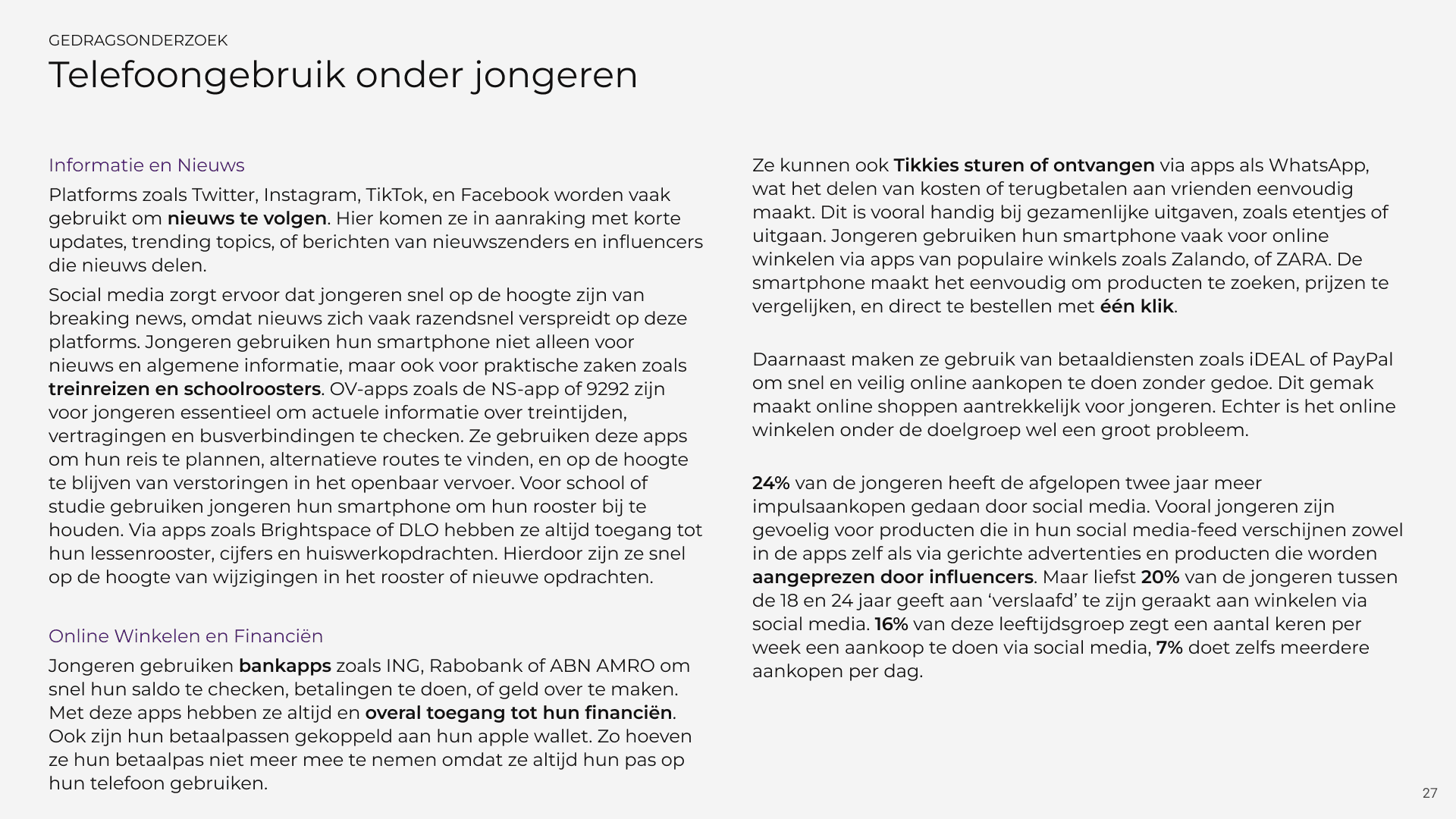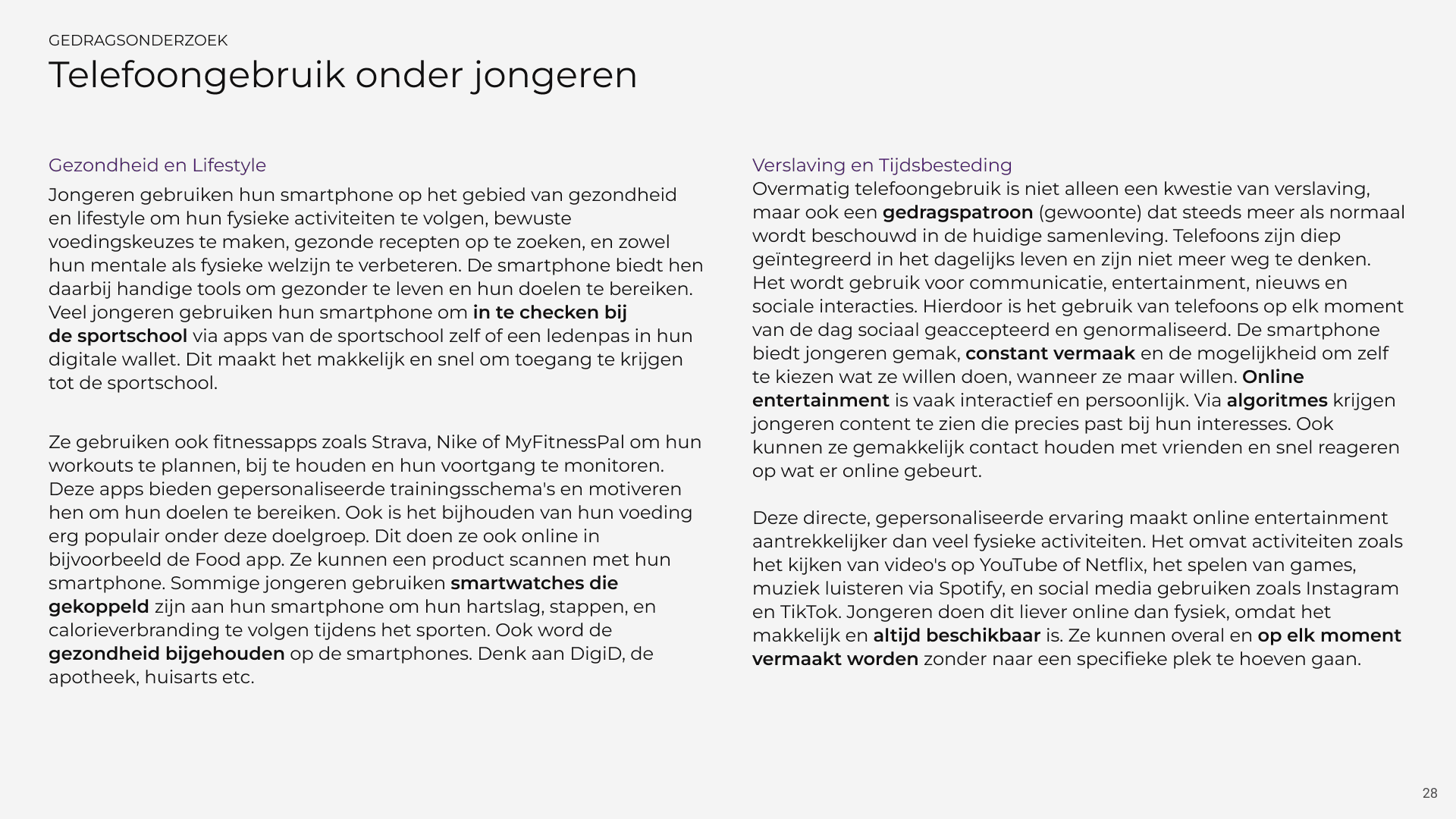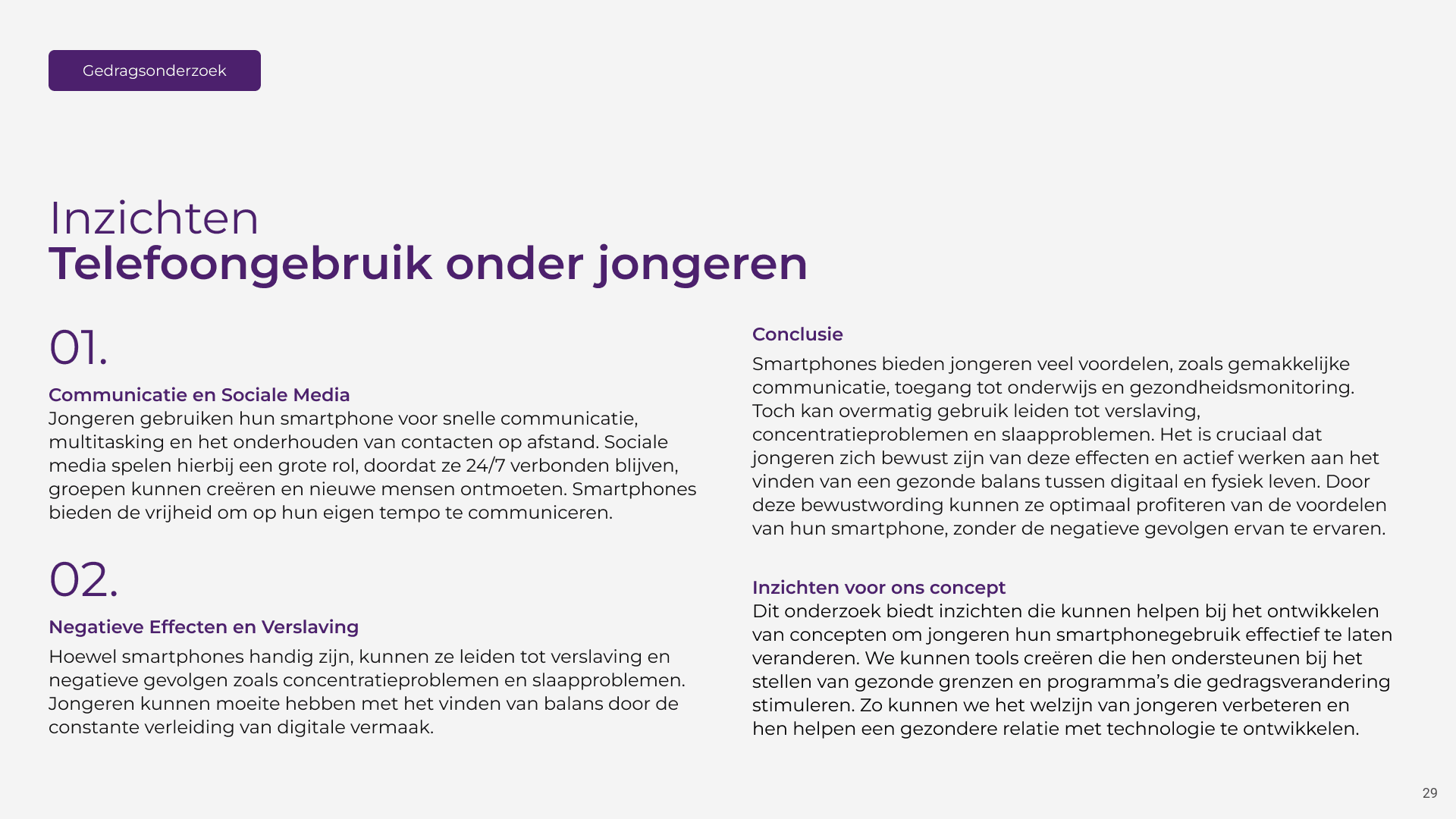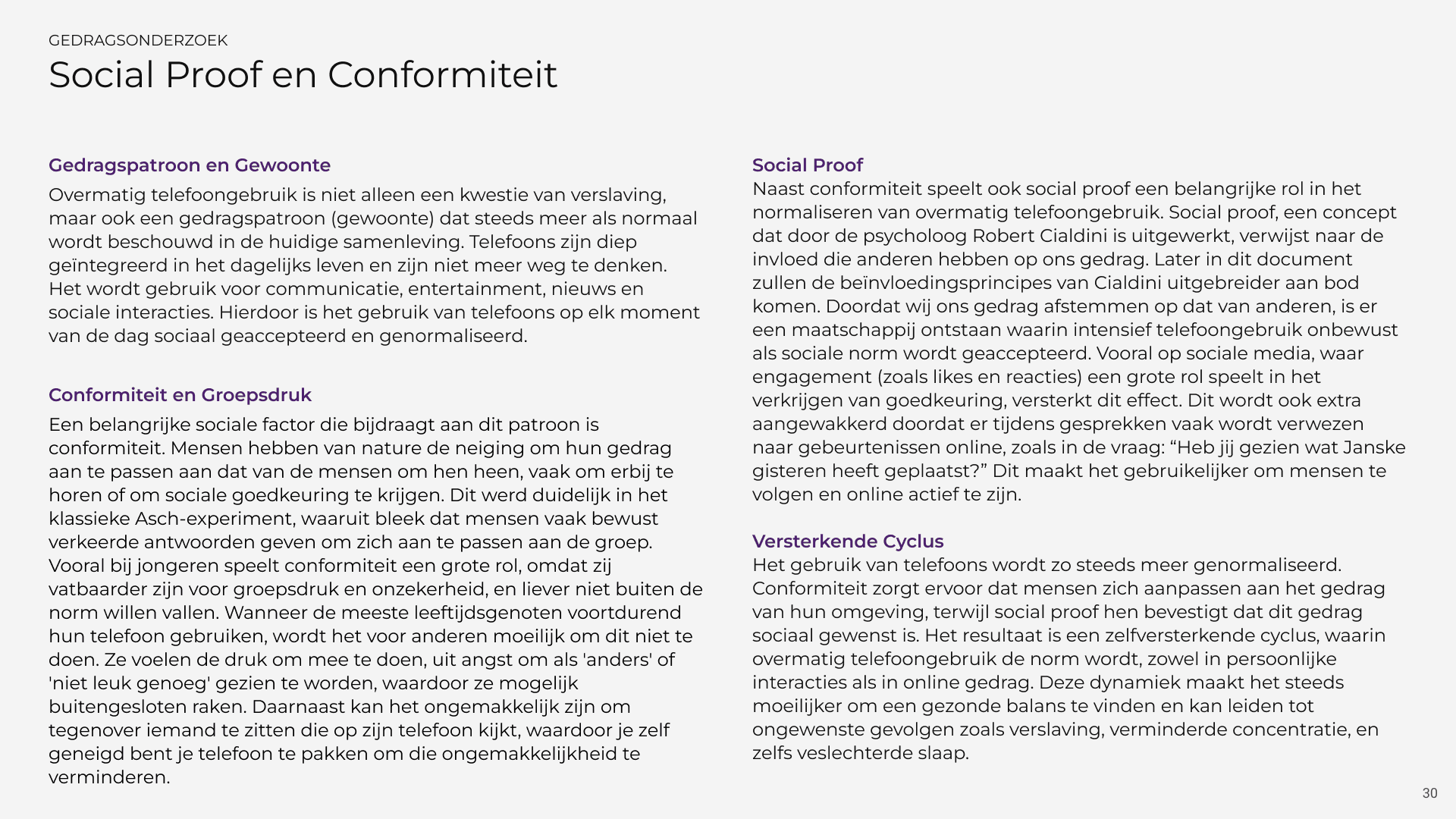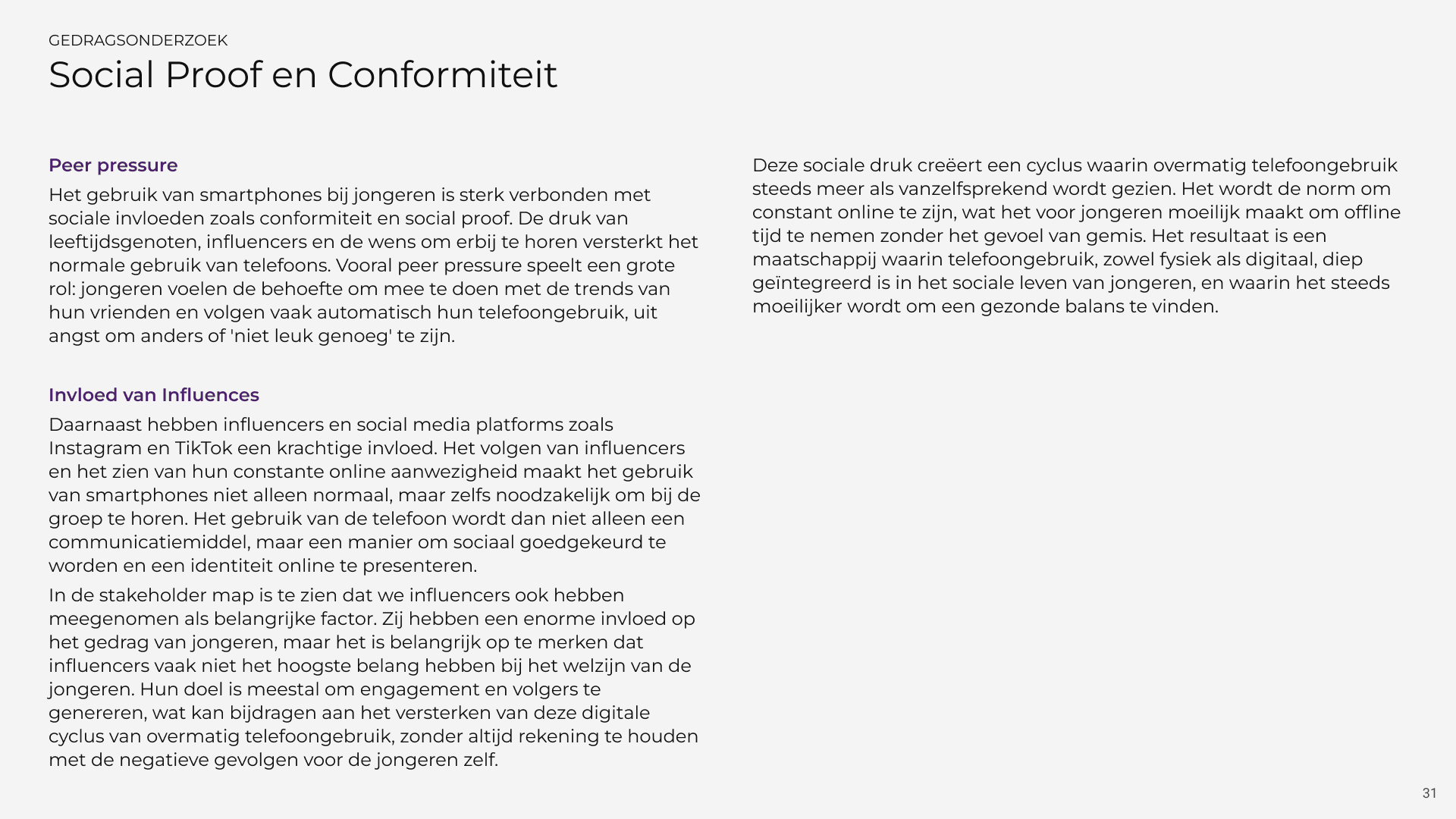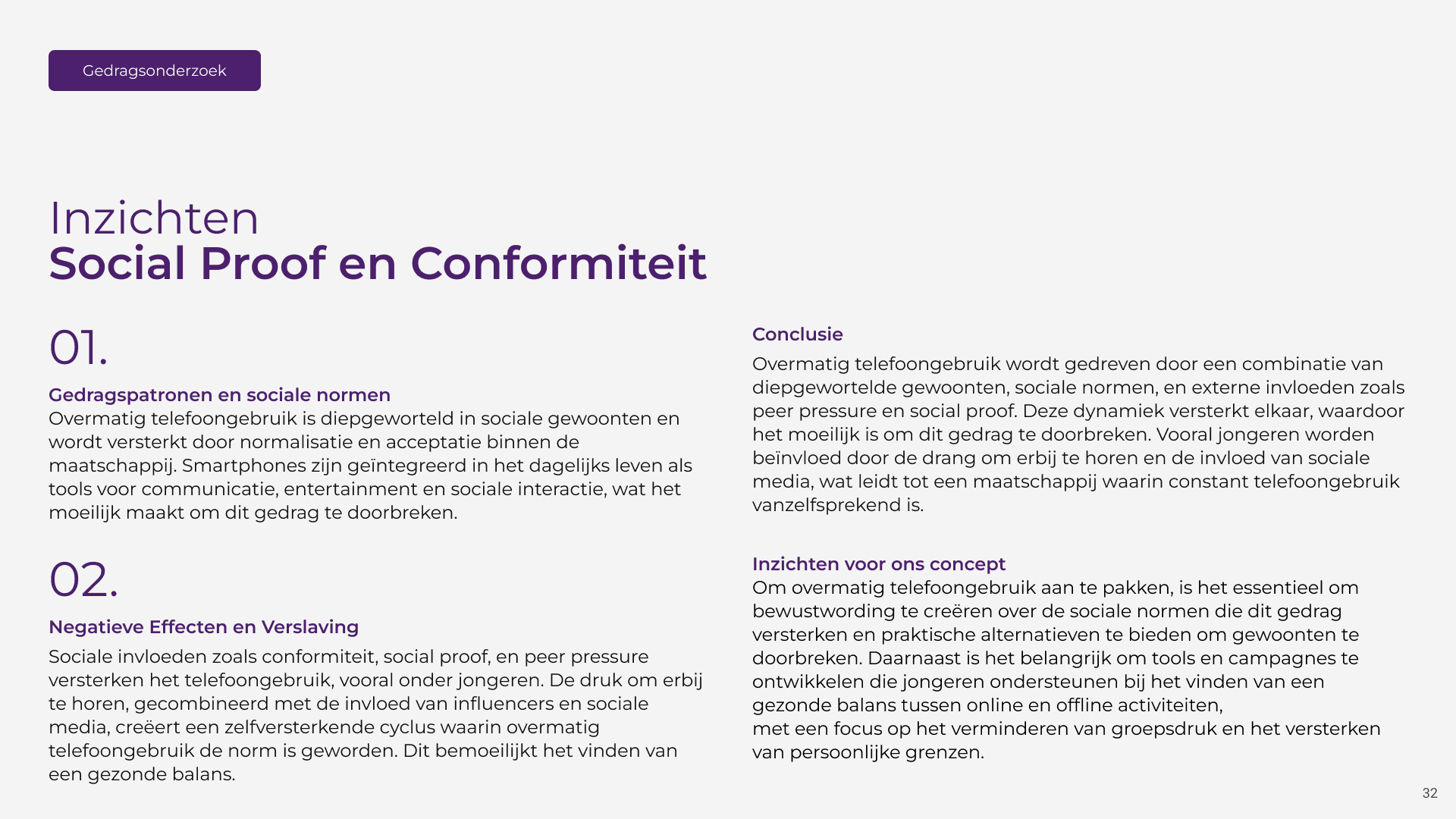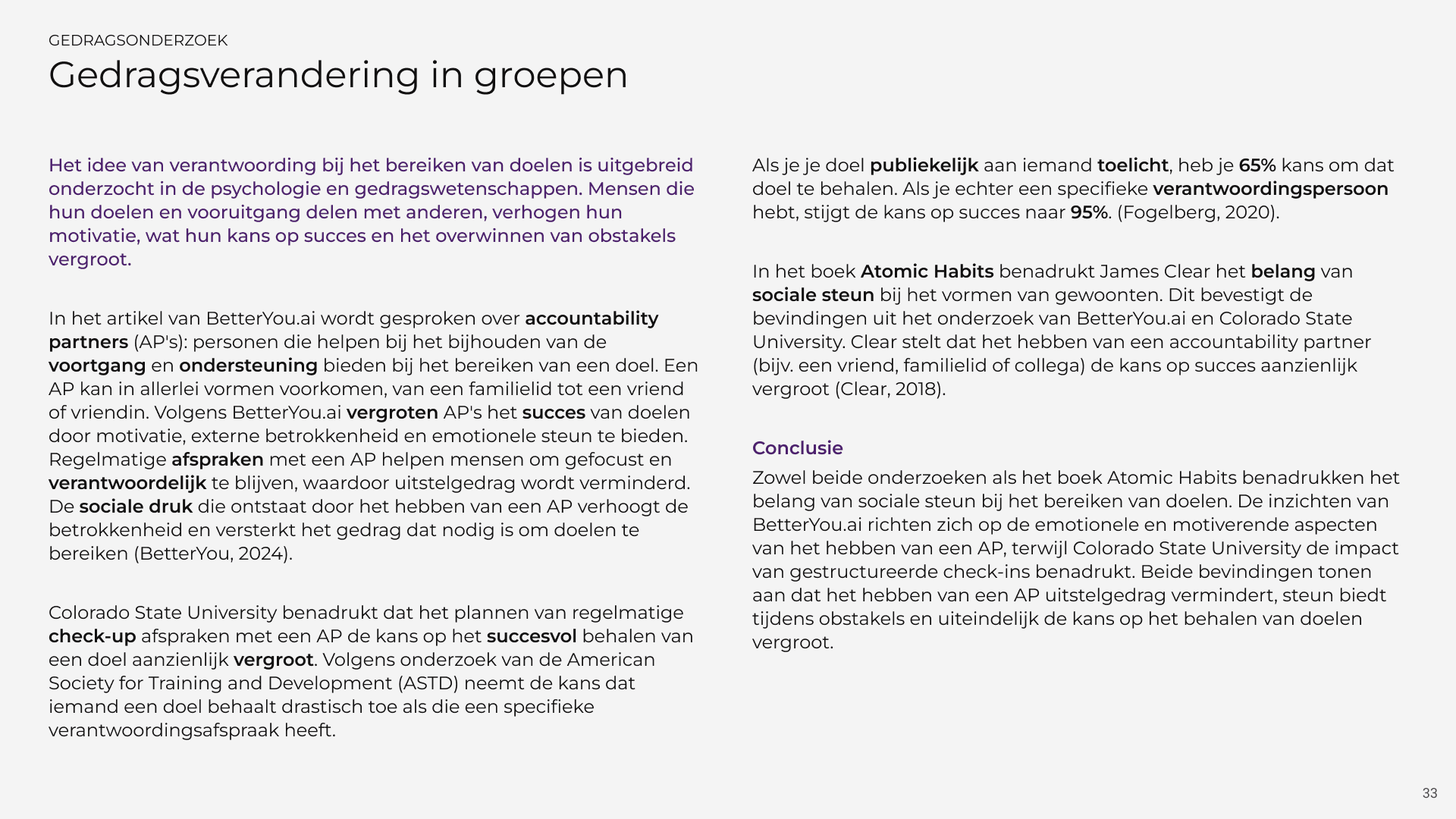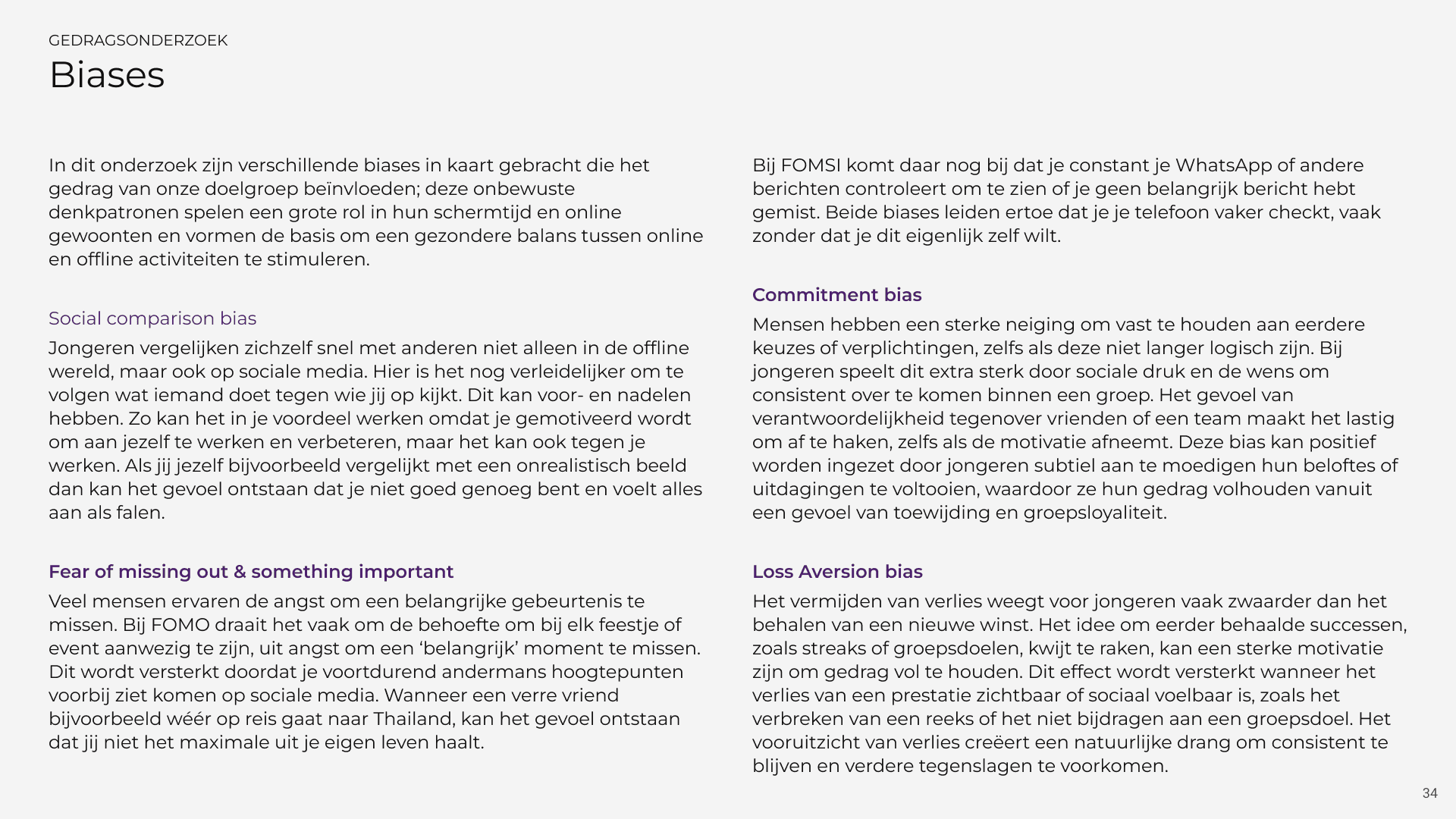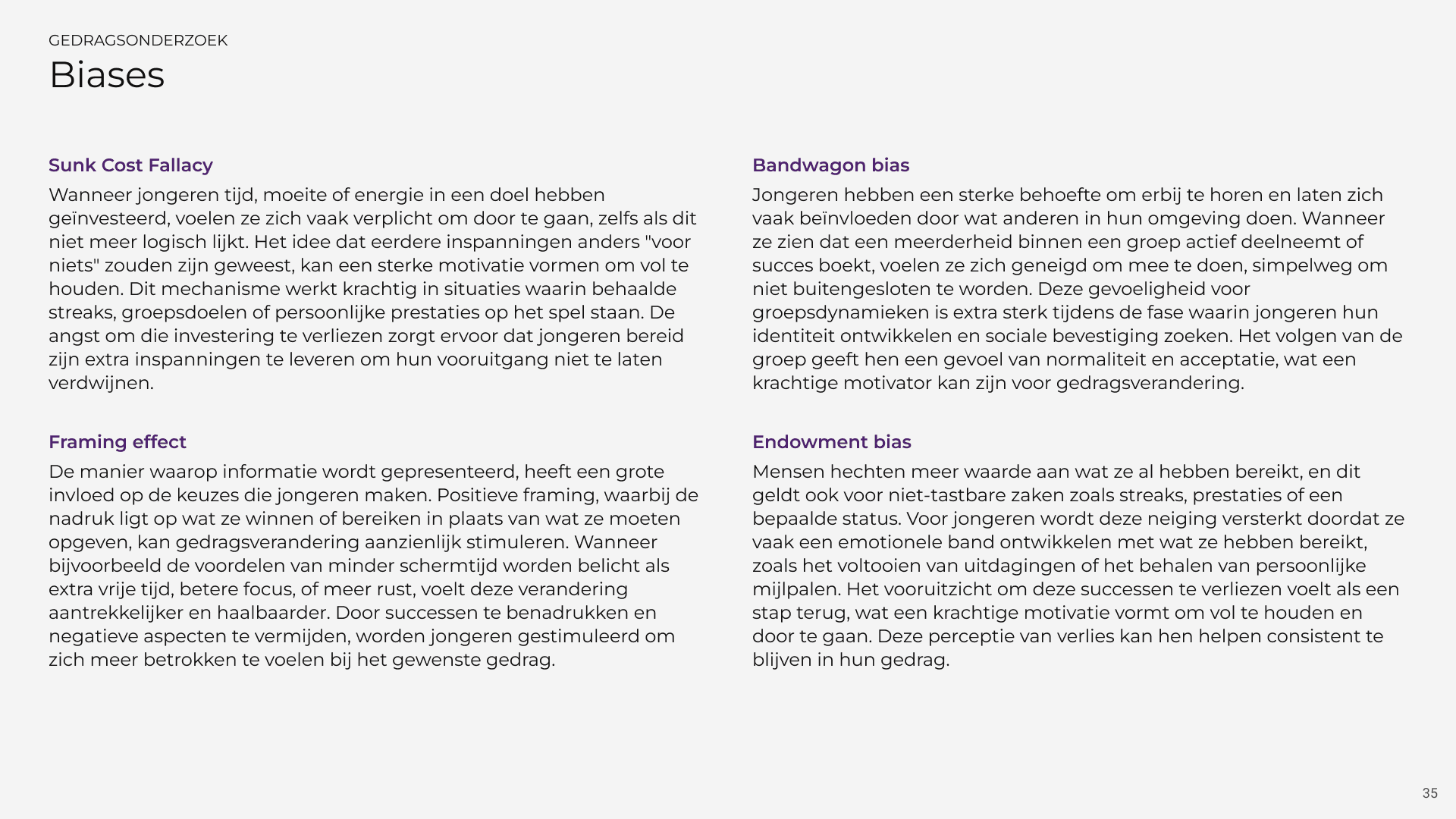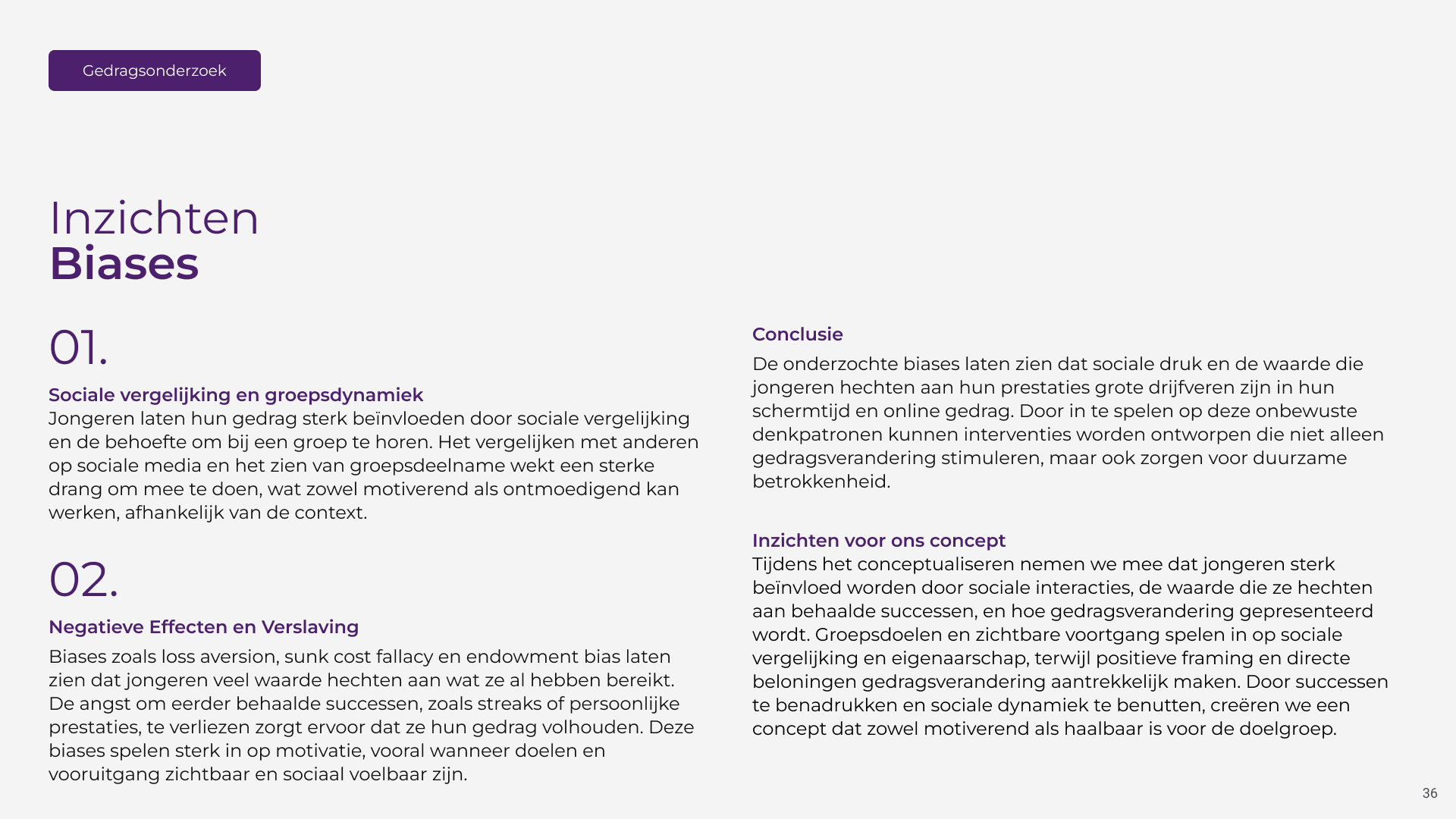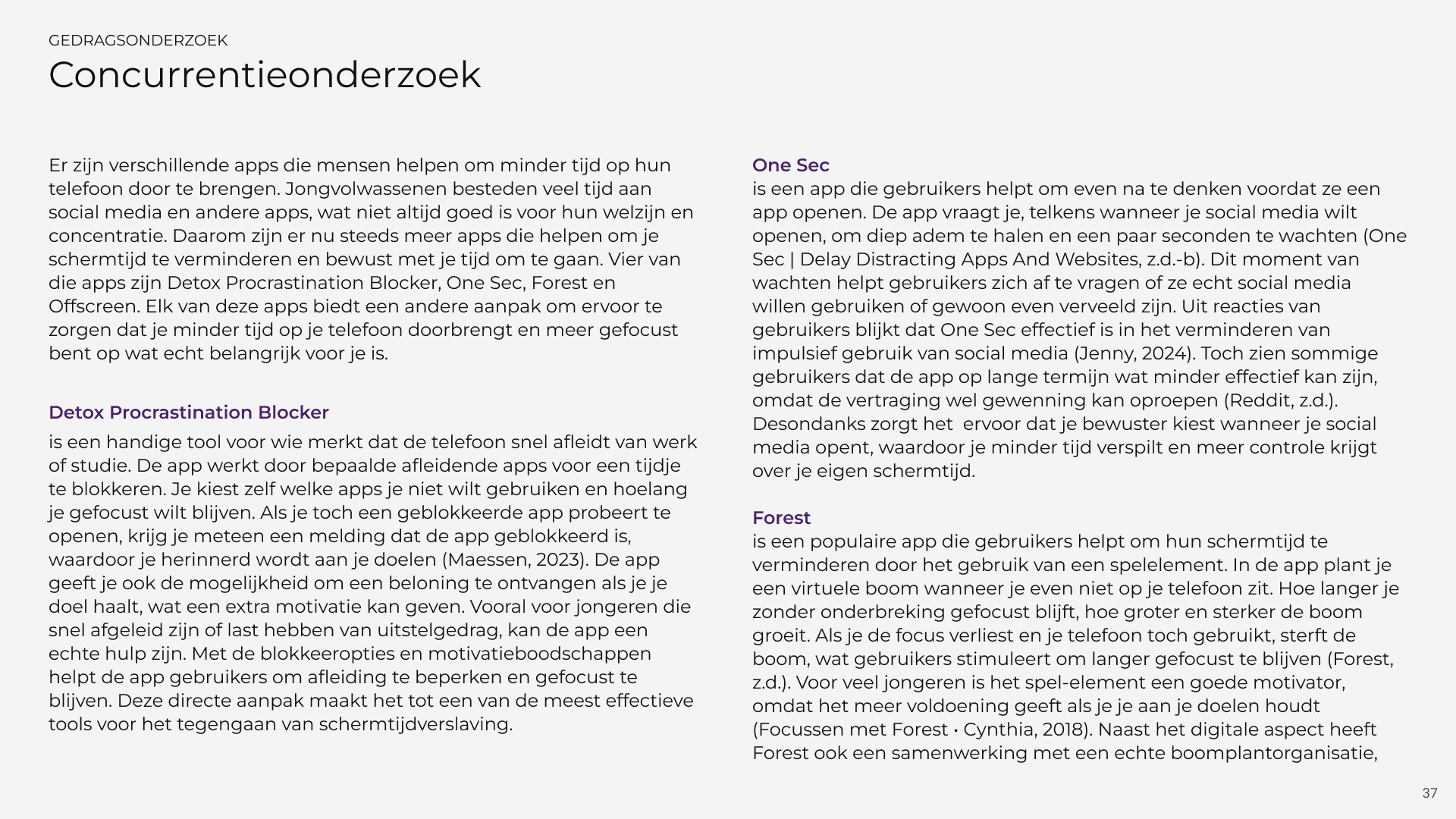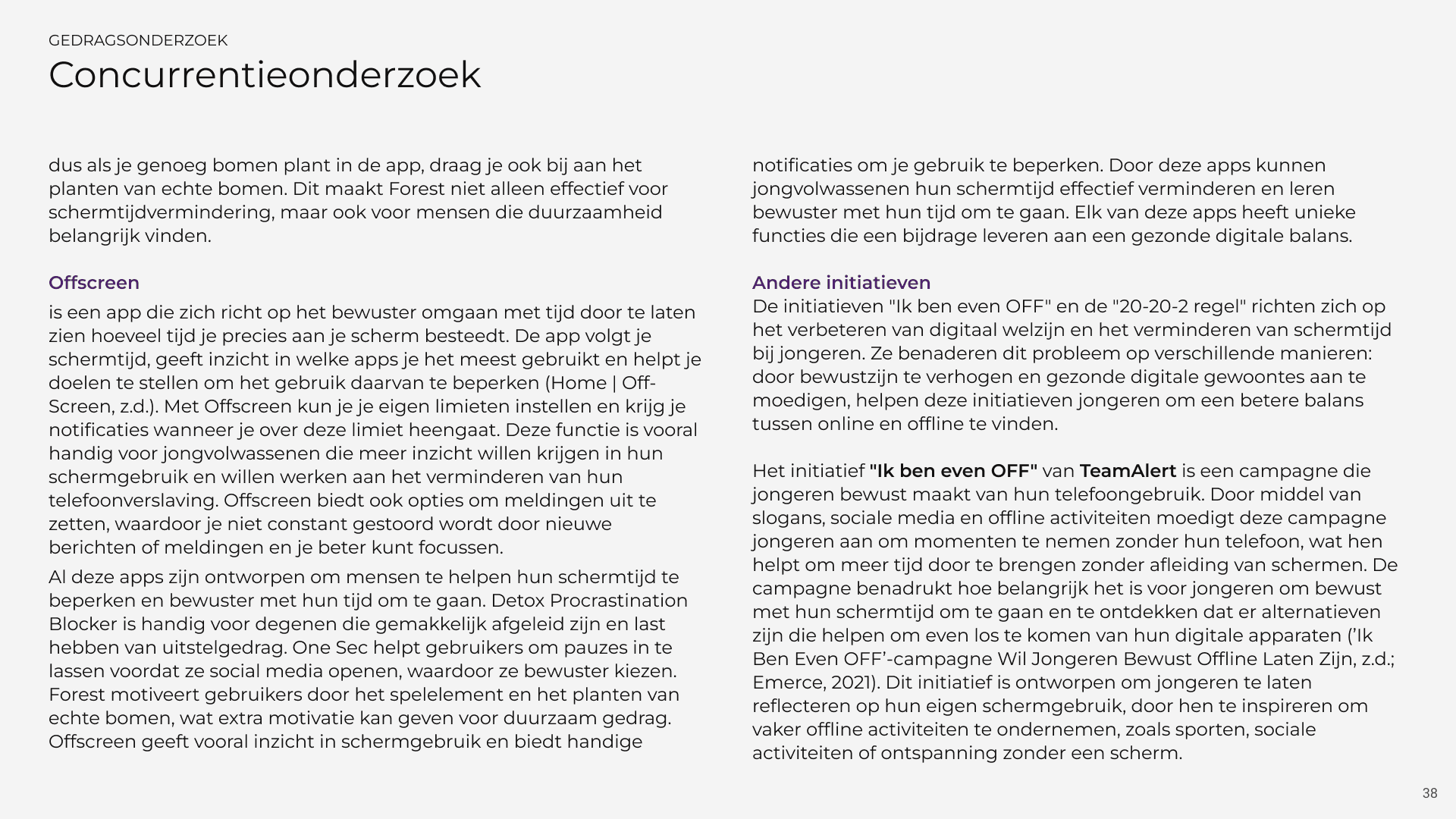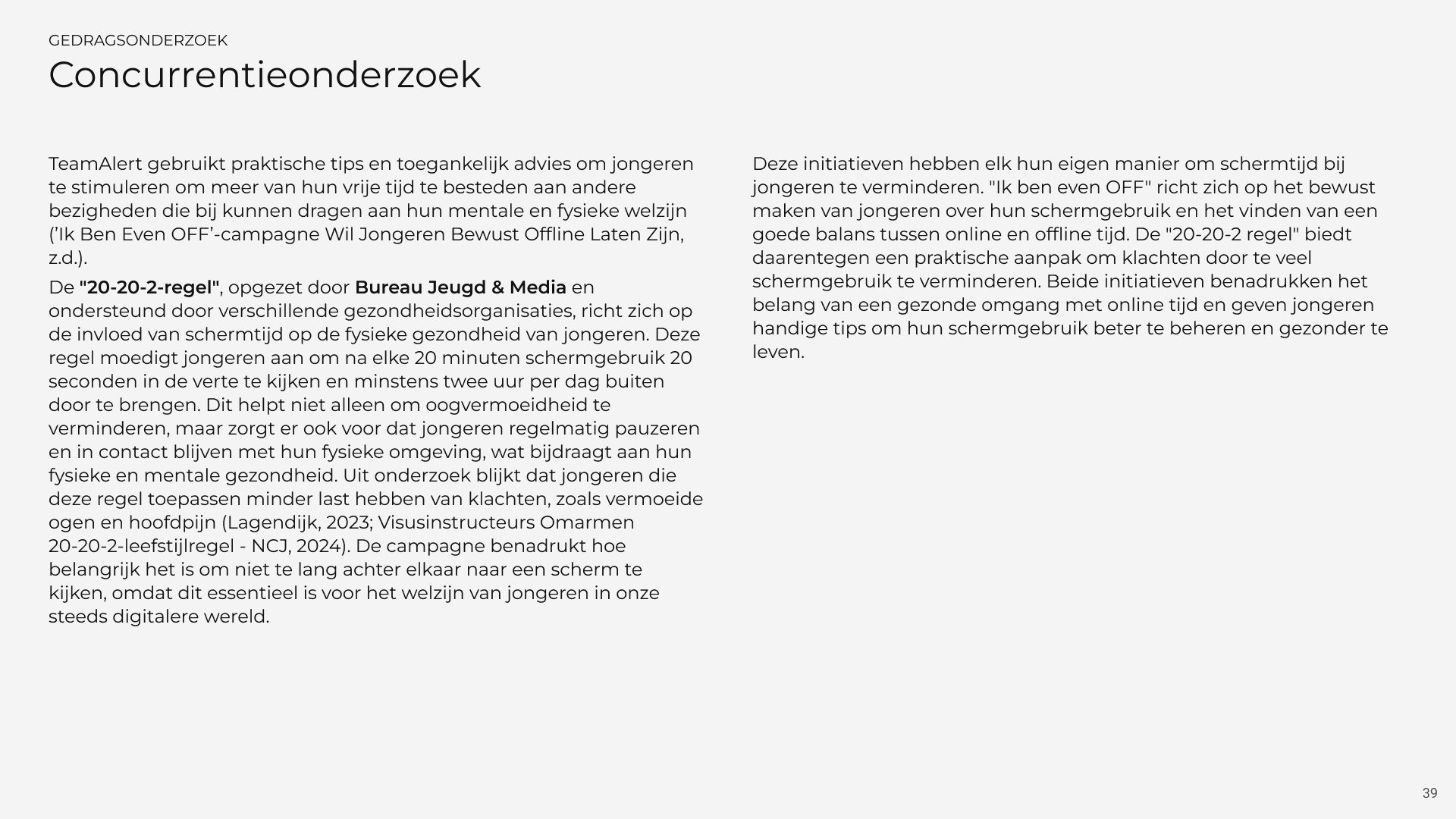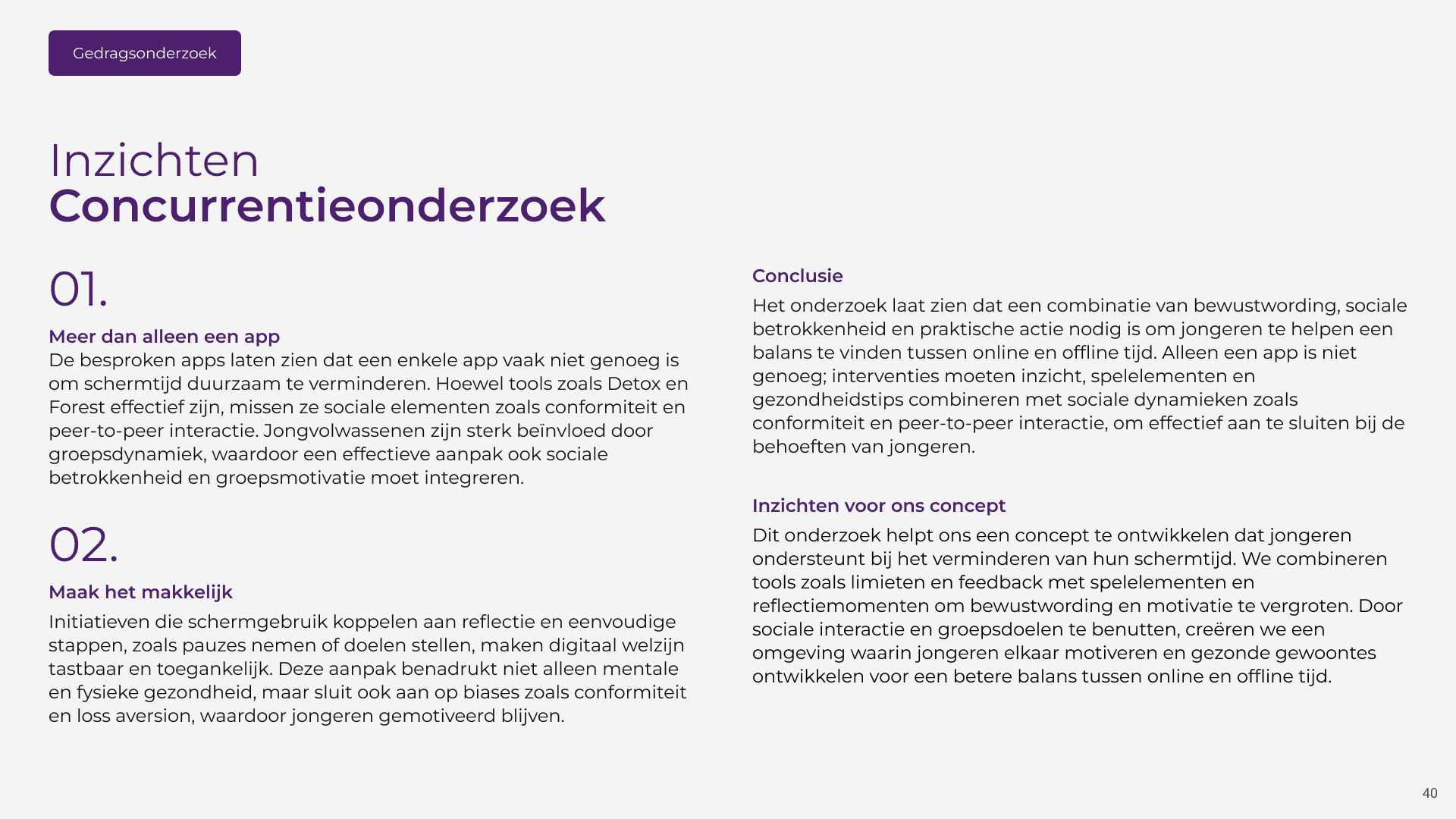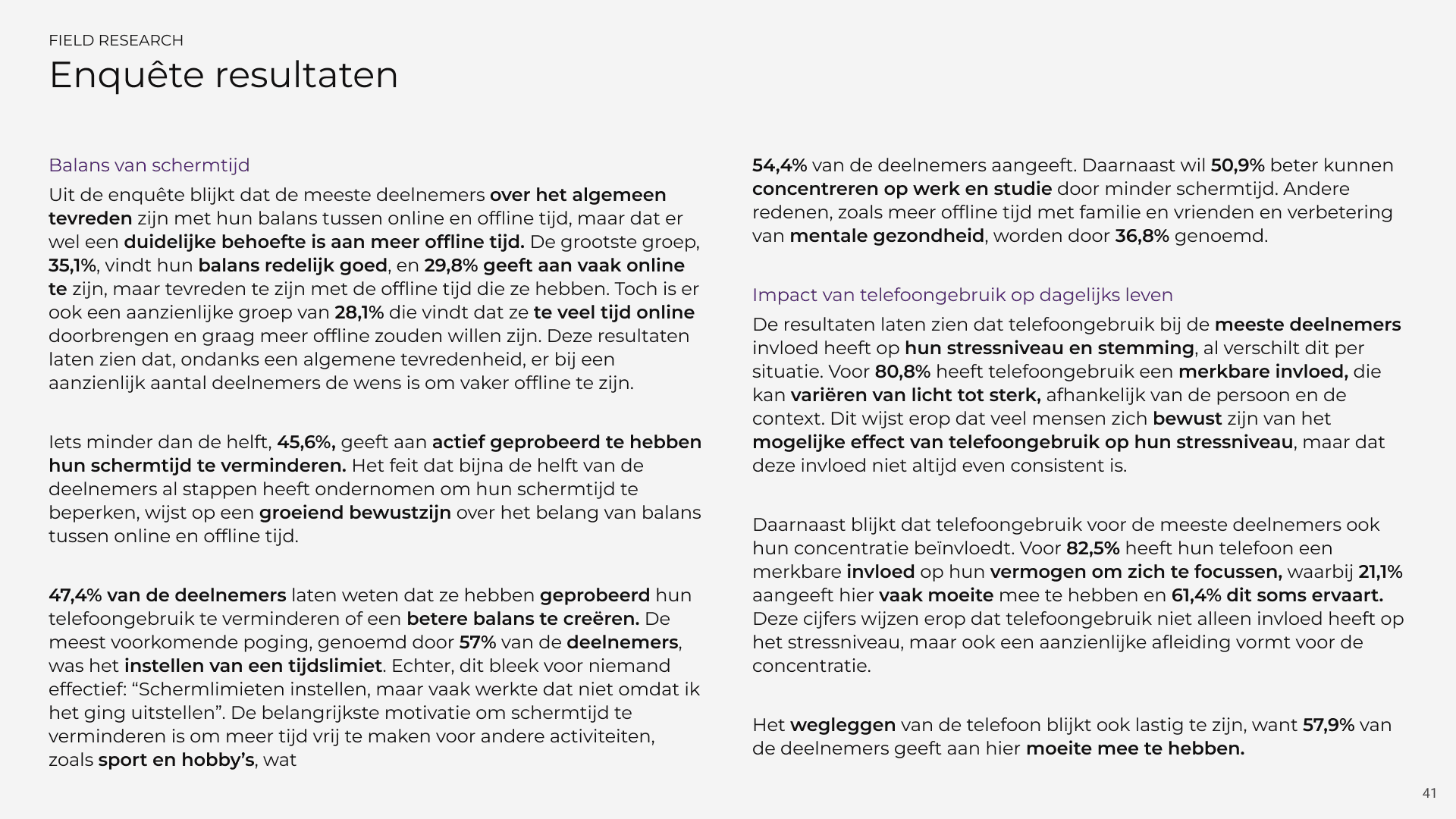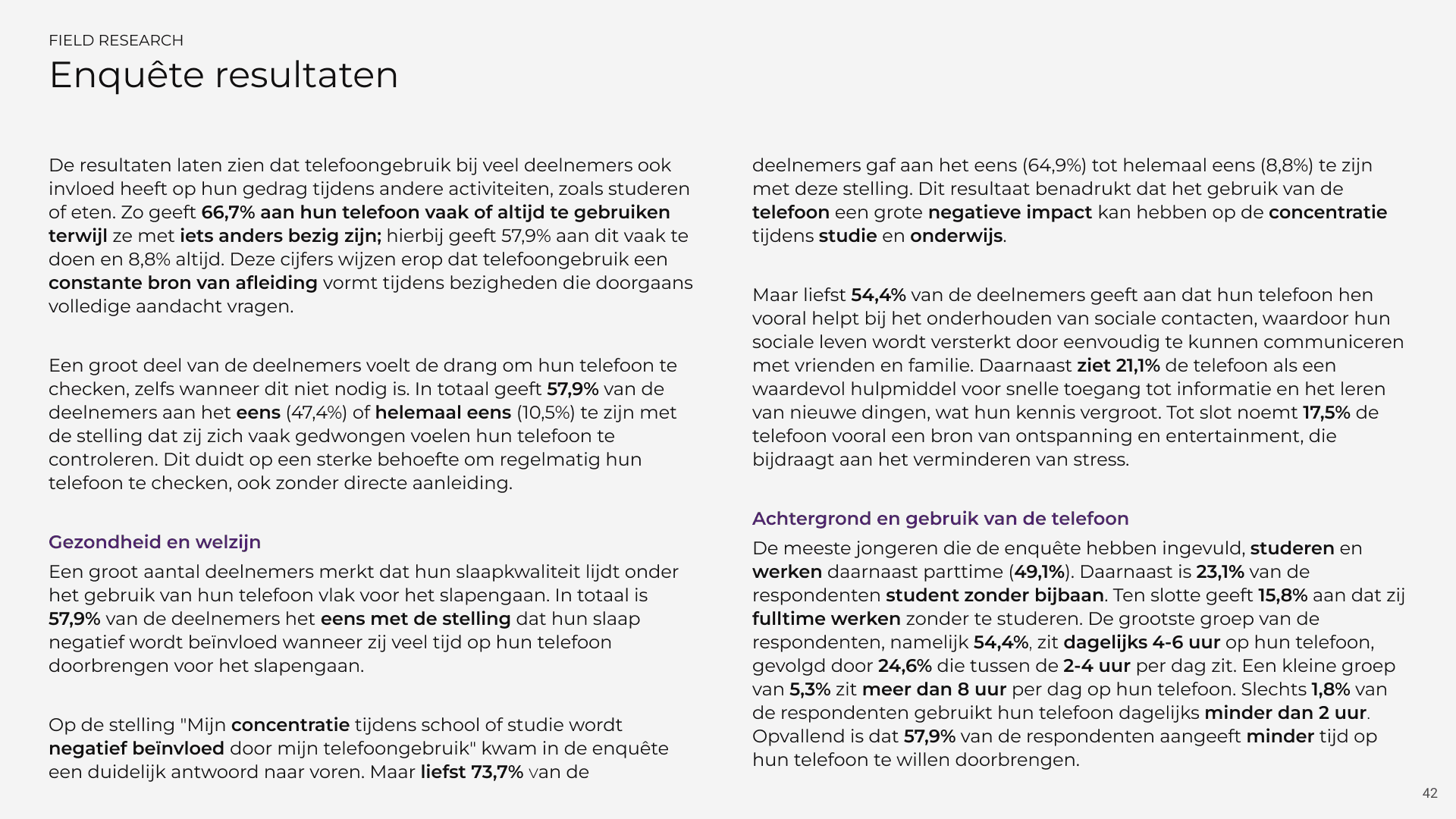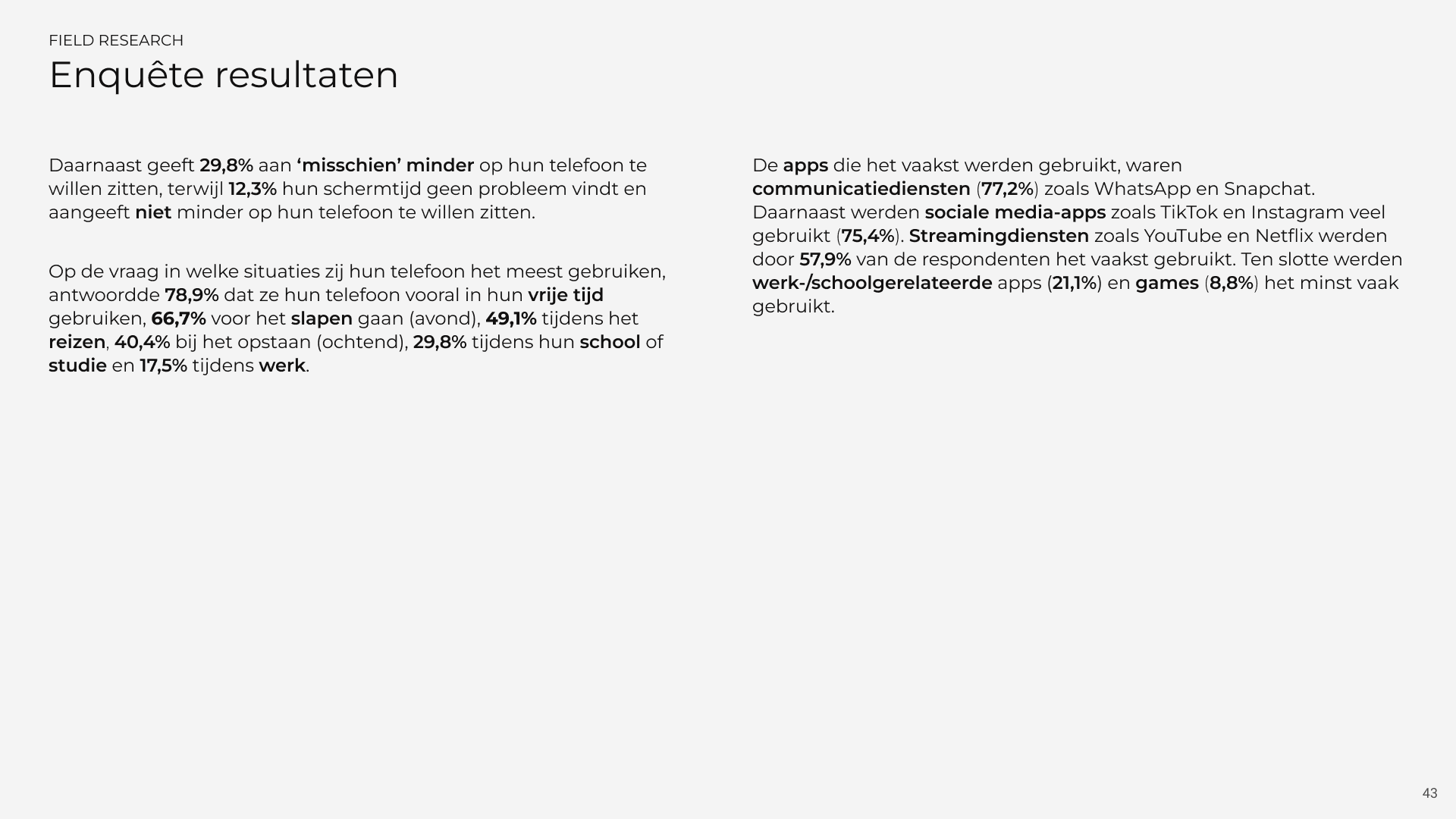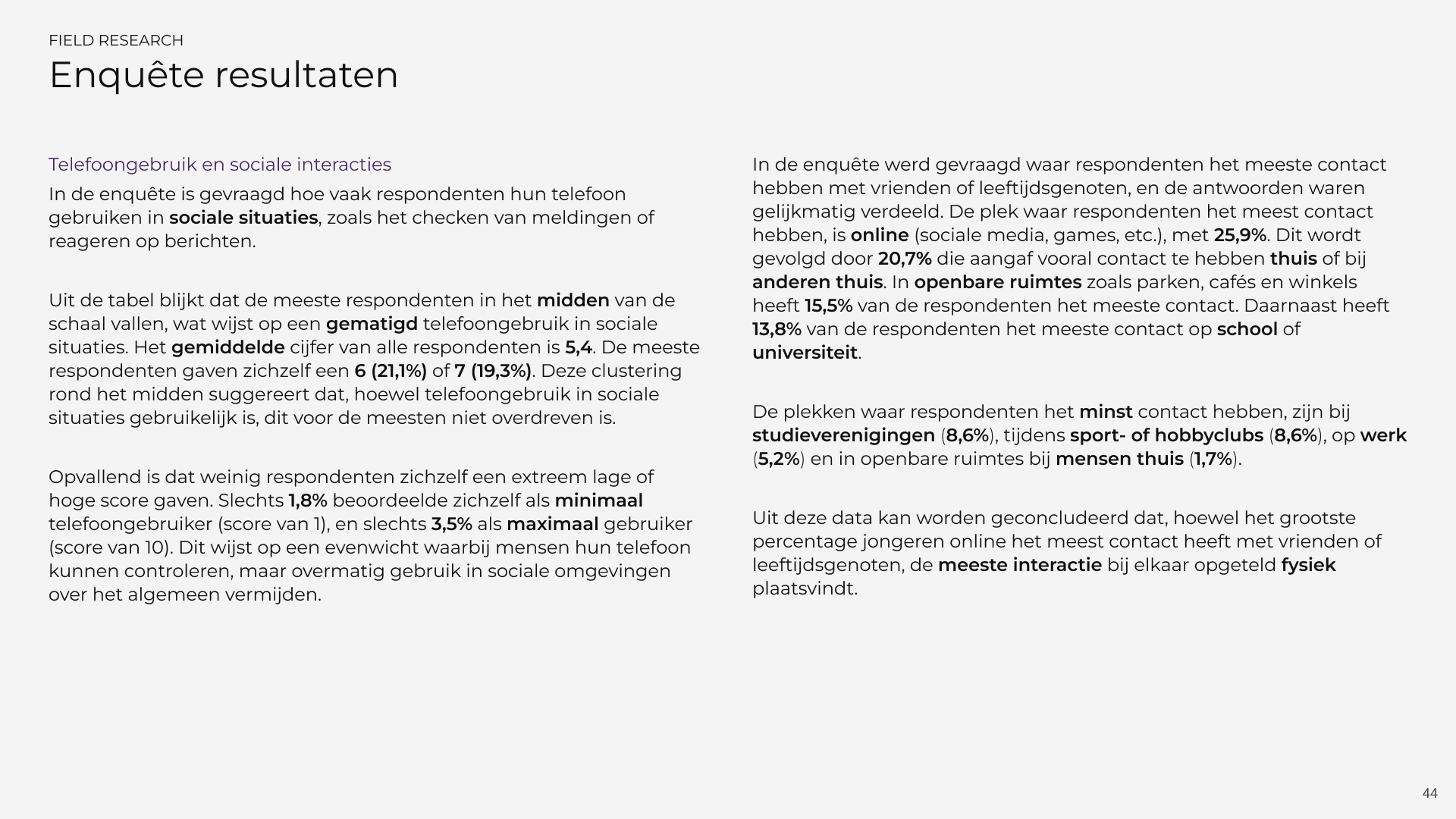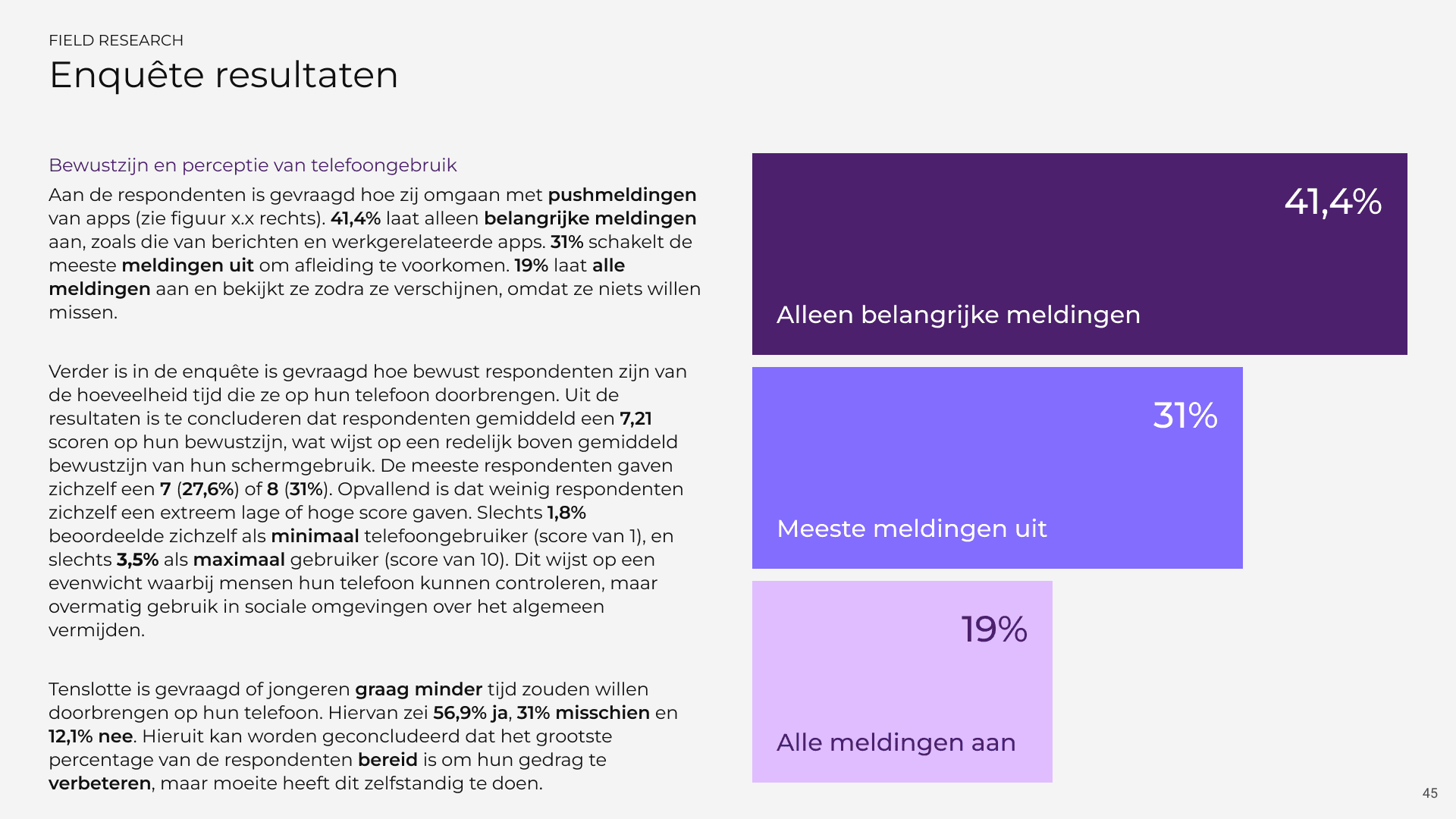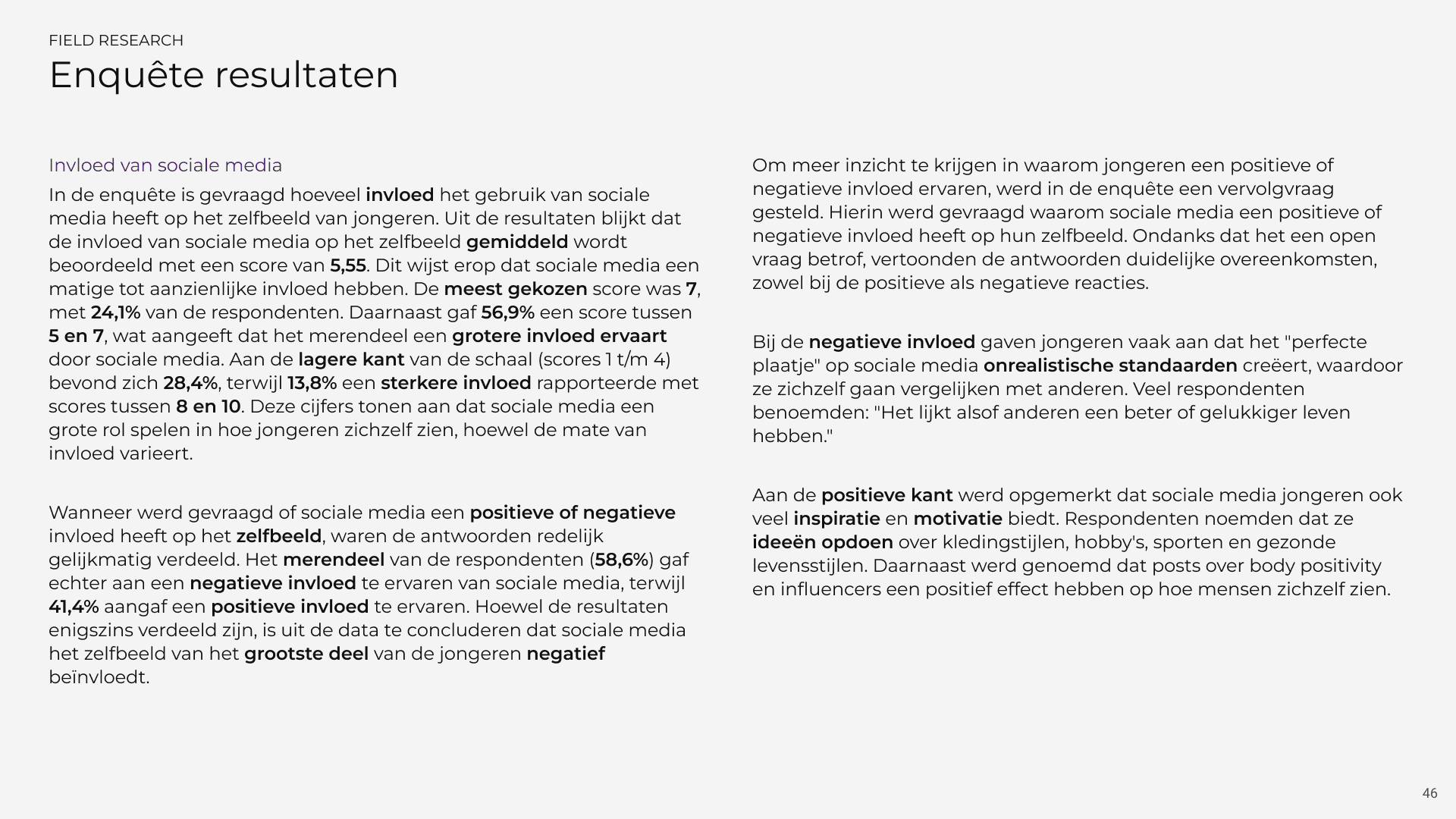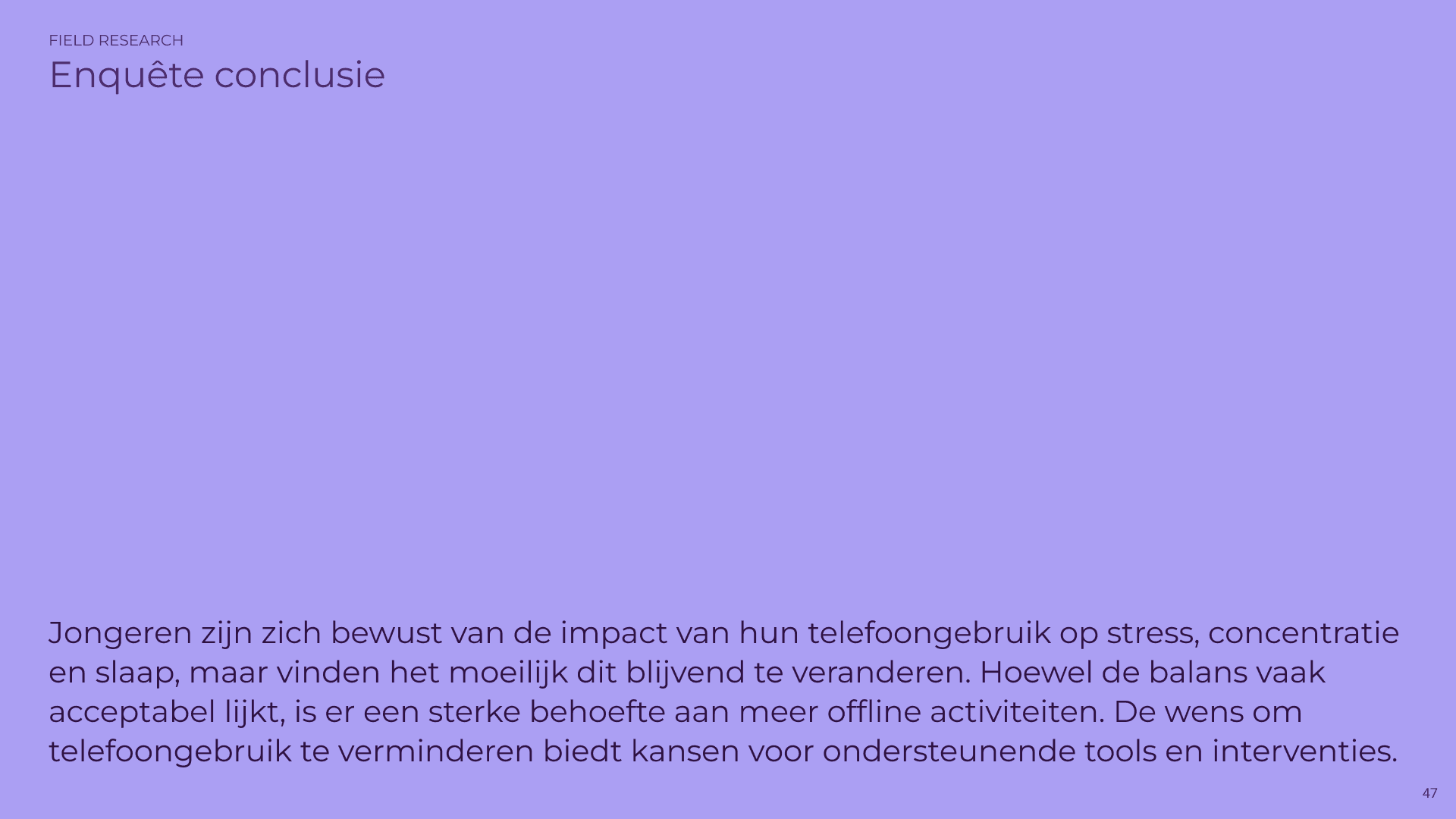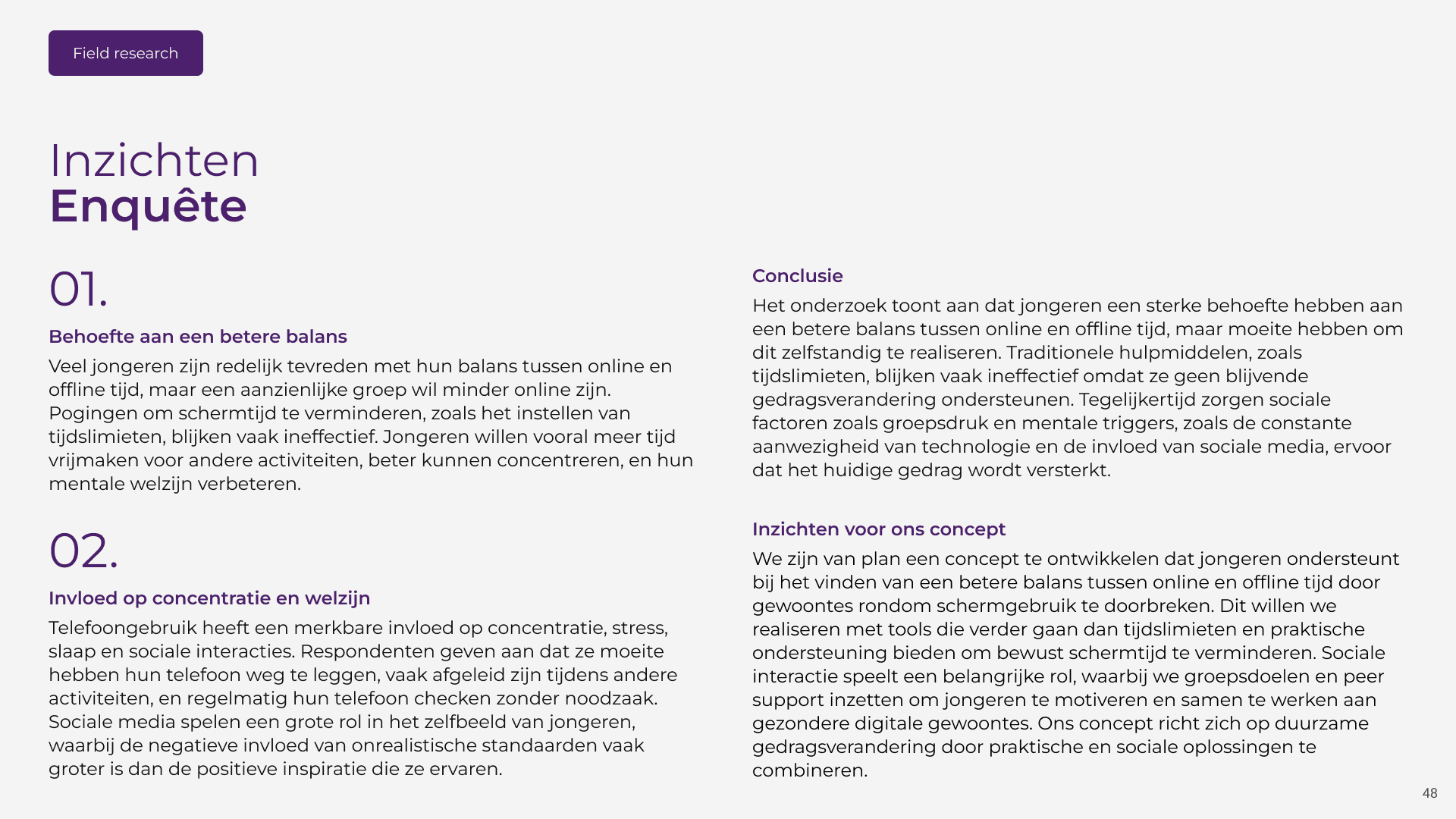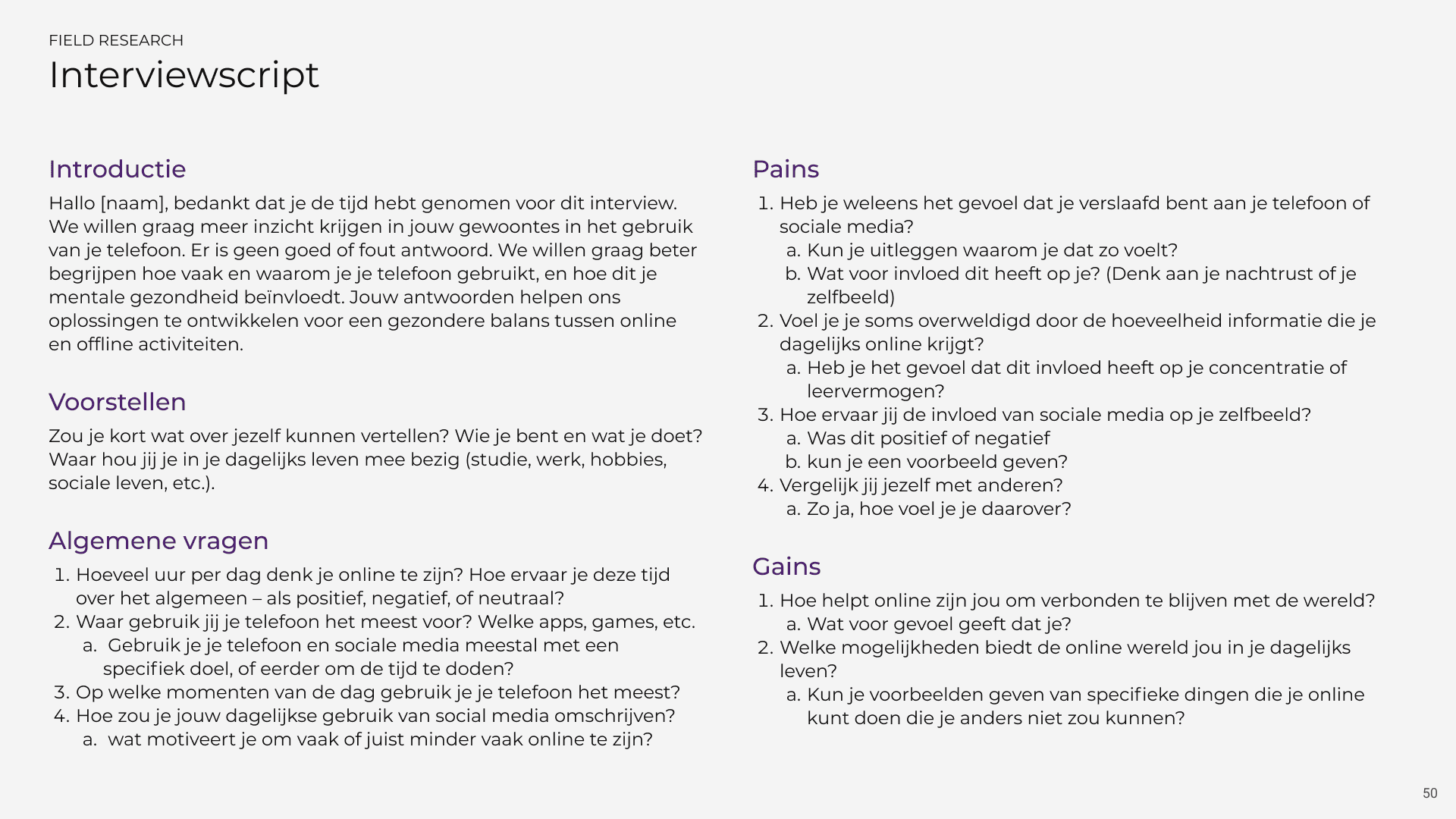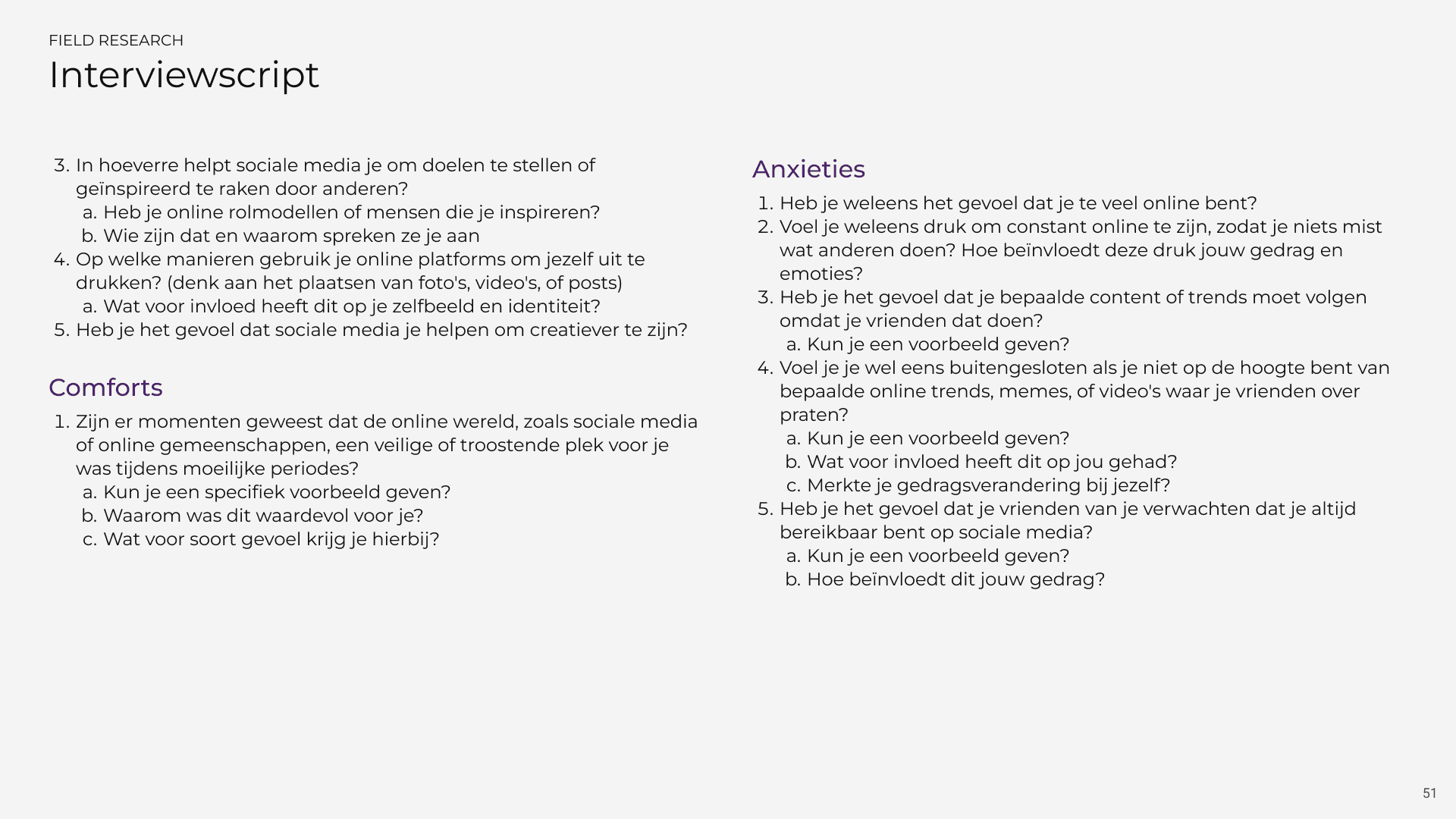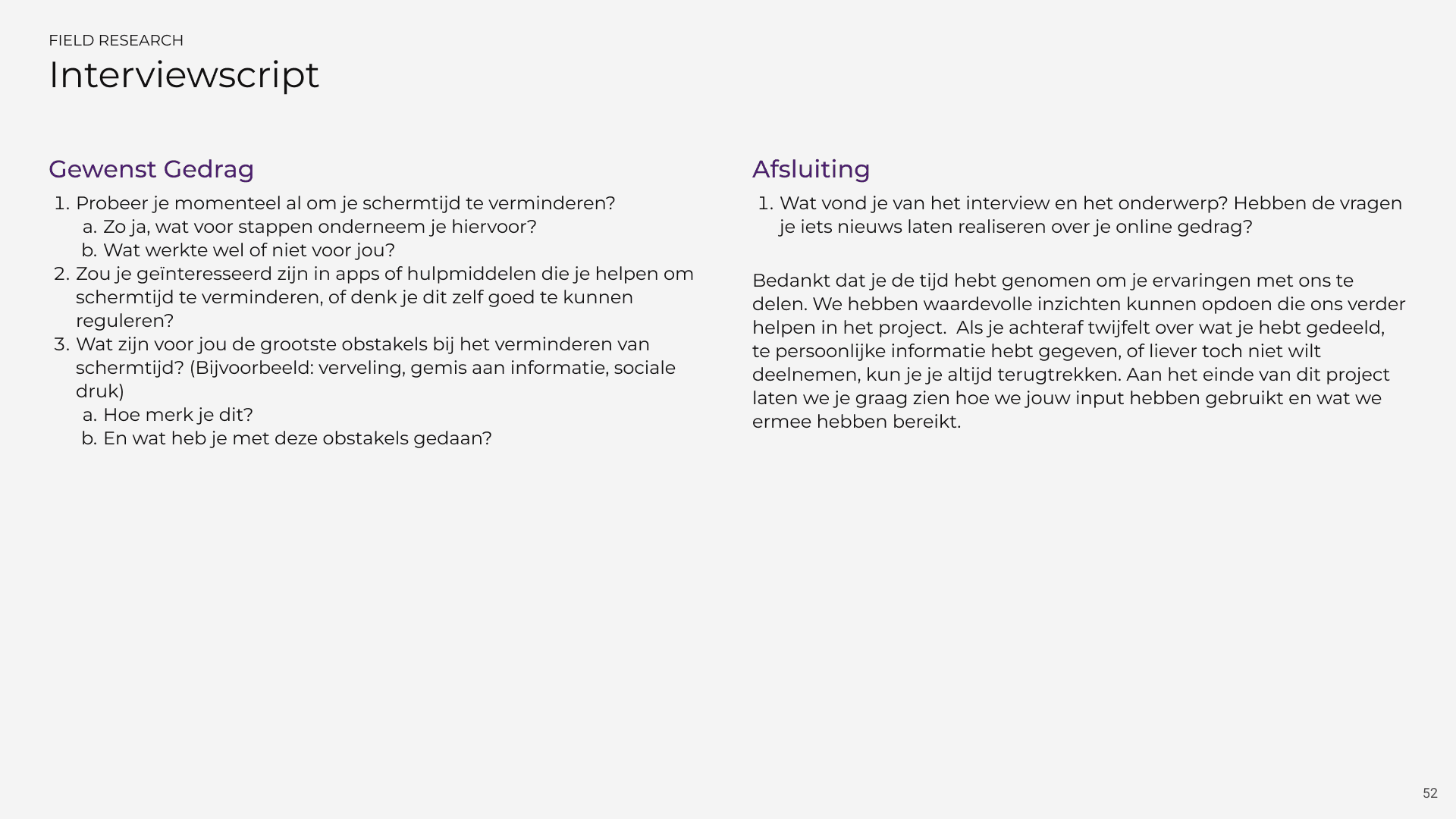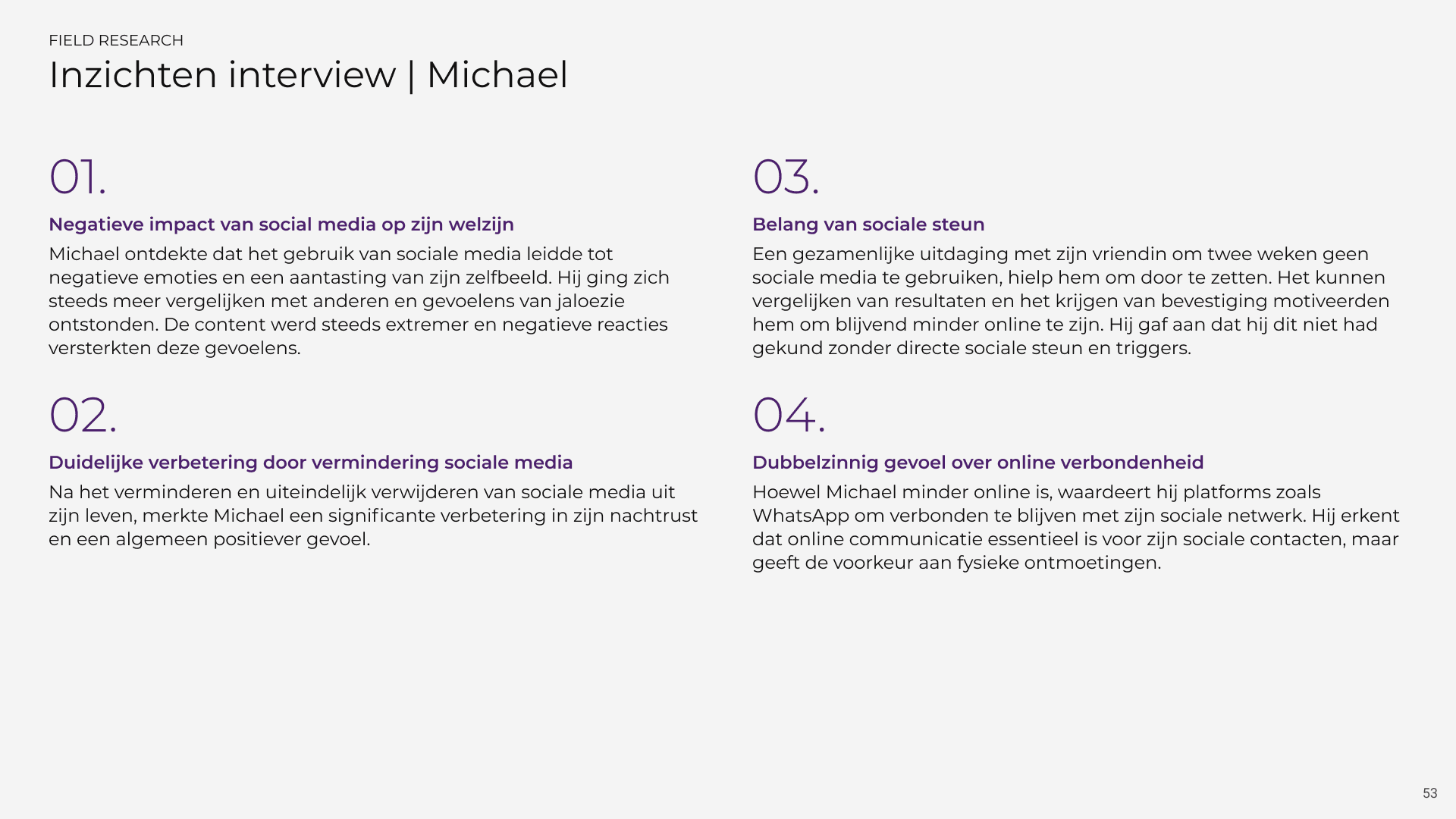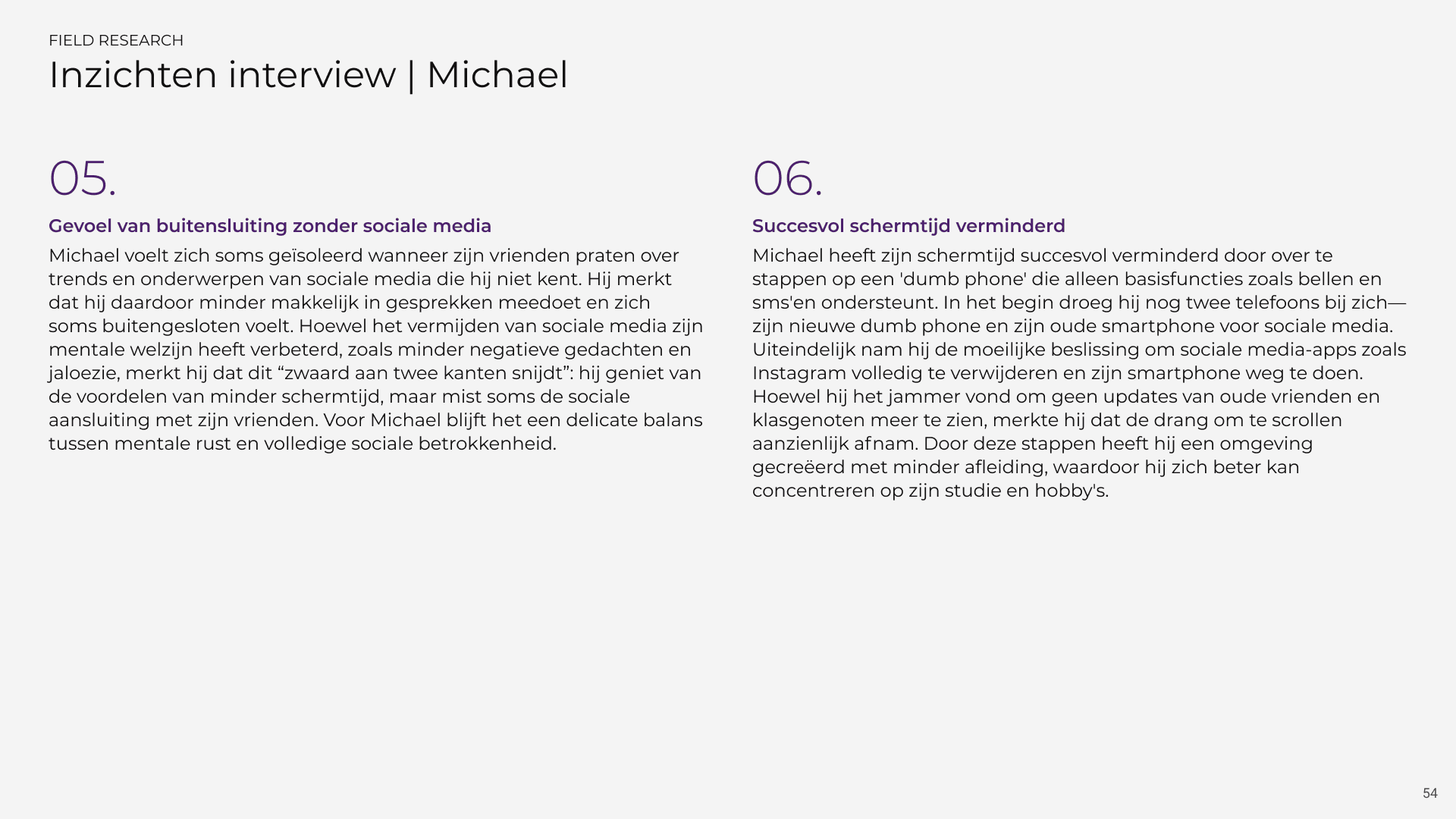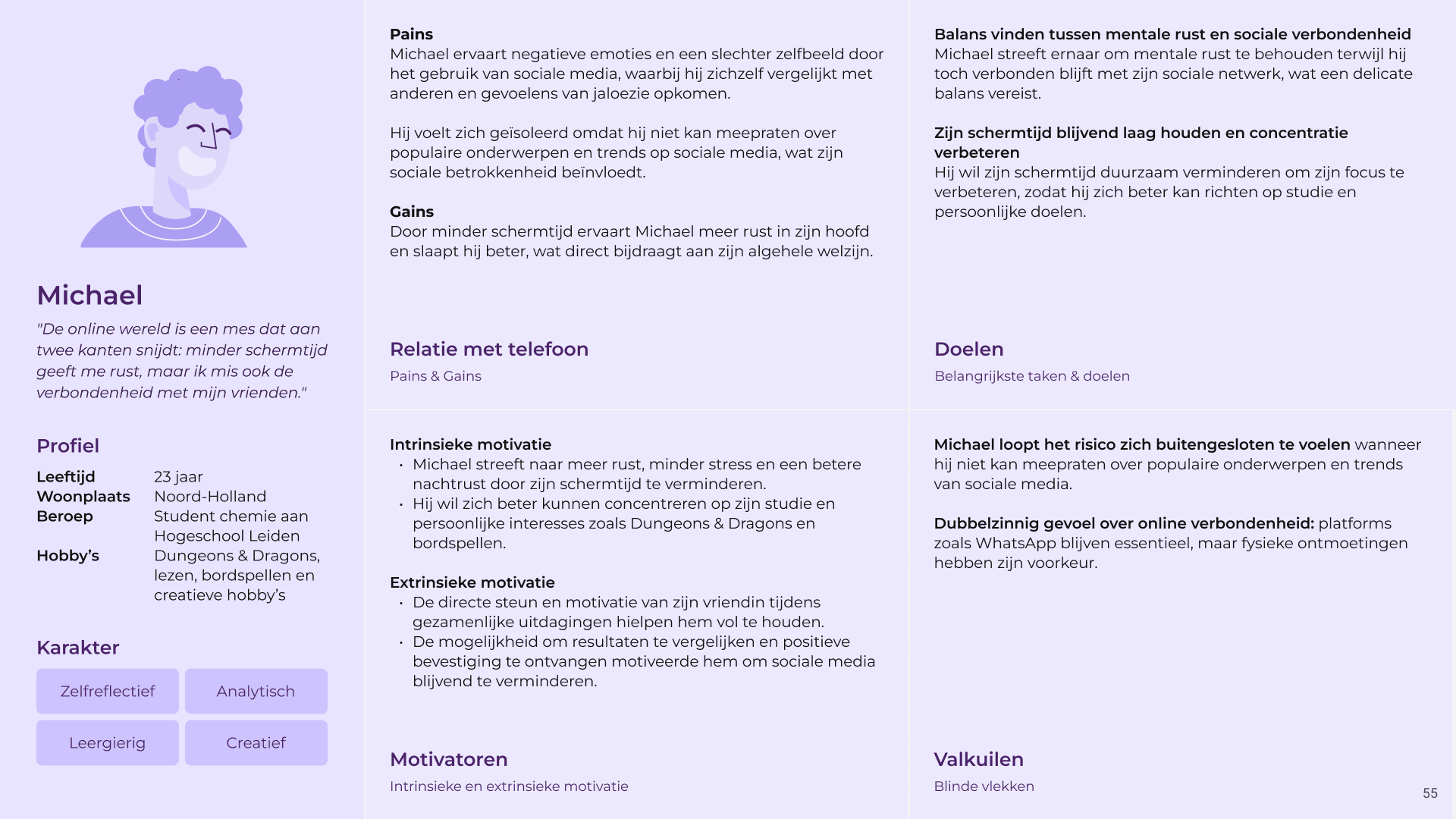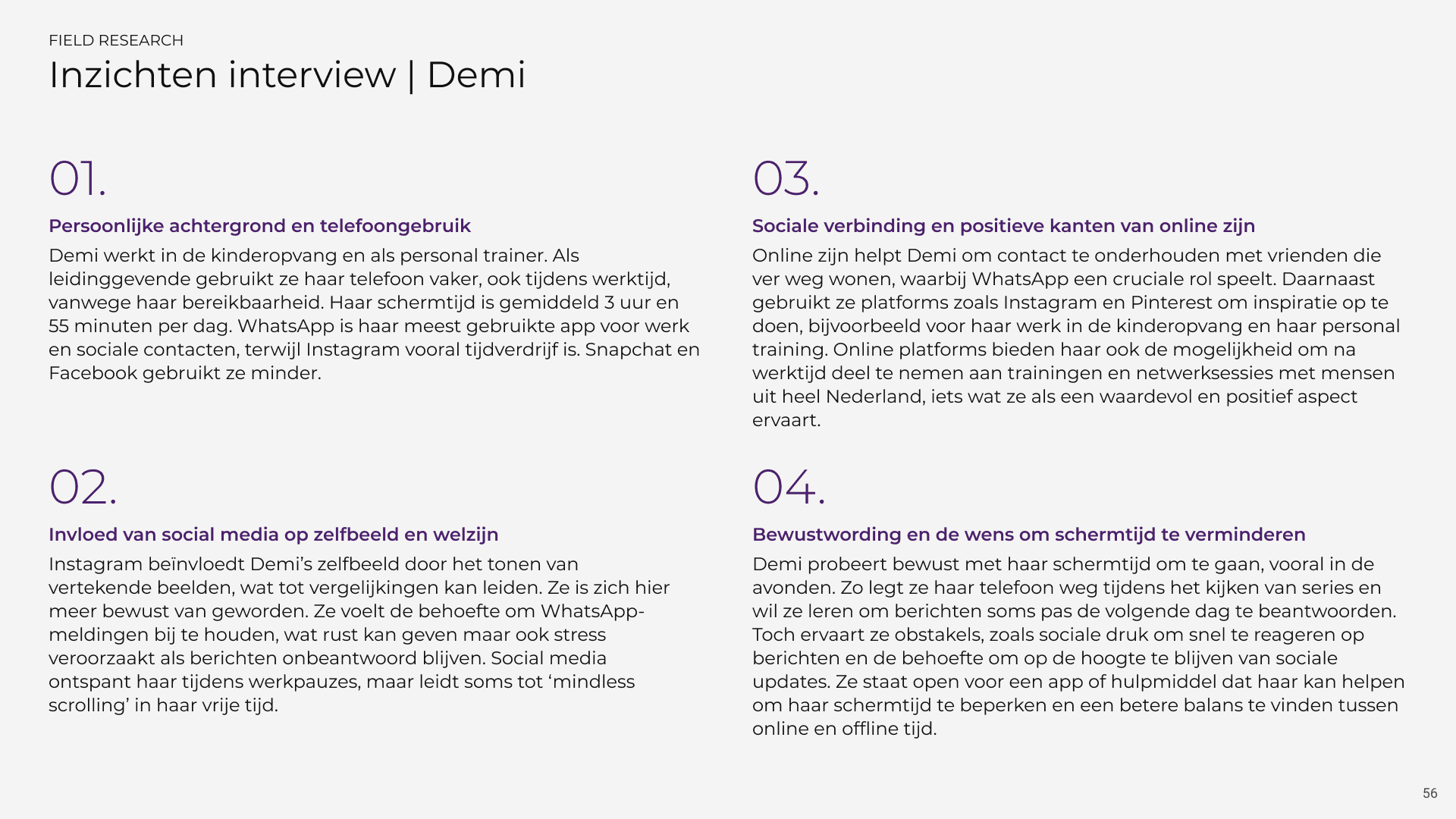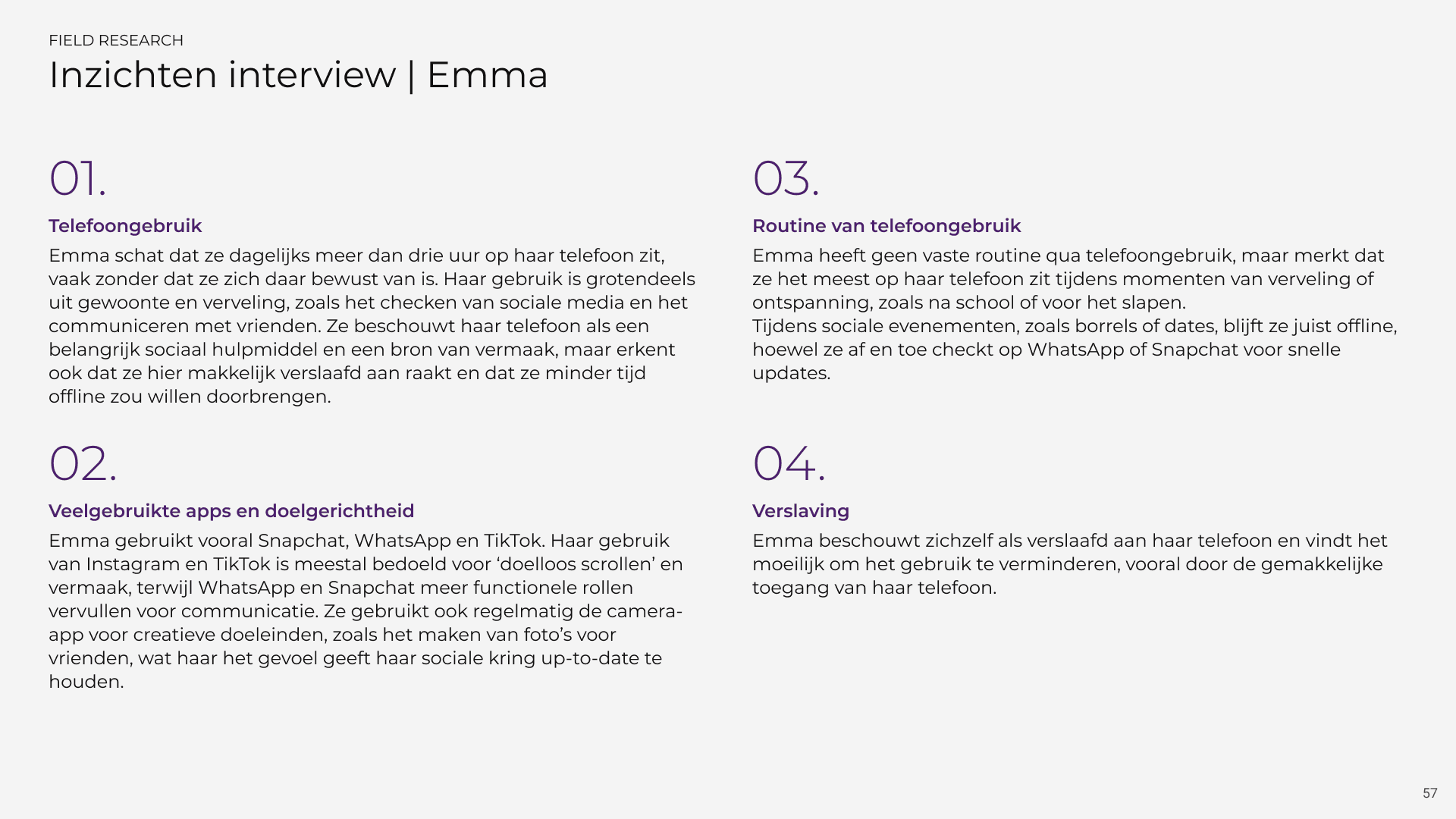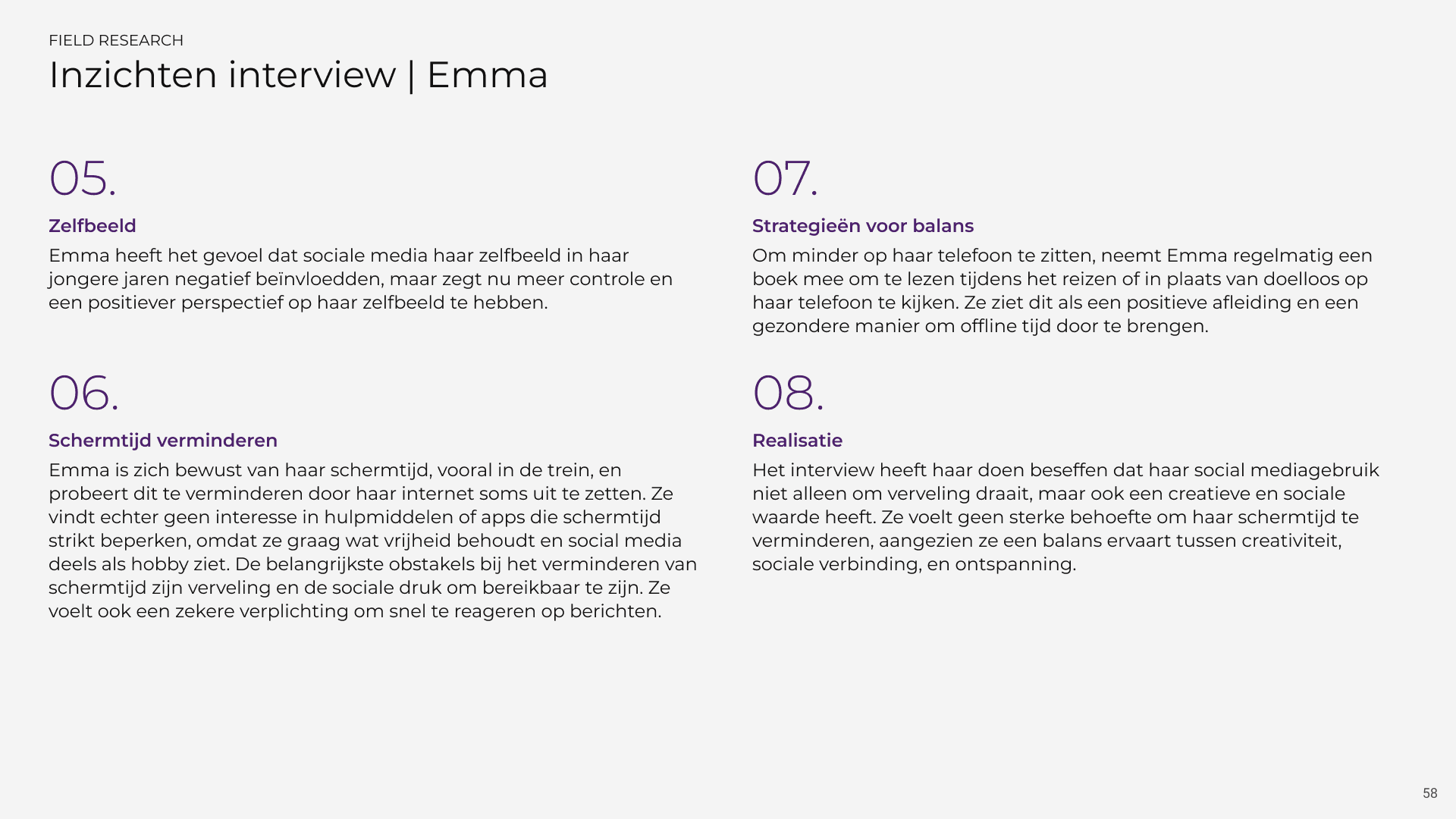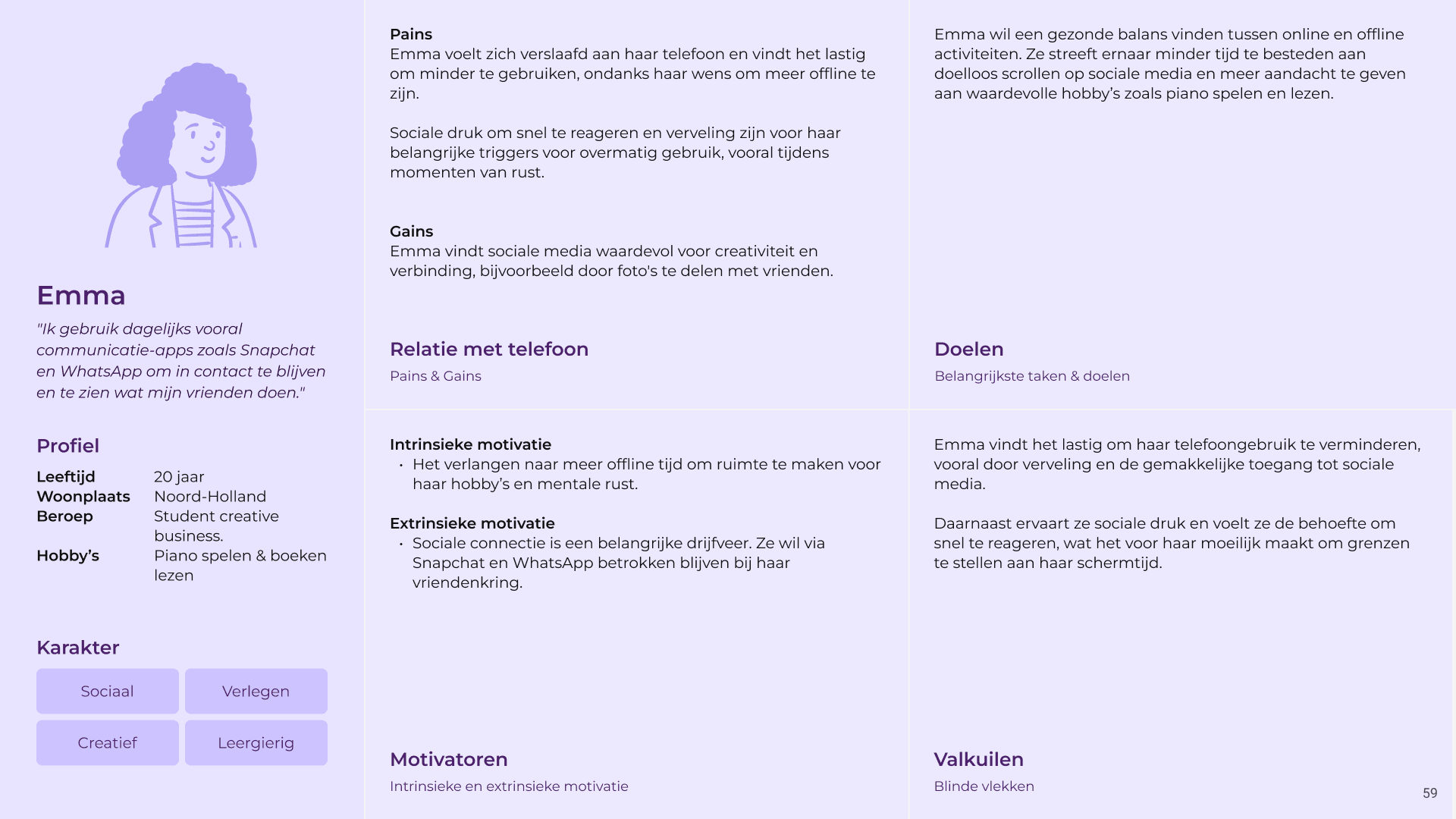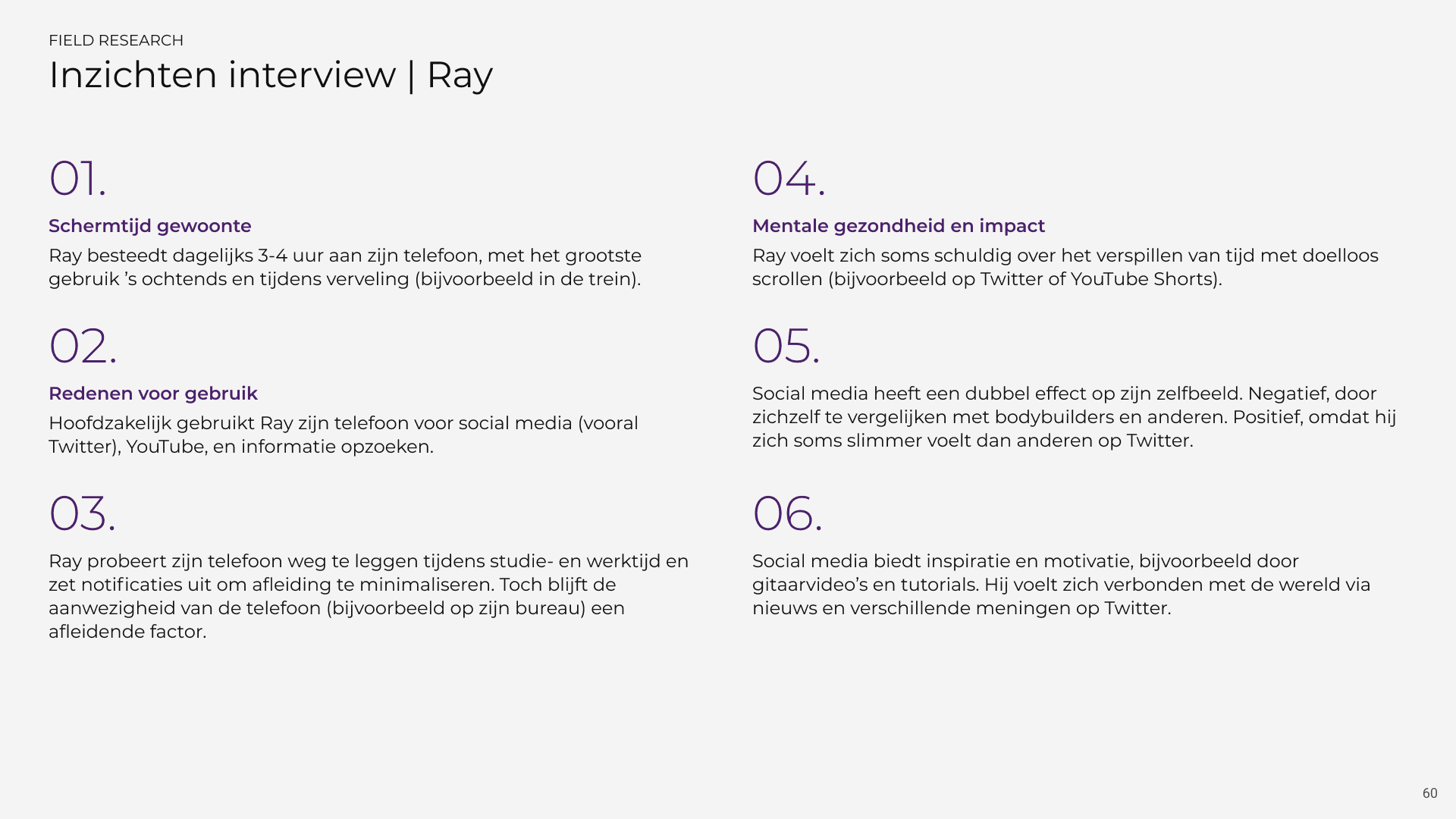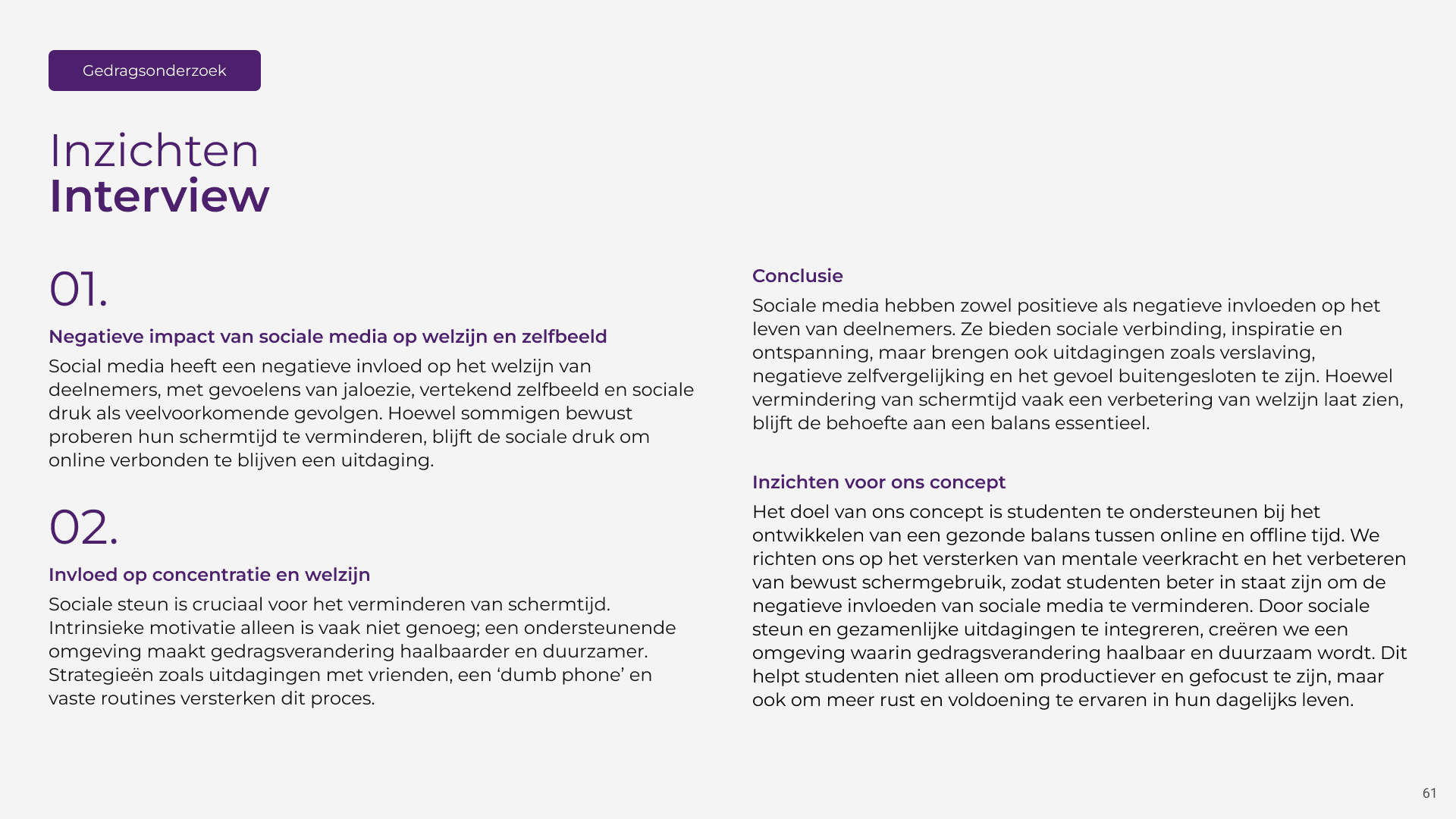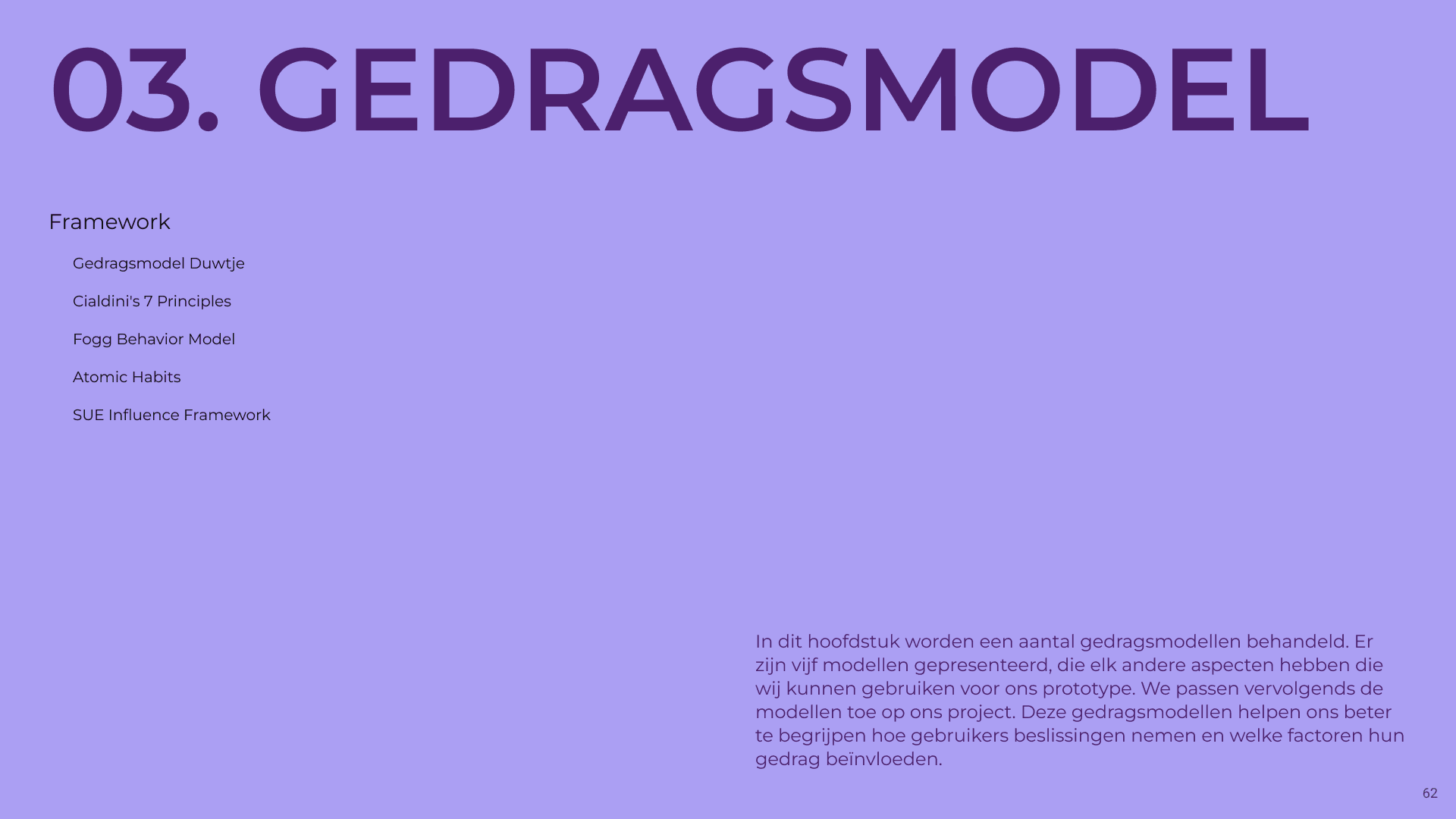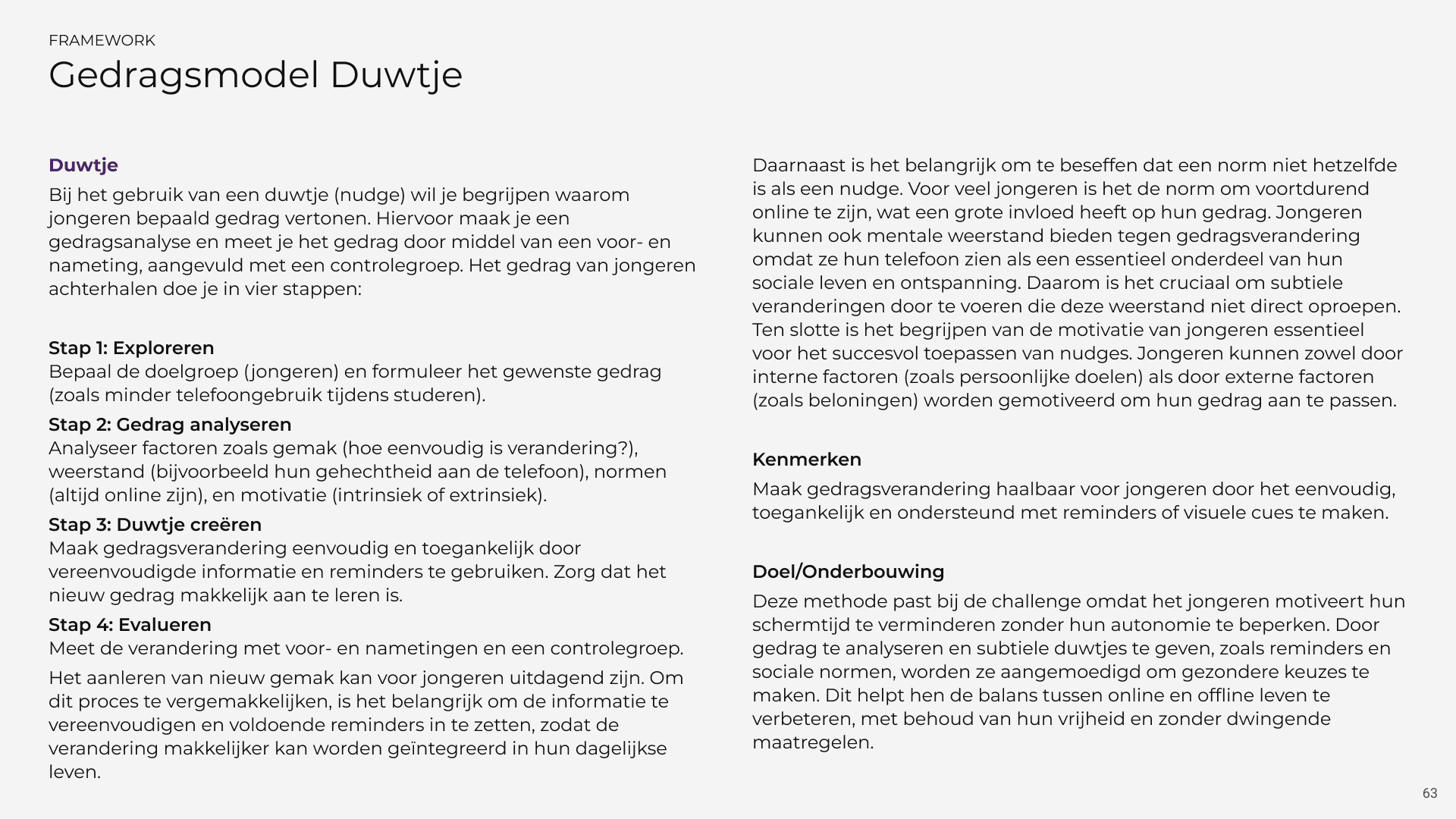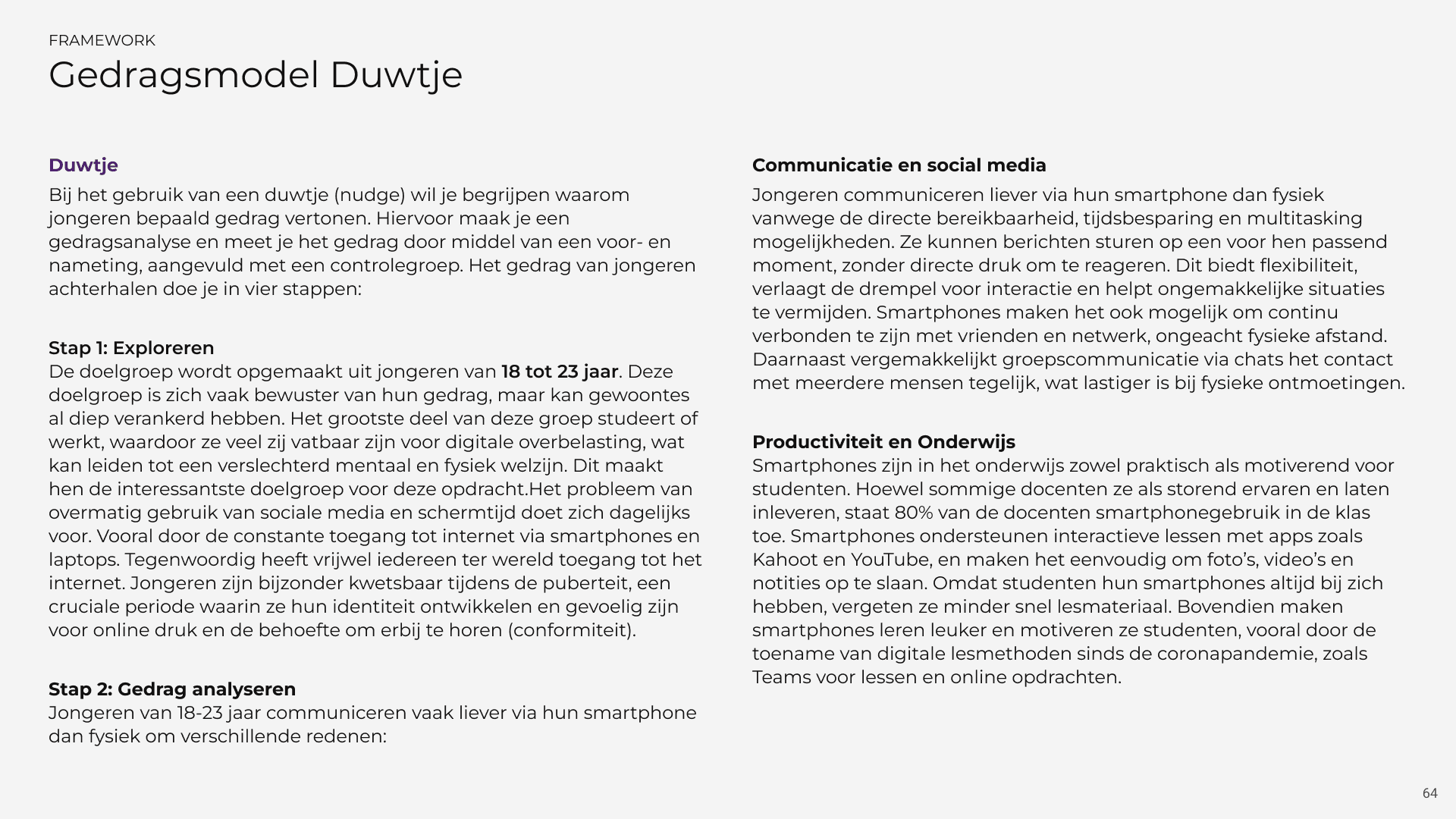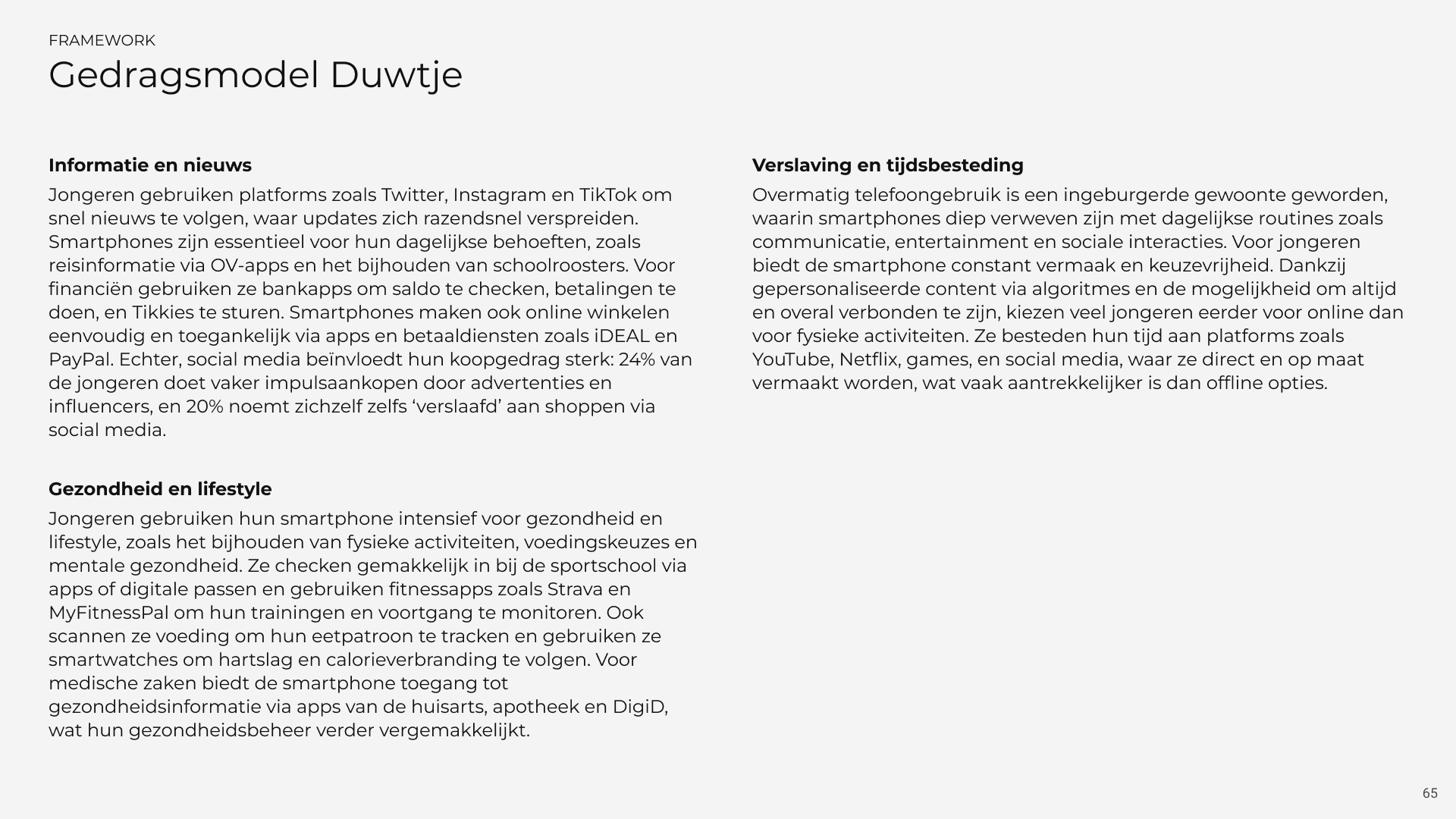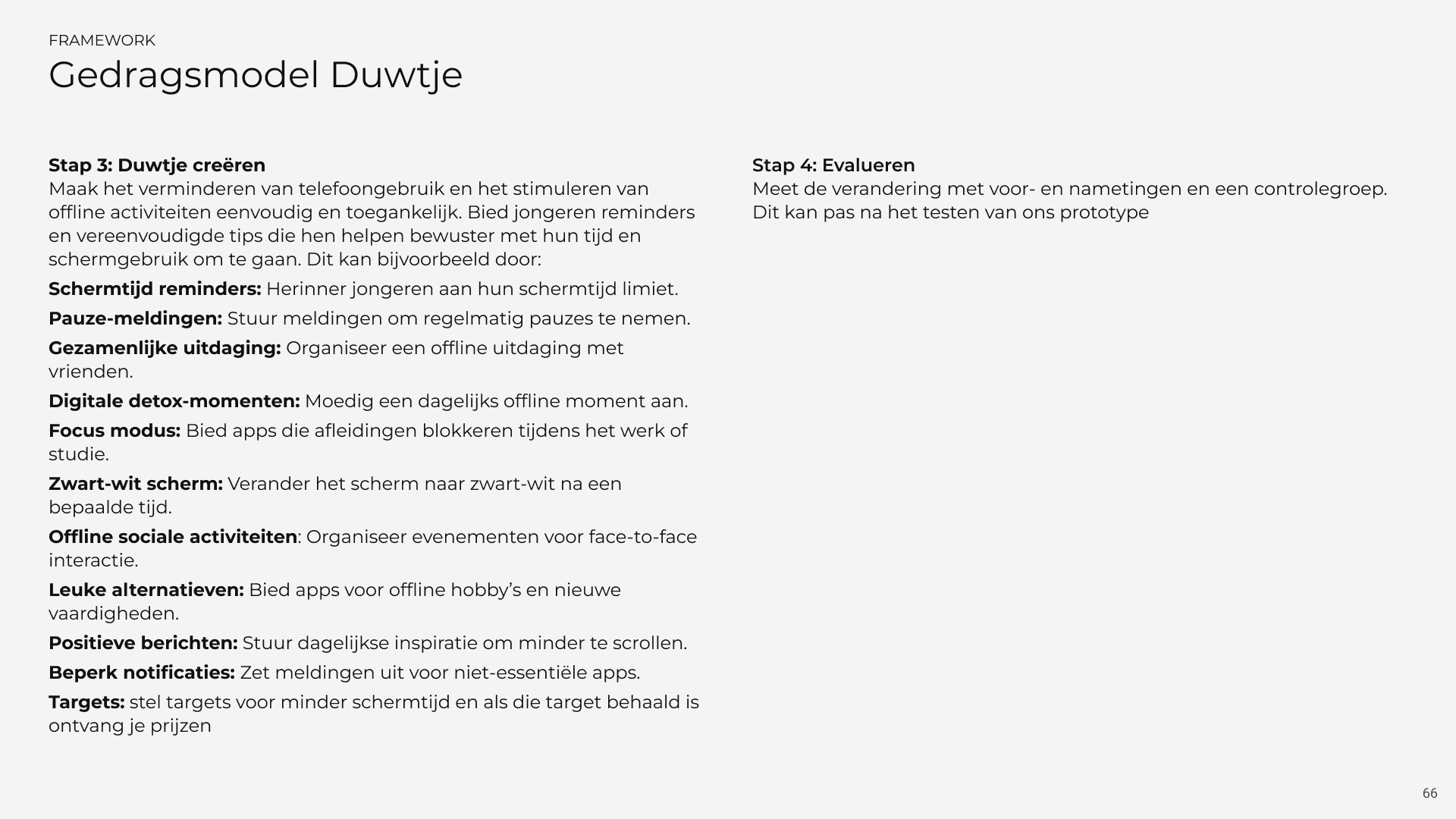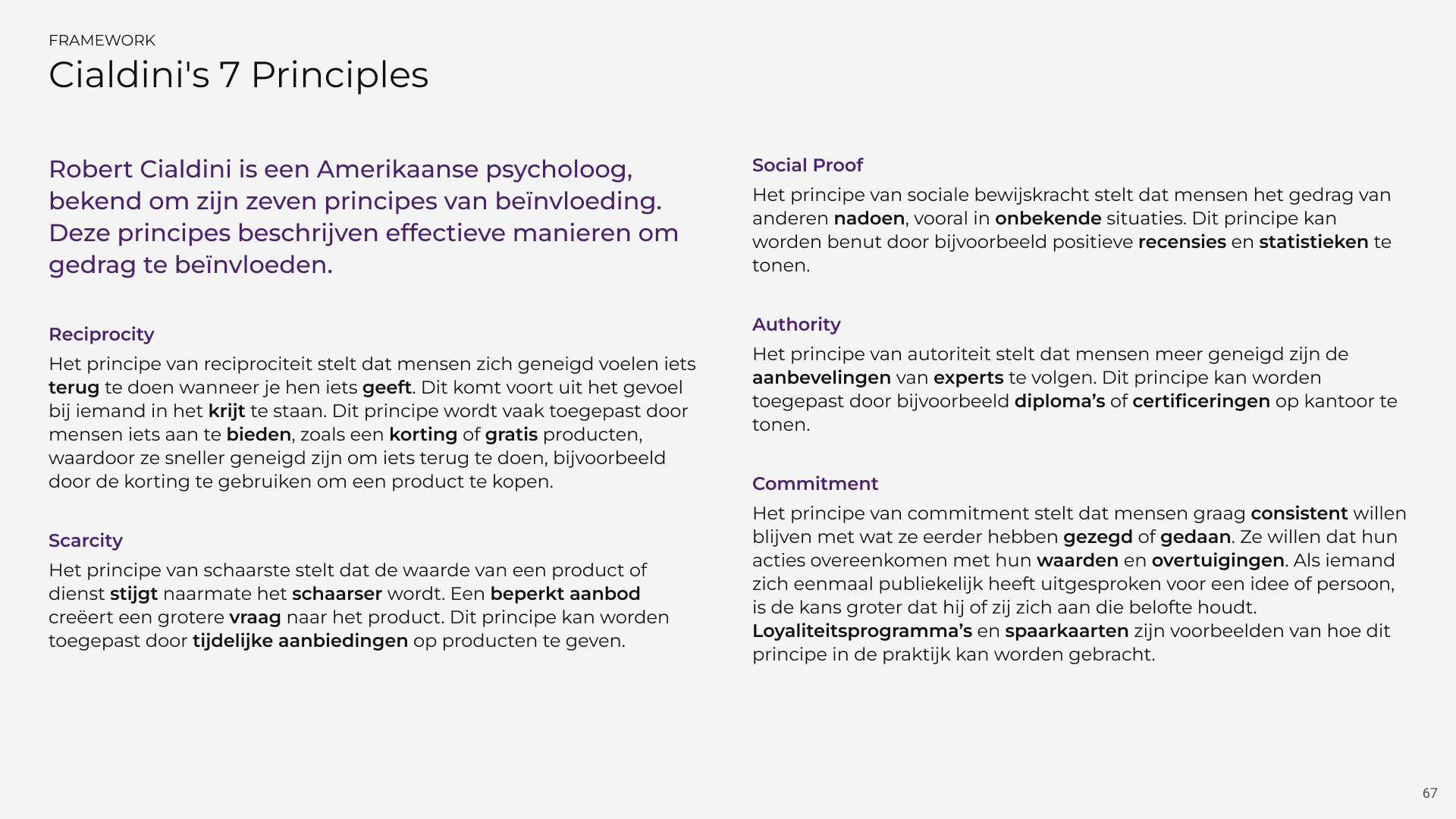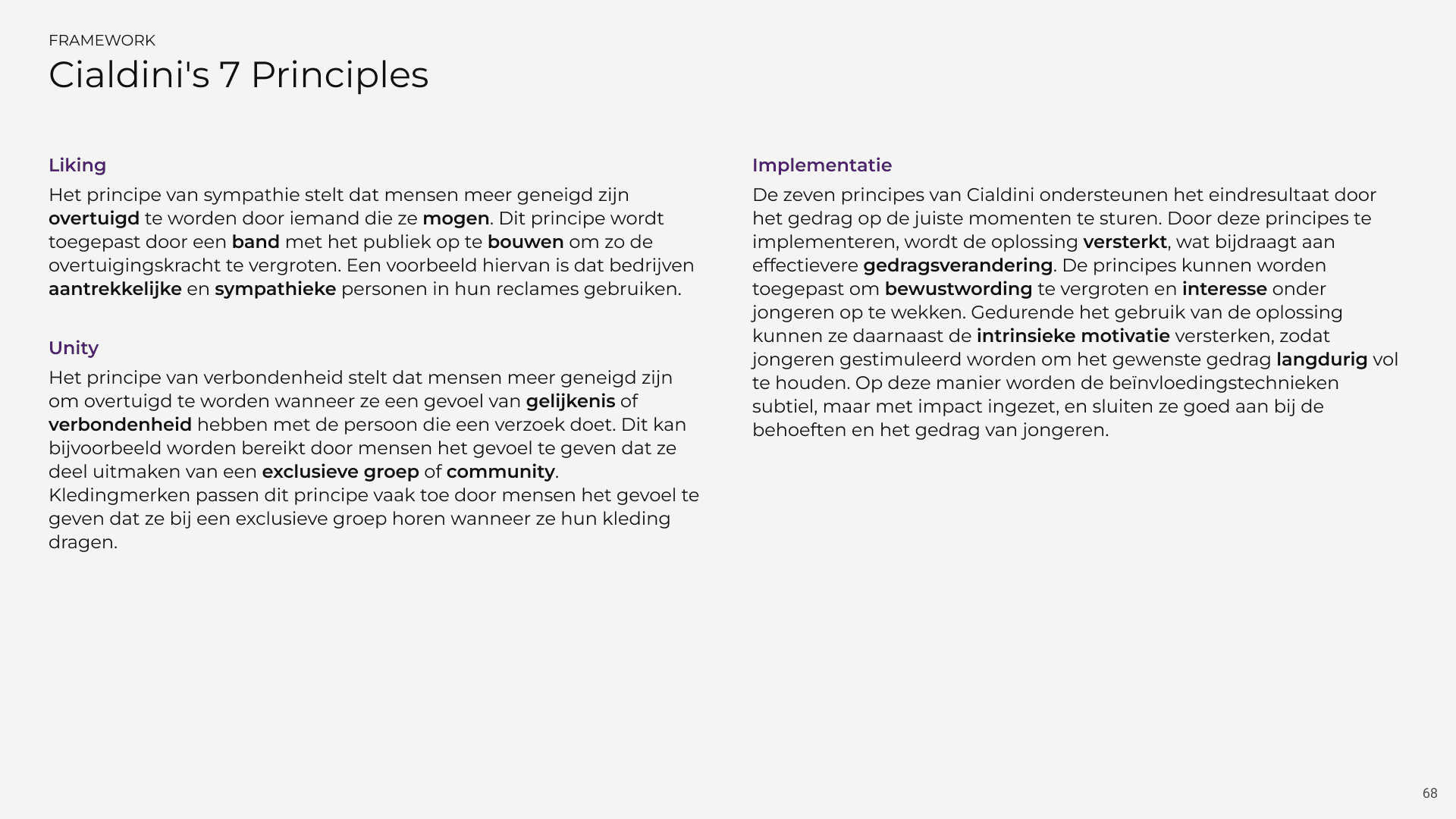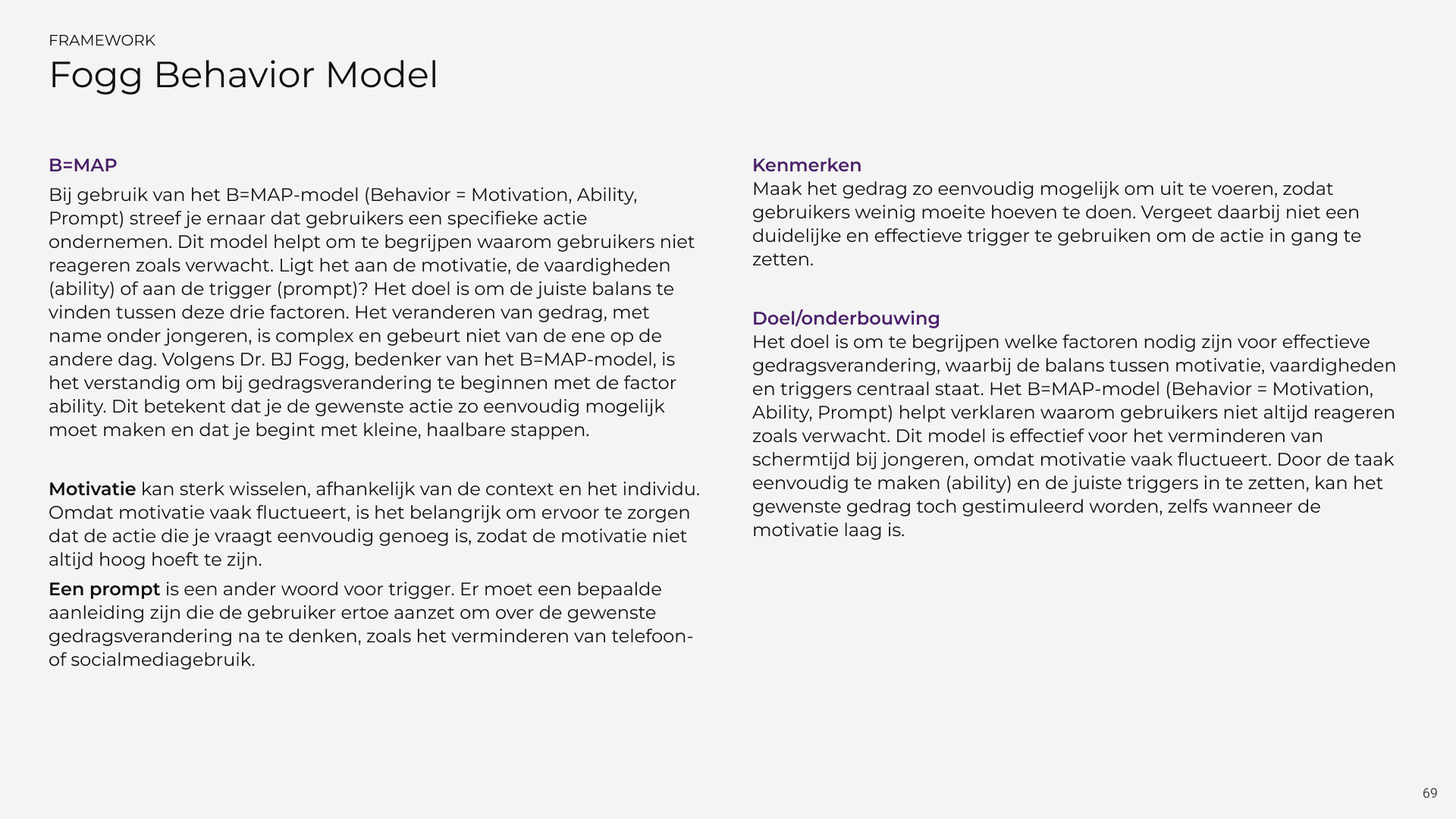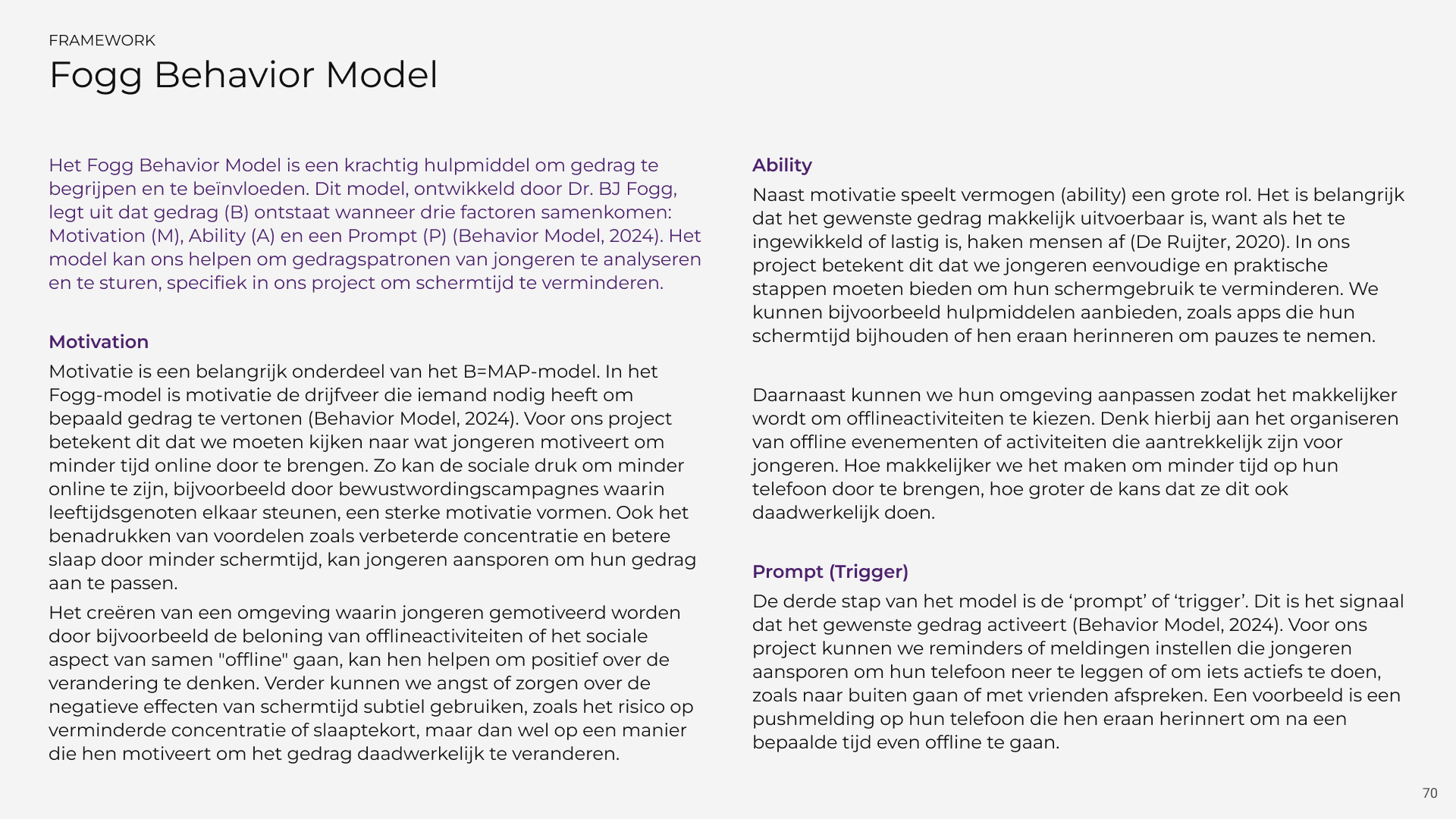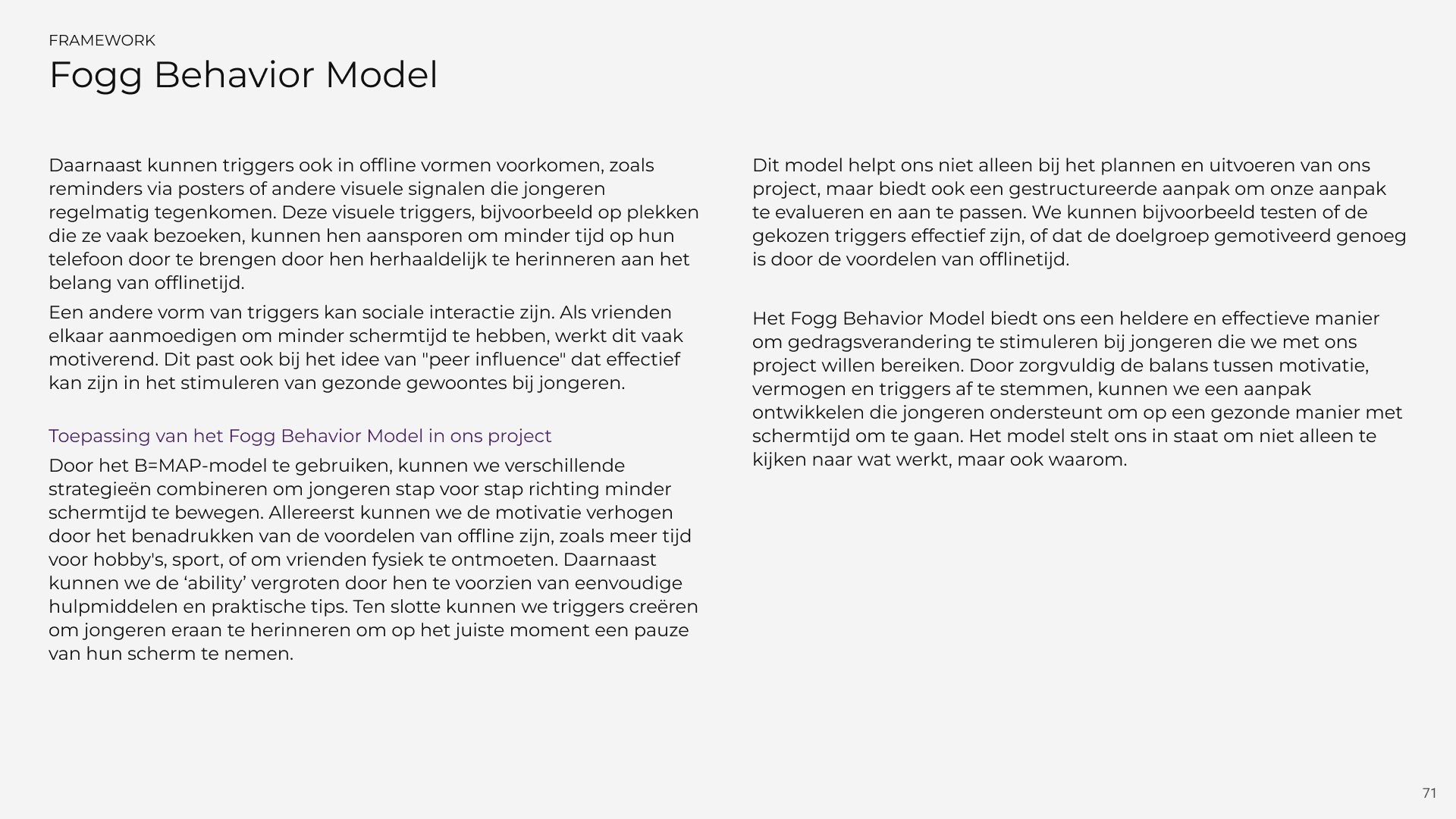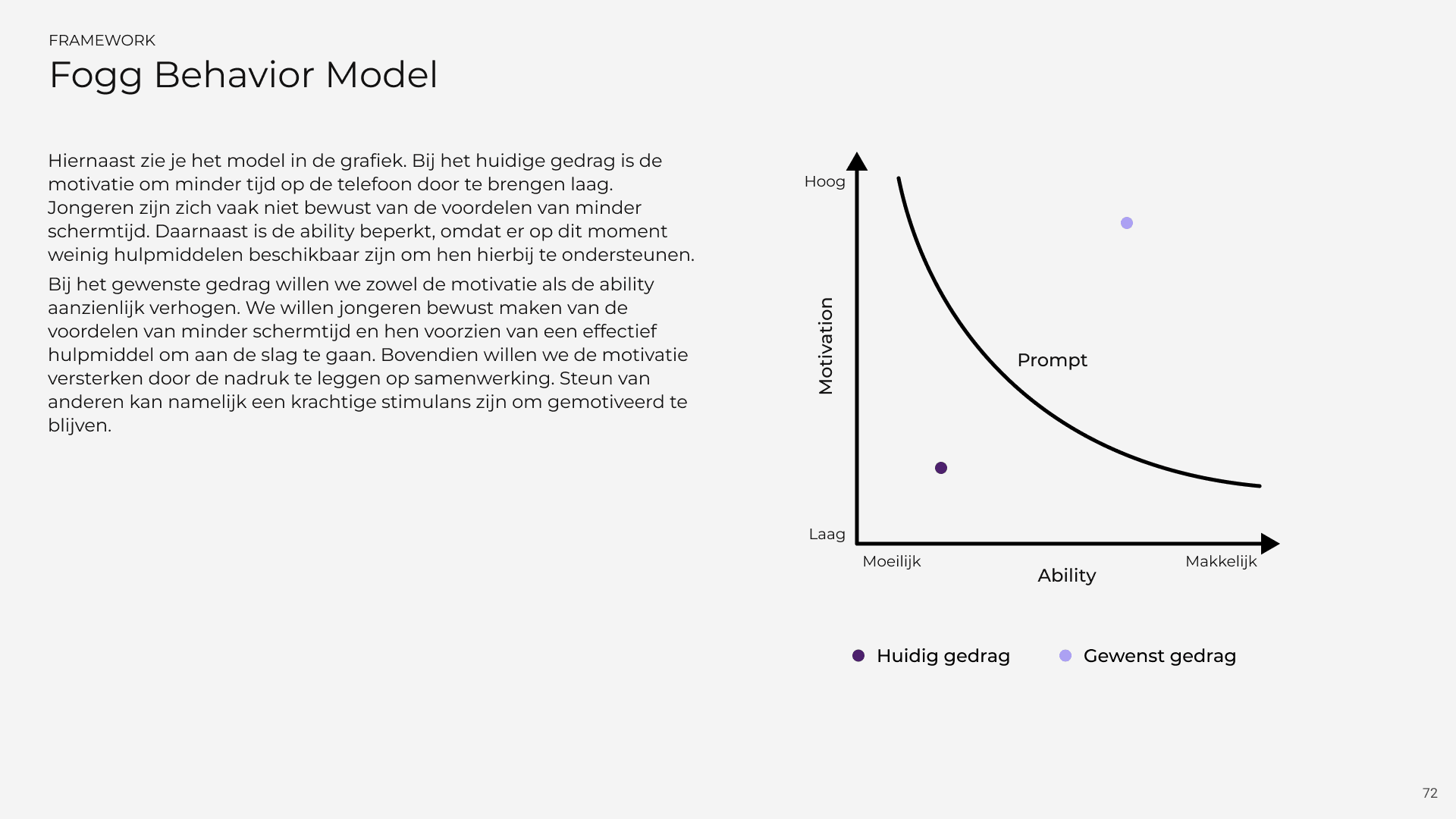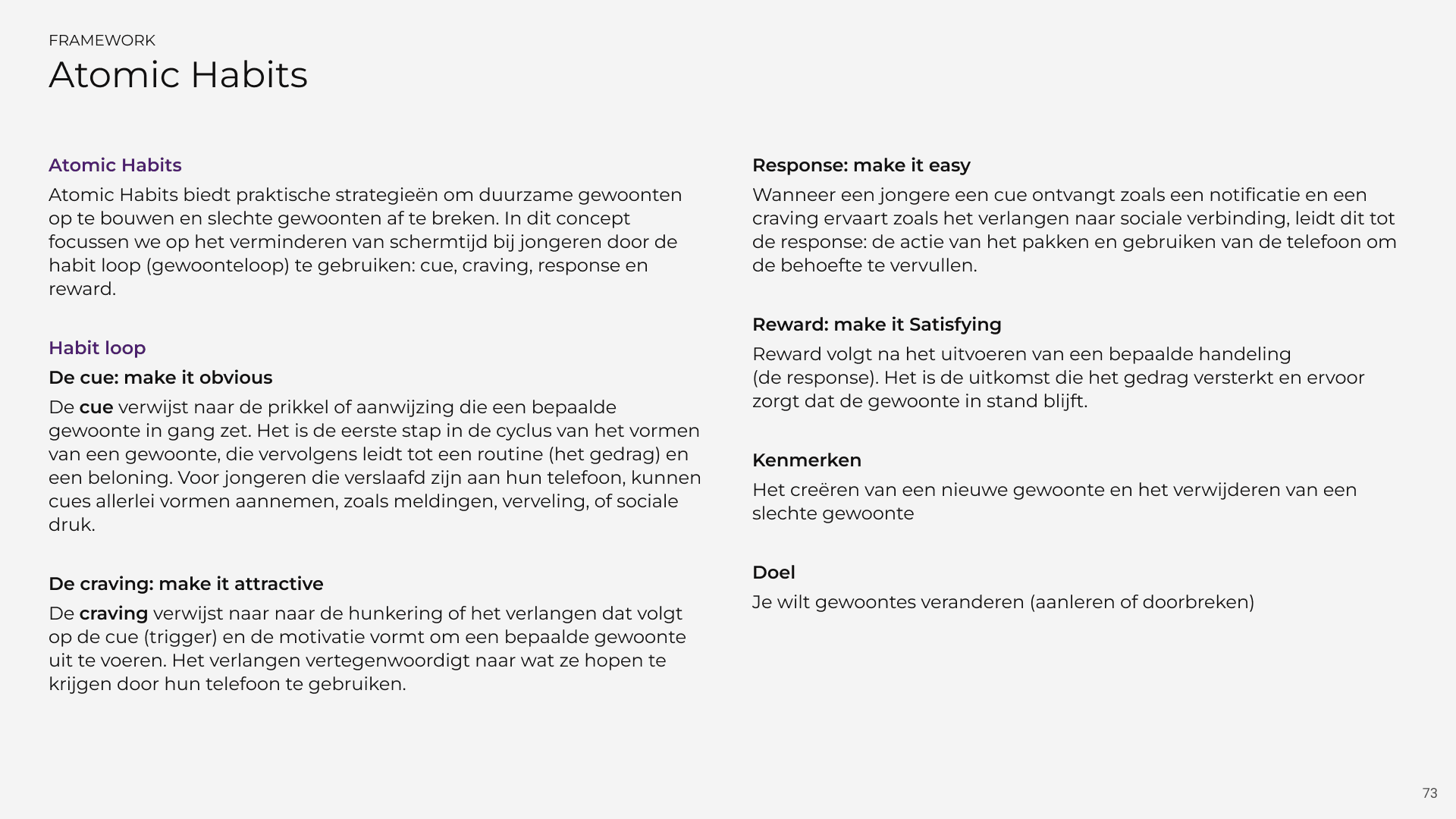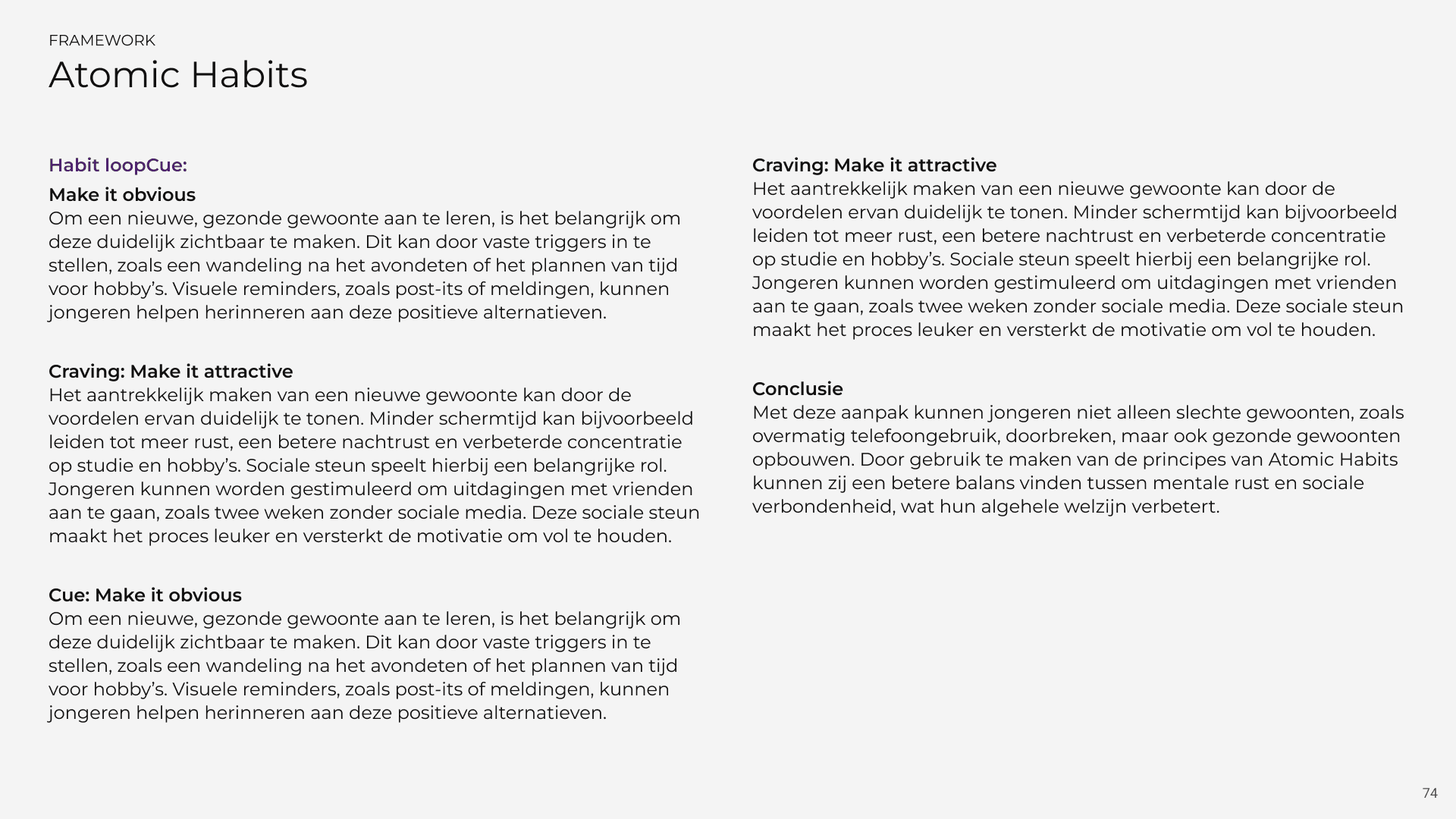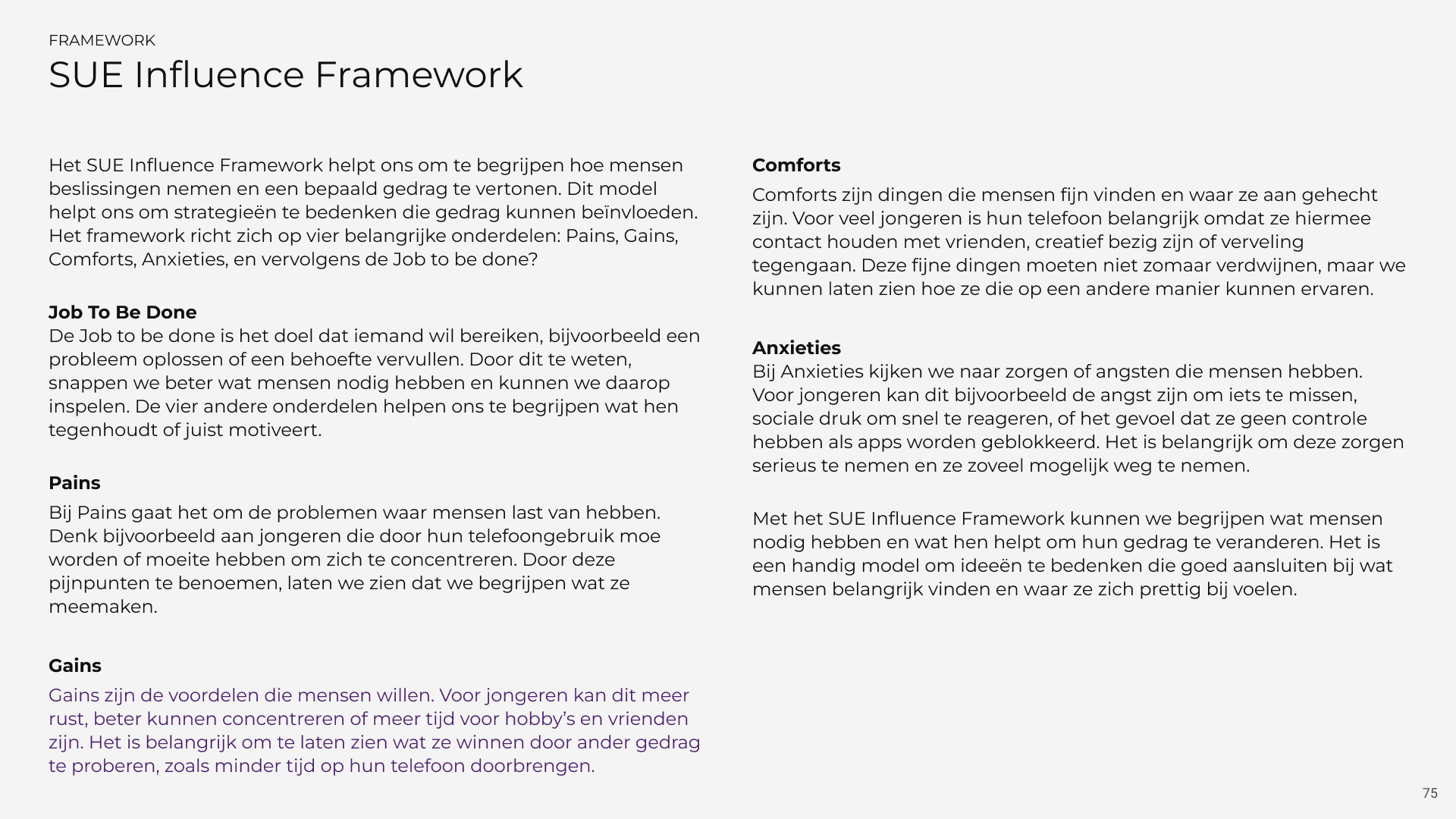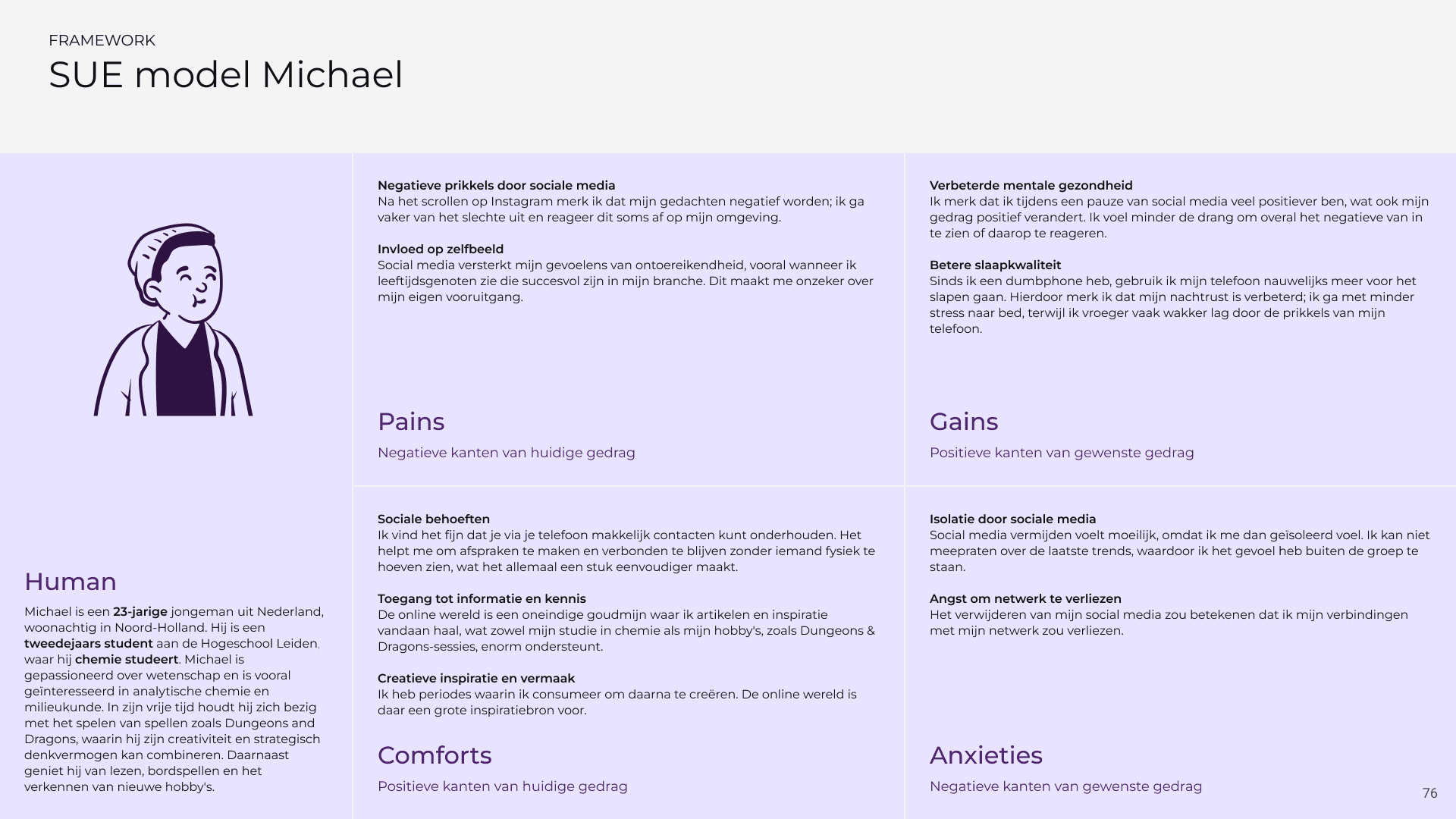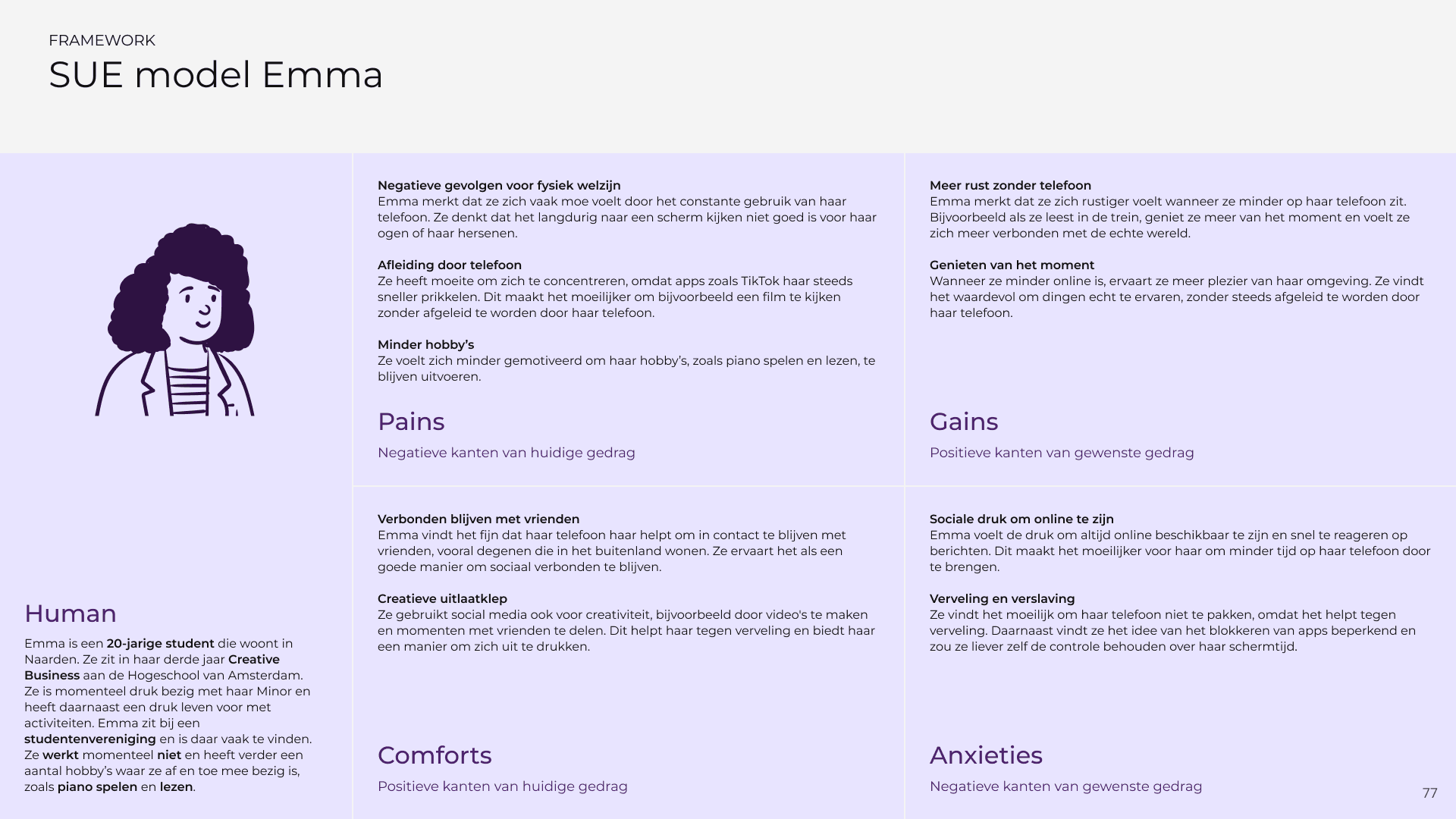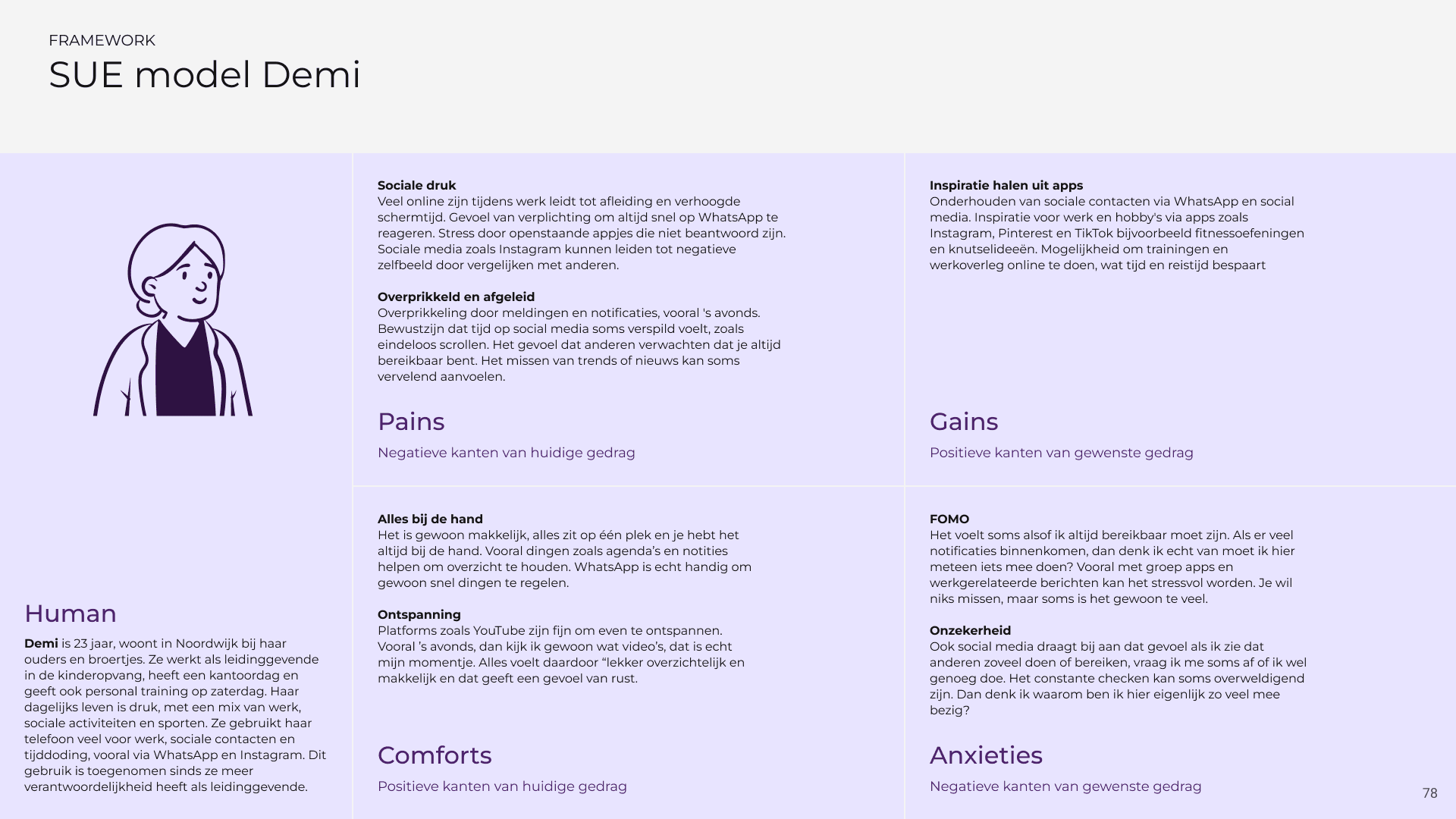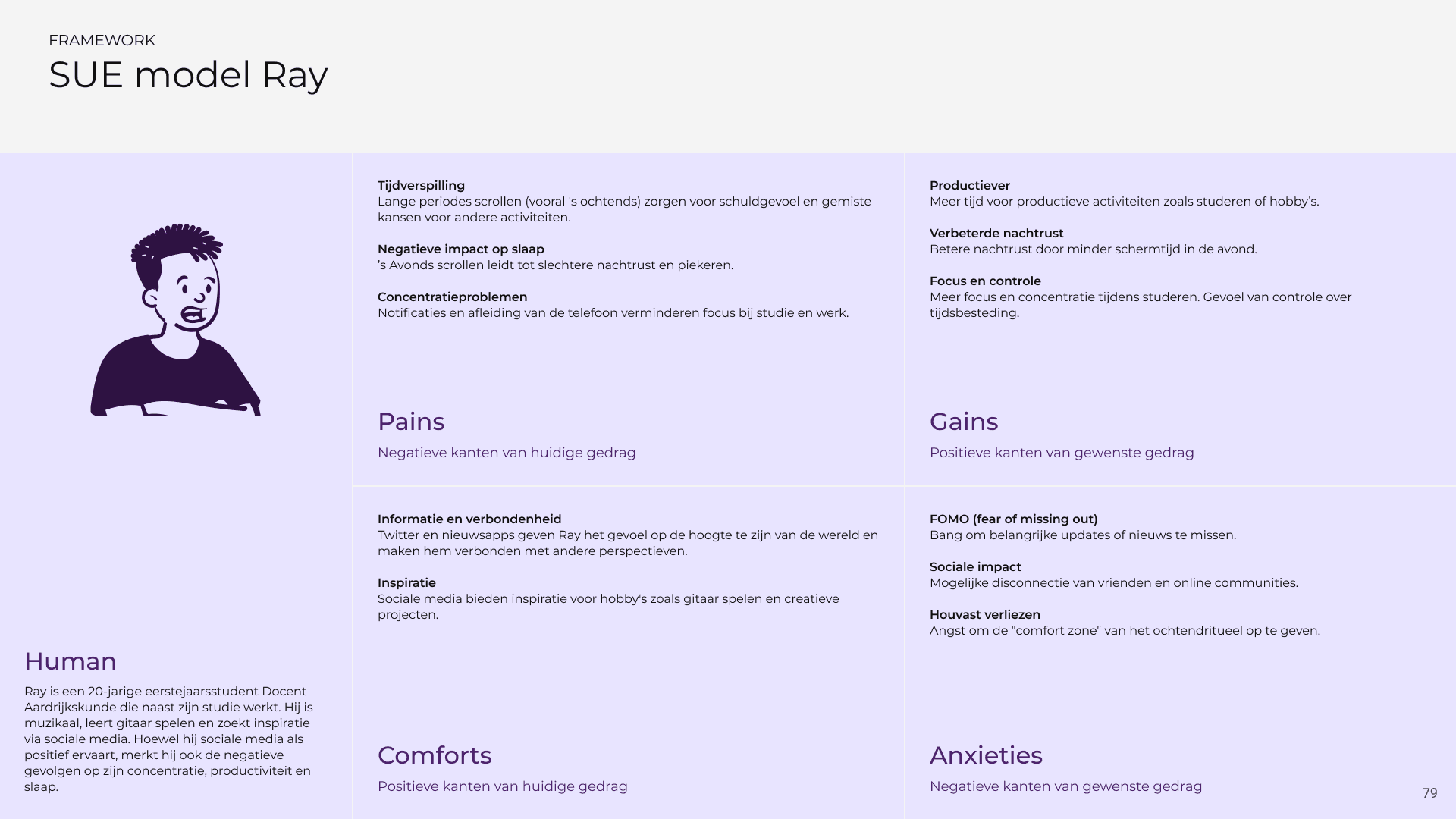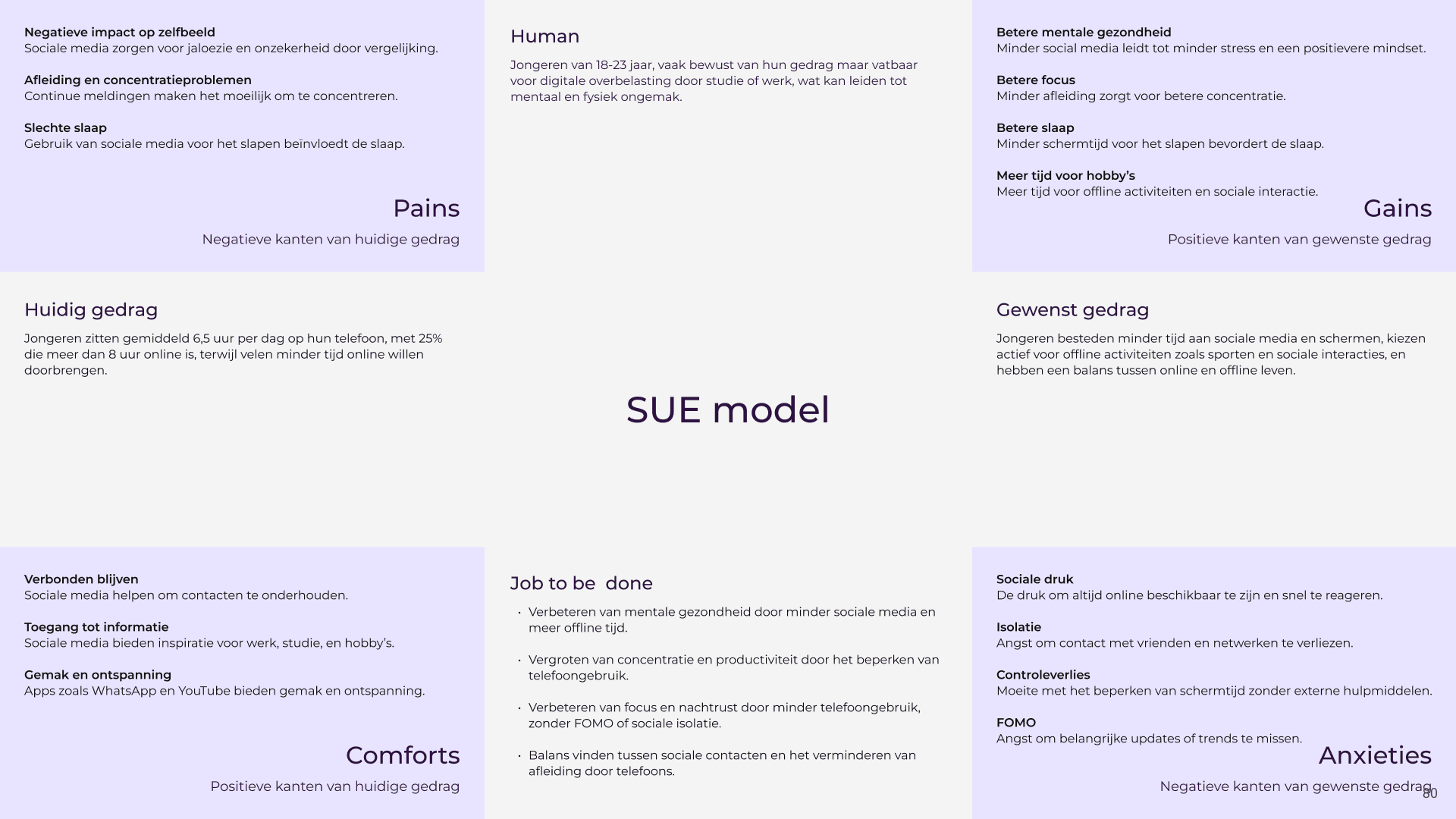MindMe
Expertise
Behavioral Design
Duration
10 weeks
Collaborators
Jake Posthouwer, Belle van der Velde, Fleur van Kimmenaede


This concept really stood out to us! There's so much potential and alignment with one of our own ideas that we'd love to explore the possibility of a collaboration.
Researcher & designer at Gemeente Amsterdam
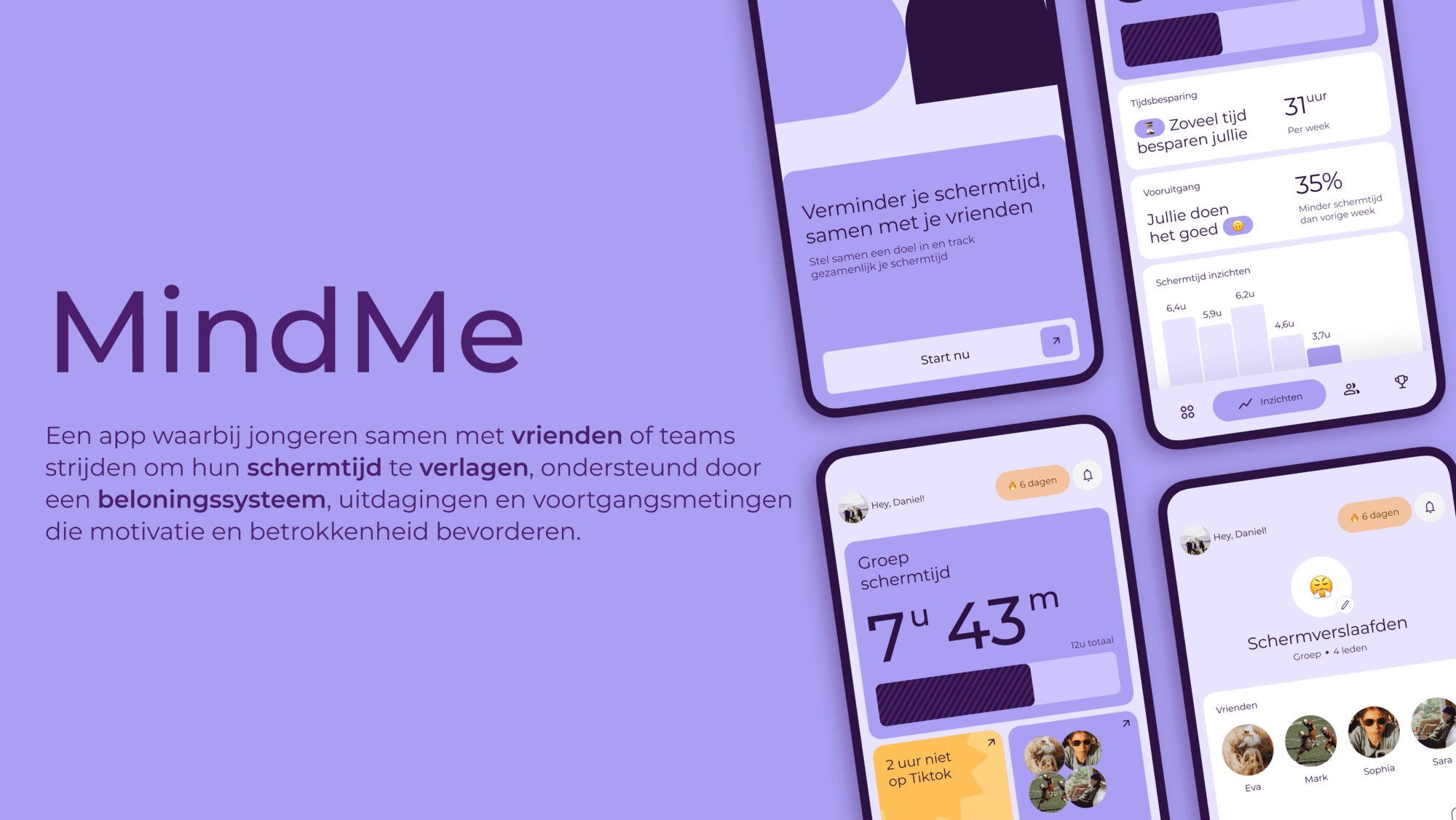
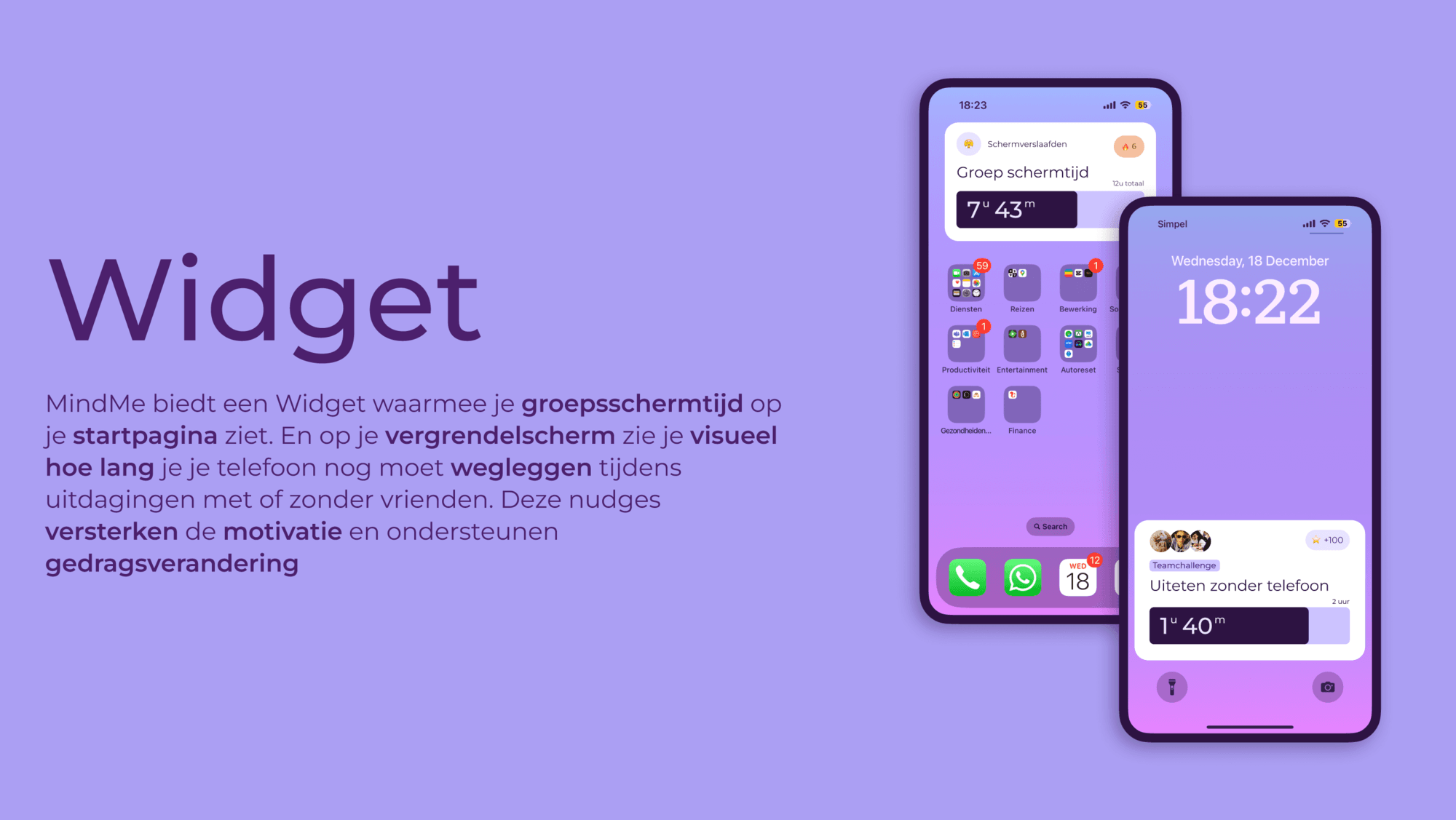
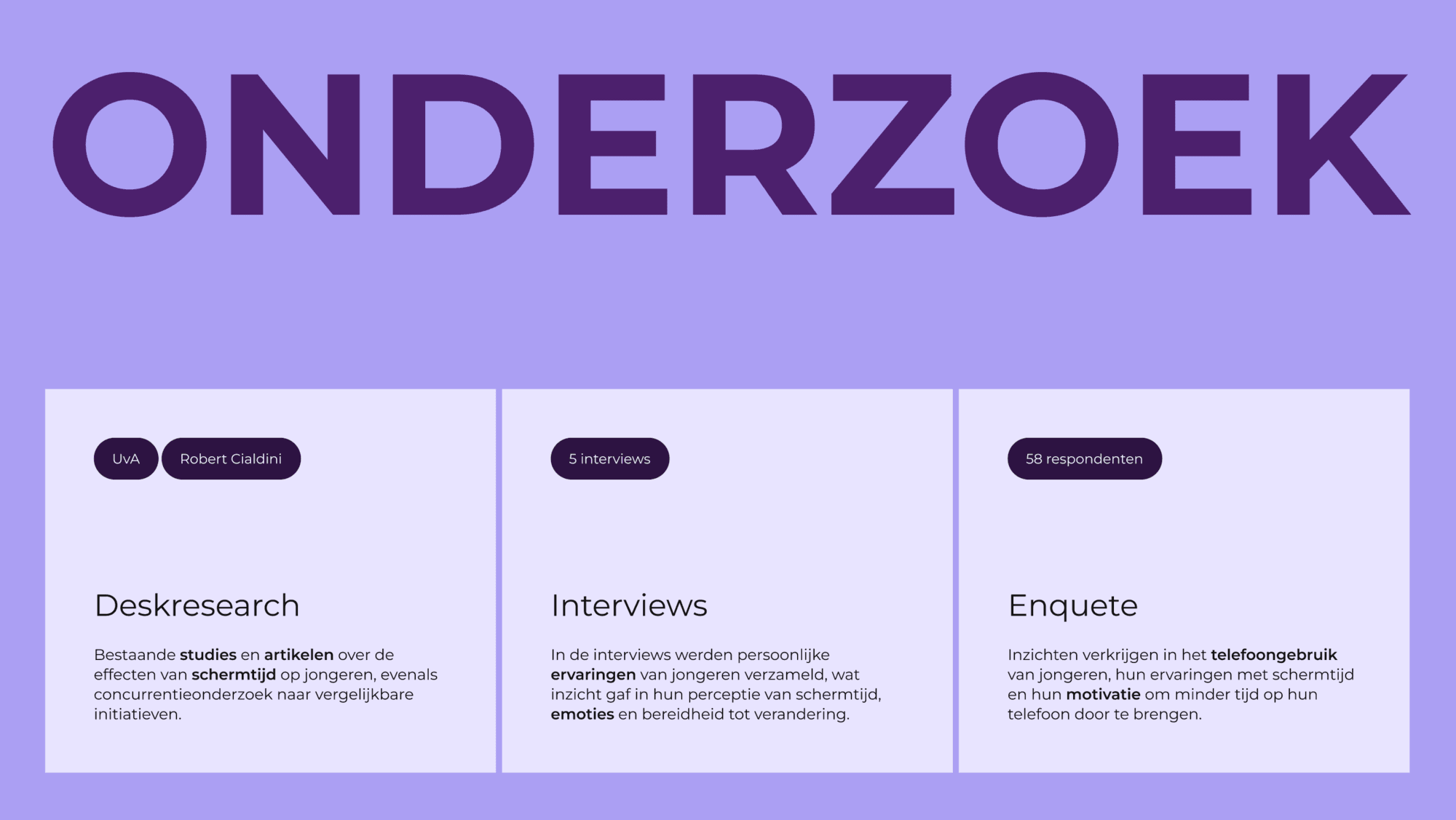
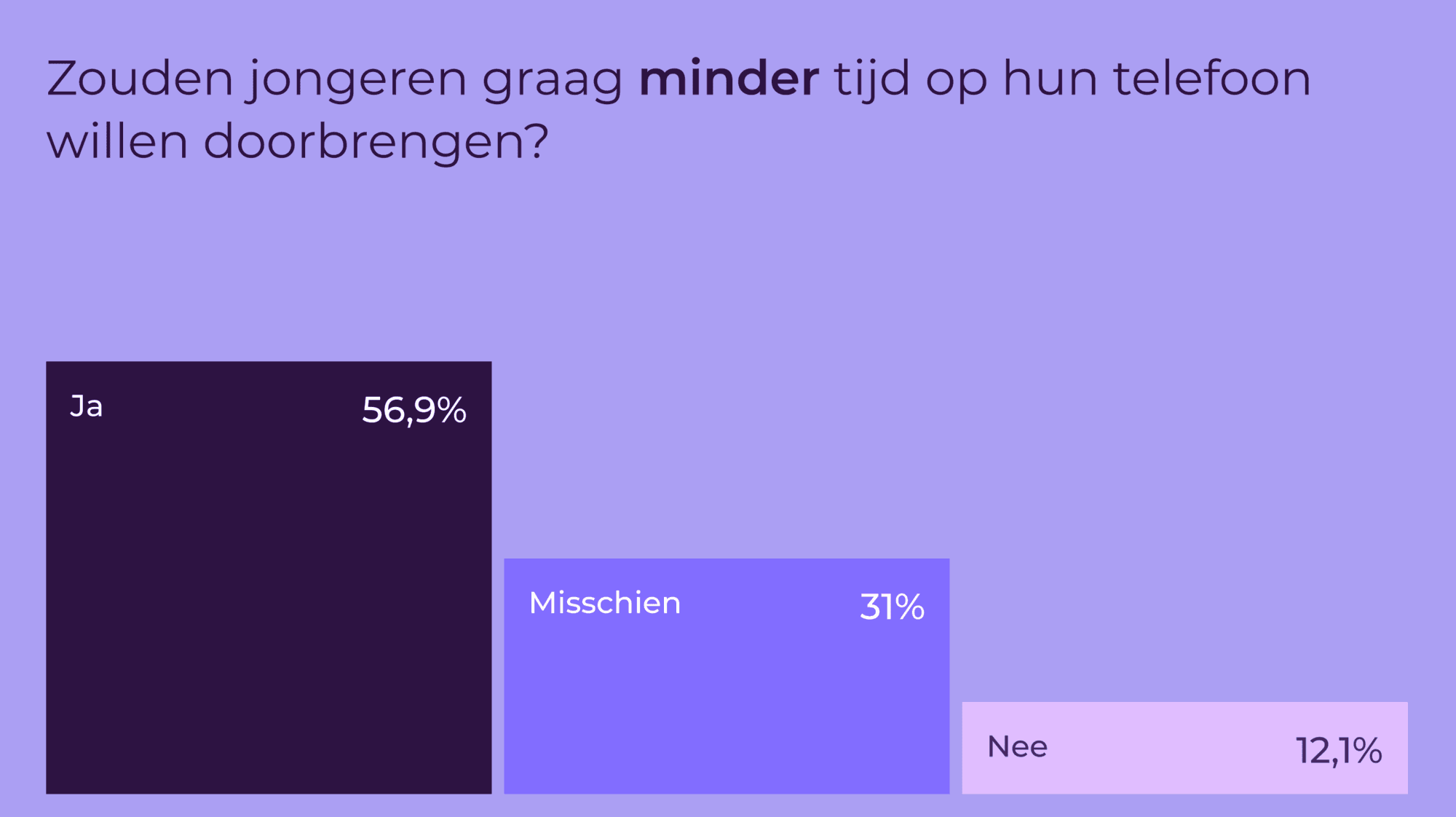
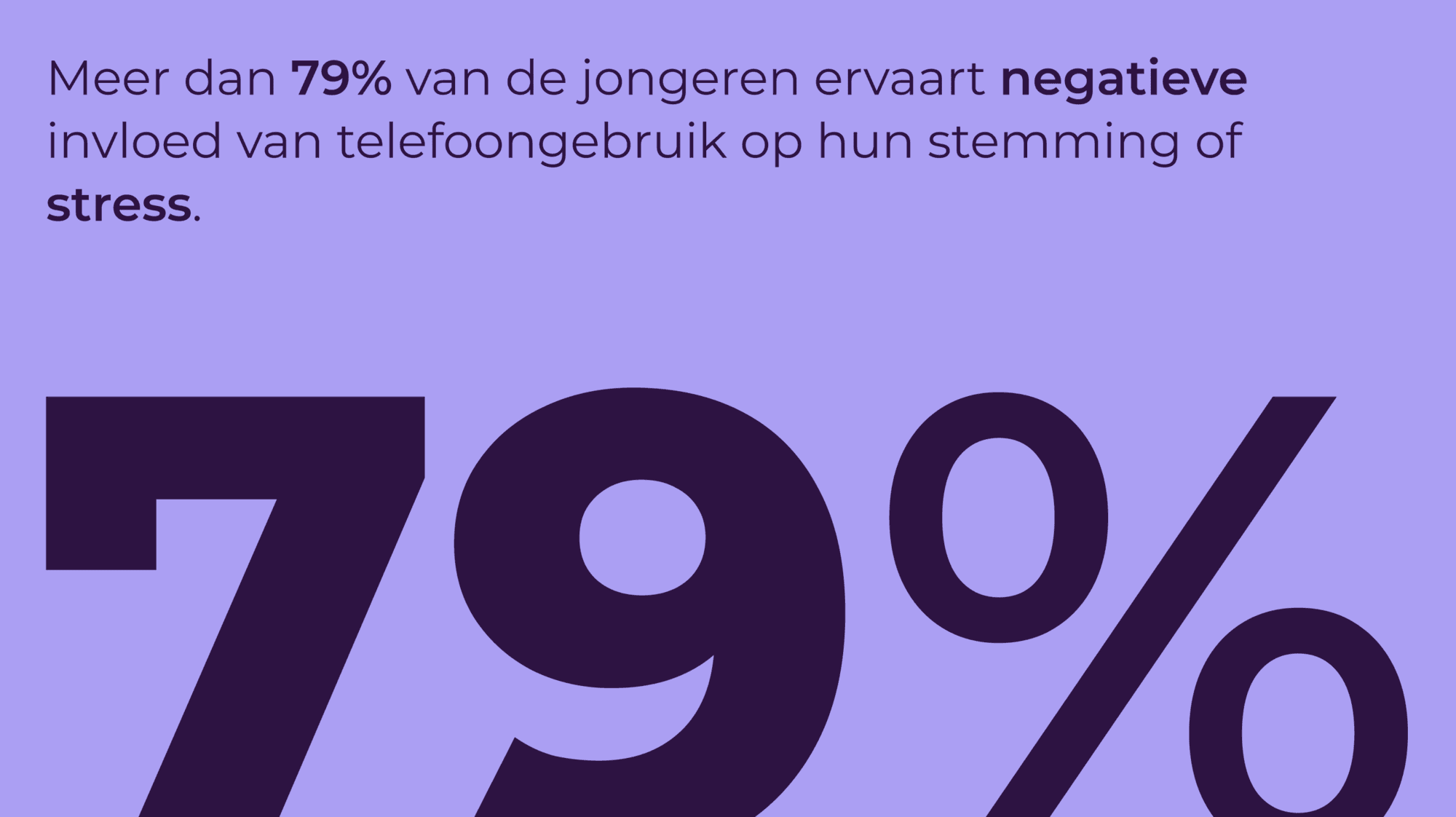
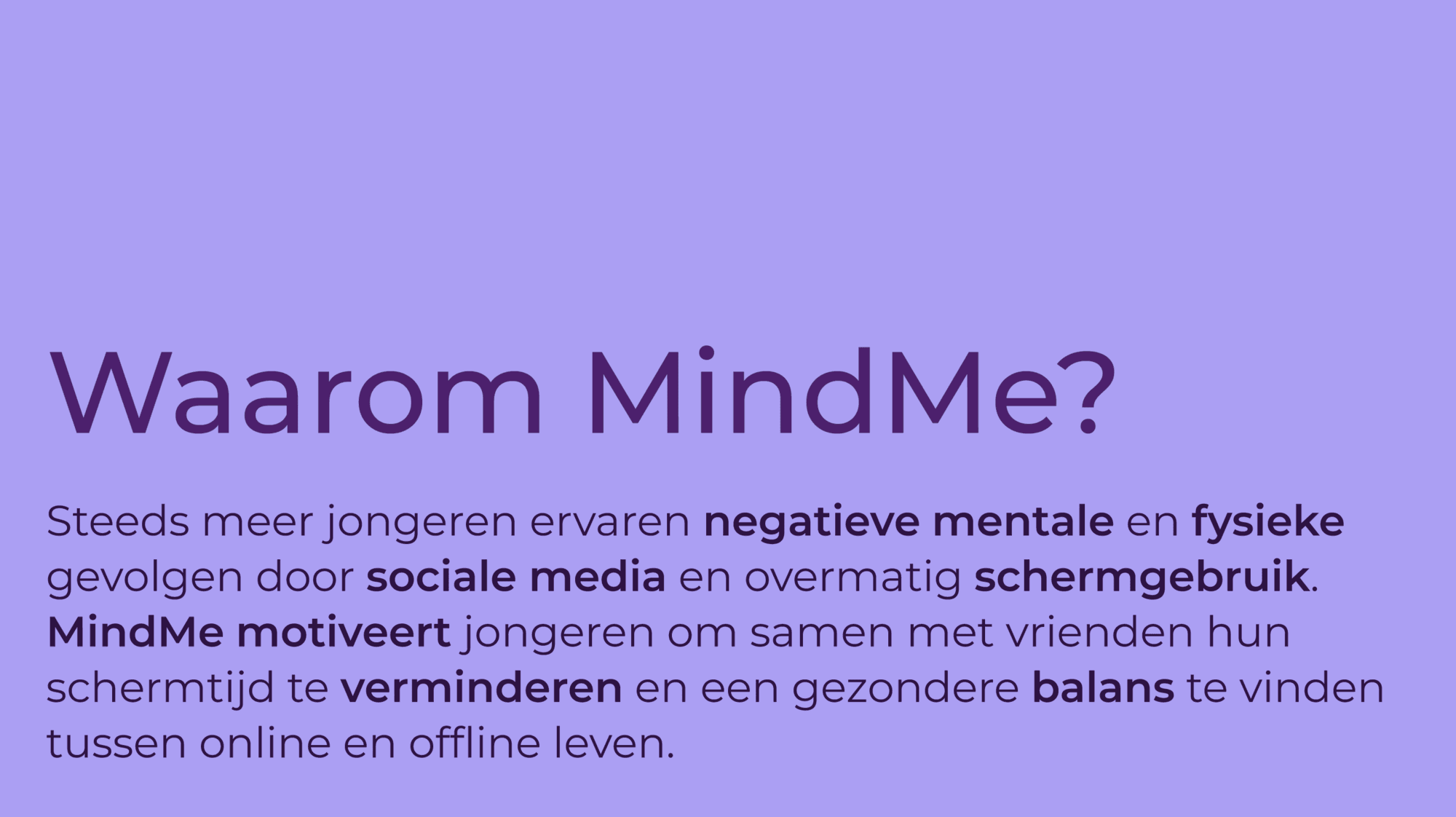
Wiser without screens
This project was created in collaboration with the City of Amsterdam, where Anouk Wieleman and Leonore Snoek acted as our main contacts and project clients. It focuses on the digital world young people are growing up in, a space filled with opportunities but also real risks. The City of Amsterdam asked us to explore how young people can become more aware of their screen use and how to encourage them to spend more time offline.
How it started
We started by diving into the problem and quickly discovered that too much screen time is having a real impact on young people, from poor sleep and stress to low self-esteem. Based on these findings and sources provided by Anouk Wieleman, a clear design challenge was formulated. This became the starting point for the project: how can young people be motivated to reduce their screen time and support each other in finding a healthier balance between online and offline life, in a way that improves their well-being without limiting their autonomy?
The research
The research was divided into three parts, based on the design challenge. The first phase focused on desk research, including a wide range of articles related to the problem. Existing apps and tools were analysed to see what’s already available and why many of them aren’t effective. Psychological factors and cognitive biases that influence young people were also explored to better understand their behaviour.In the second phase, interviews were conducted using the SUE framework. These provided insight into behavioural patterns and the emotional drivers behind motivation and decision-making.Finally, surveys were used to collect data on screen use among young people, with the aim of finding out whether they're aware of their behaviour and whether they're open to changing it.
Overview of all the research

Behaviour design
Changing behaviour isn't easy, that became clear during our research. In our survey, most young people said they wanted to change their screen habits, but actually doing it turned out to be a lot harder. Intrinsic motivation alone often isn't enough, especially when everything around you is designed to keep you hooked. From social pressure to app design, the whole environment plays a role in reinforcing those habits.
The app is the result of all our research and insights. It's designed to help young people reduce their screen time by setting a shared daily limit with friends. To support behaviour change, we built in several proven influence techniques. Positive framing helps users focus on progress instead of failure. Social proof boosts motivation by showing what friends are doing. Group challenges add fun and accountability and by making goals feel small and doable, the app encourages consistent action over time. Everything is built around making change easier, not through pressure, but by creating a space where healthy habits feel rewarding and social.
Lo-Fi design
Most common principles of influence in our app:
- Framing
- Social proof
- Assisting
- Commitment
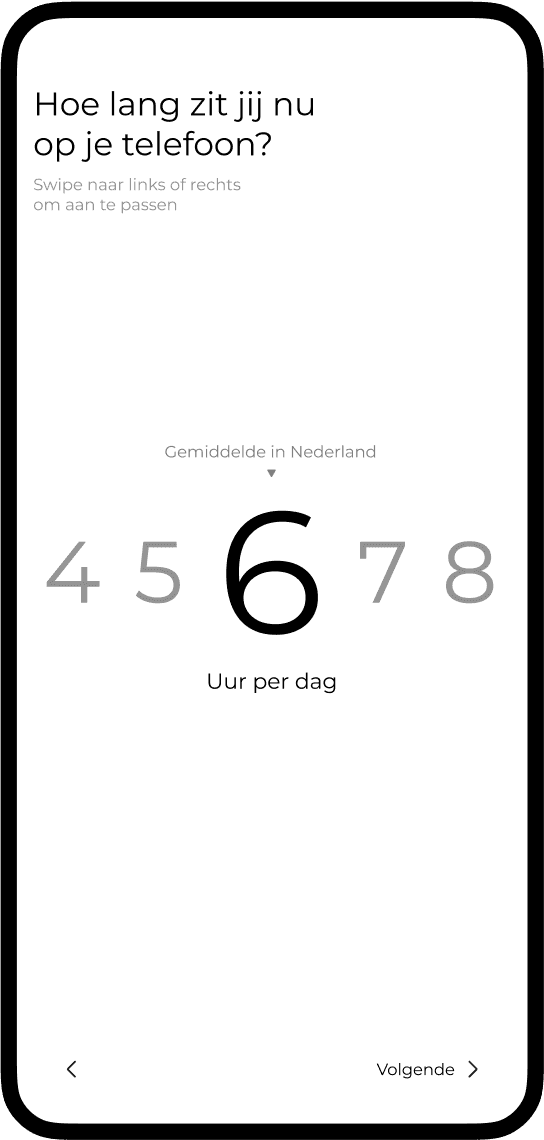
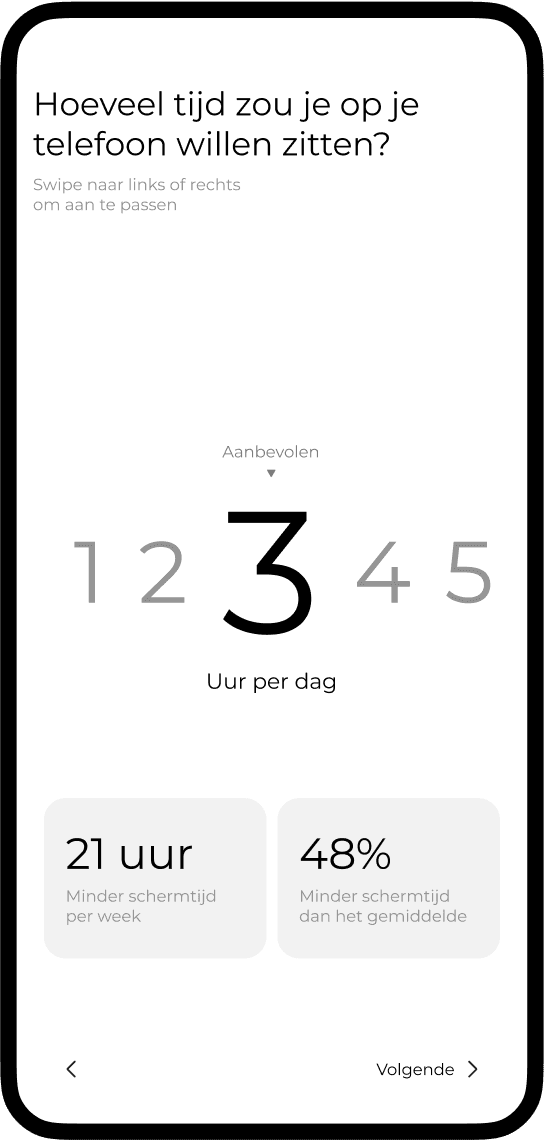
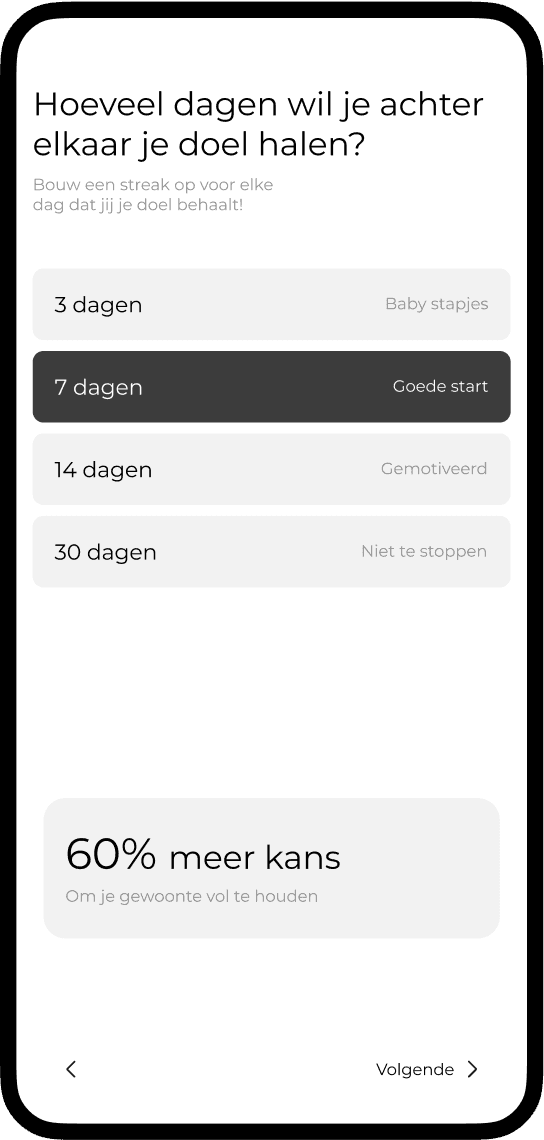
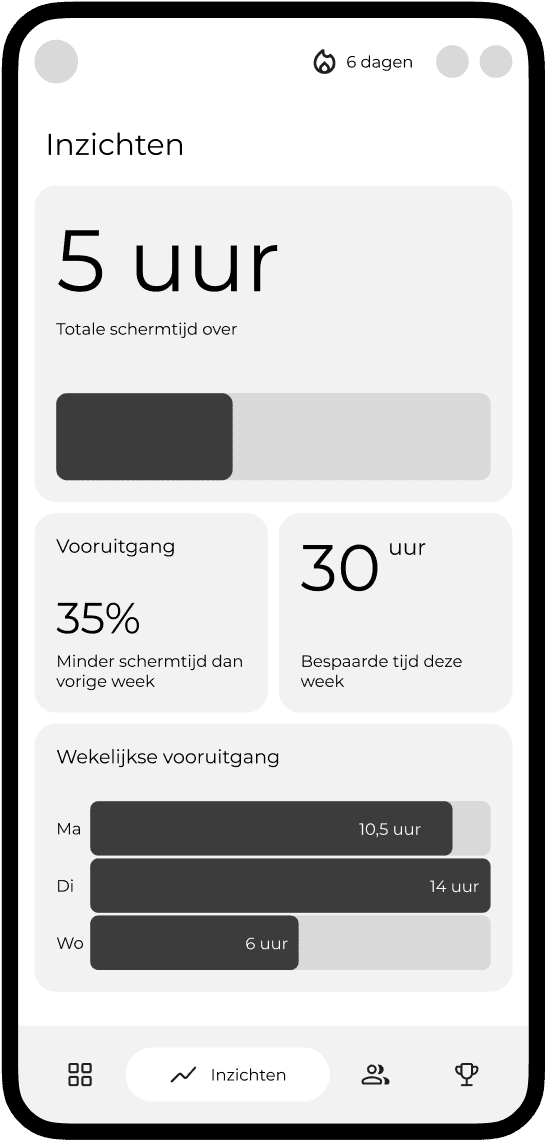
Hi-Fi design
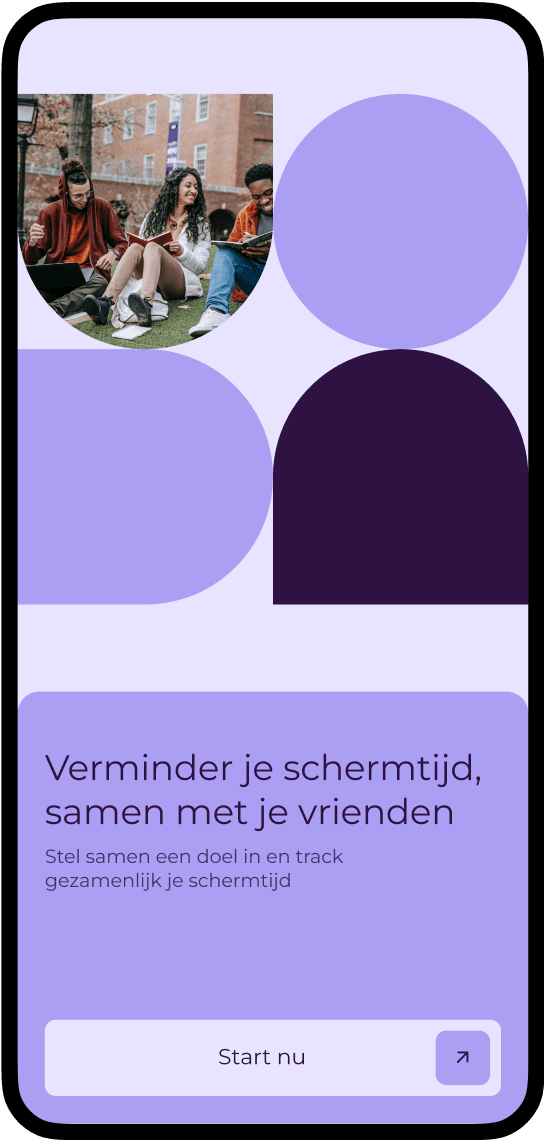
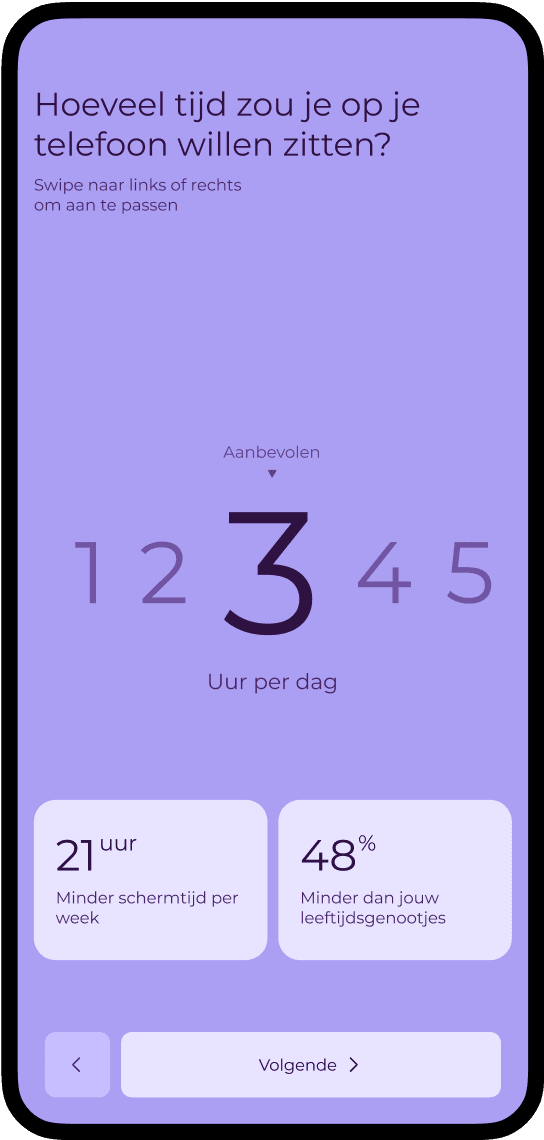
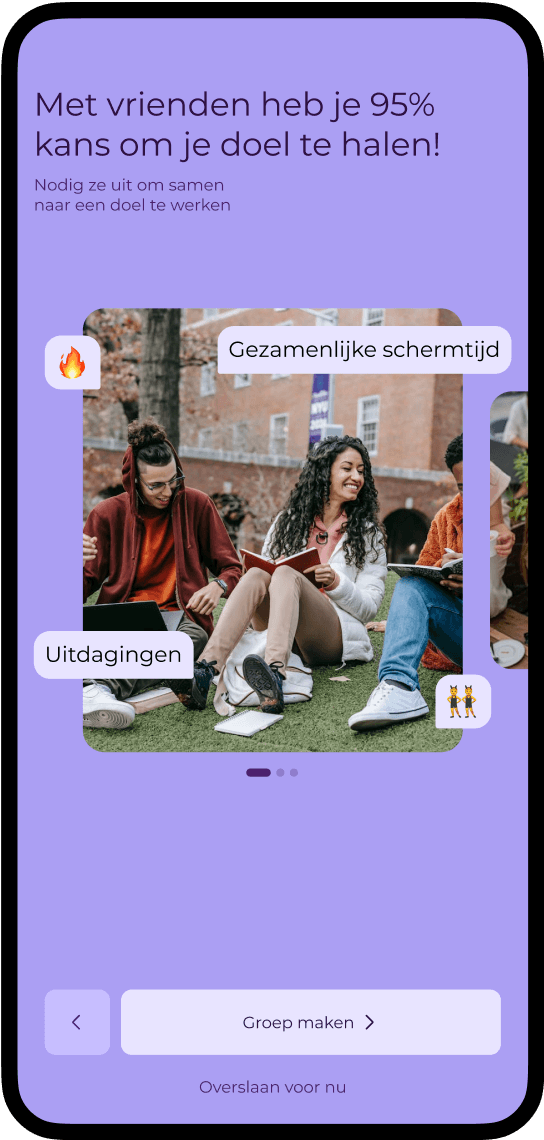
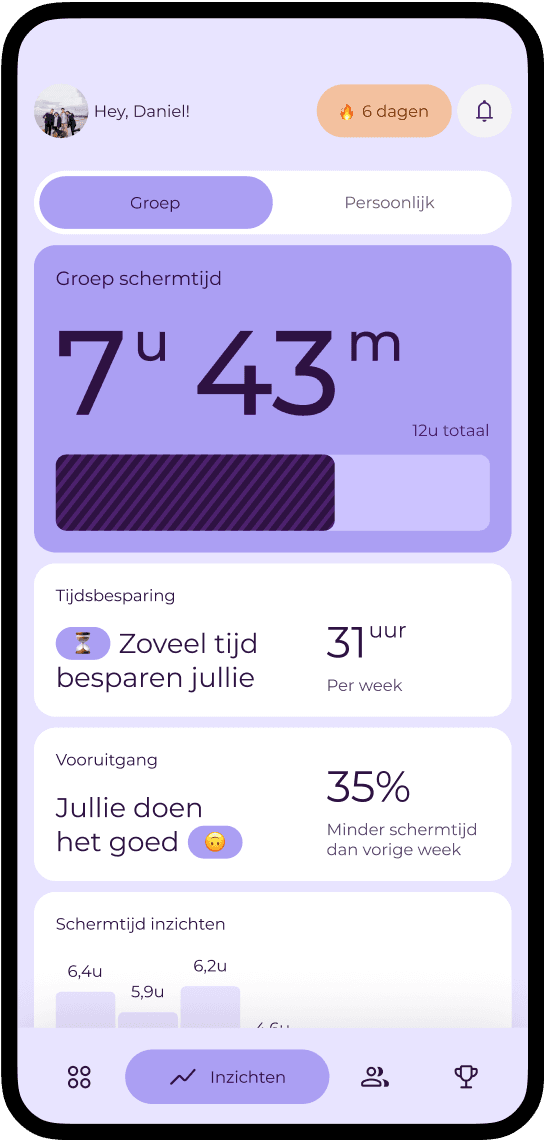
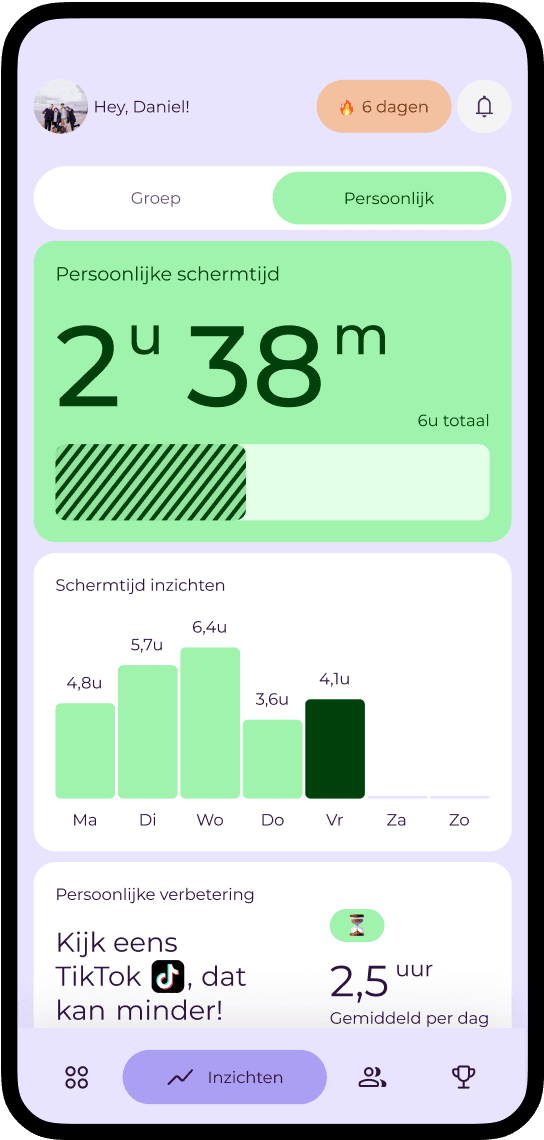
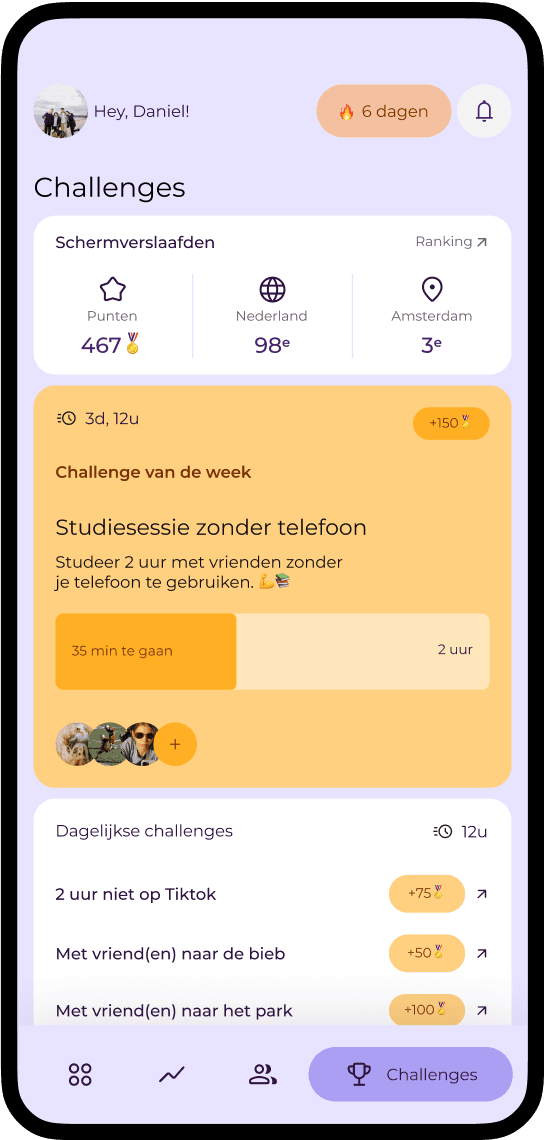
Design rationale for Gemeente Amsterdam
